

85 Critical Thinking Questions to Carefully Examine Any Information
There might be affiliate links on this page, which means we get a small commission of anything you buy. As an Amazon Associate we earn from qualifying purchases. Please do your own research before making any online purchase.
The ability to think critically will often determine your success in life.
Let’s face it. Every day, we are bombarded by news, social media updates, and an avalanche of information. If you take all of this at face value, it’s easy to be deceived, misled or ripped off.
That’s why it’s important to develop a mindset that focuses on critical thinking . This is a skill that needs to be developed in the classroom. But it’s also a valuable life skill.
With that in mind, the following post will share 85 critical thinking questions you can use to increase your awareness about different problems by carefully examining available information.
Let’s get started…
Table of Contents
What Are Critical Thinking Questions?
Critical thinking questions are inquiries that help you think rationally and clearly by understanding the link between different facts or ideas. These questions create a seemingly endless learning process that lets you critique, evaluate, and develop a depth of knowledge about a given subject. Moreover, you get to reinforce your viewpoints or see things in a new way.
We make decisions every day, whether at work or home. Adopting logical, rational, and practical approaches in addressing various issues requiring critical thinking is essential in decision-making. Therefore, before arriving at a decision, always ask yourself relevant questions and carefully analyze the matter’s pros and cons.
Critical Thinking Questions When in an Argument
When you make an argument using a critical thinking approach, you focus on justified claims that are valid and based on evidence. It helps one establish a strong argument.
- Do I disagree with the other person? Might the person I'm arguing with be misinformed on what they are saying?
- Would I be comfortable saying what I am telling him/her if I was in front of a group of people?
- What would happen if I lose this argument? Is engaging in this argument worth my time and energy? How will I feel if I lose?
- Is there room for ambiguity or misinterpretation? Are we arguing because I didn't make my point explicit? Should I take my time to understand his school of thought?
- Do I need some rest before saying something? Am I arguing because of other reasons other than the issues at hand? Do I need to take some time and cool down?

- Is it more important that I’m right? Am I trying to ask to prove an unnecessary point?
- Is this argument inductive, deductive, or abductive? Is it a weak or strong argument that I need to engage in? Is it compelling or sound?
- Is my opponent sincere? Given that they are wrong, are they willing to admit that they are wrong? Can they depend on available evidence, wherever it leads?
- Are my opponents only trying to shift their burden to me? What is the best way to prove them wrong without making them feel bad?
- Are the people I'm arguing with only interested in winning, or are they trying to pass some information across and help me discover the truth?
Critical Thinking Questions When Reading a Book
When you read a book, you probably ask yourself many “why” questions. Why is this a problem? Why did the character say that? Why is this important? The most challenging part of reading a book is assessing the information you are reading. These questions can help.
- If I learn only two things from this book, what will they be? How will they help me? How will I apply them in my daily life?
- What message are the authors trying to pass across? Are they making suggestions or providing evidence for their arguments?
- Given that almost every book is about solving problems, what is the most prevalent issue that the author is trying to solve?
- What is the author’s writing style? What strategy or master plan does the author employ to convey his/her main ideas throughout the book?
- Do I have background information about the book’s topic? If so, how is what the author is saying different from what I already know?
- What didn’t I understand from the book? Should I re-read the book to understand everything the writer is trying to convey?
- Which sections of the book do I love the most, and why? Generally, do I like this book? Should I look for more books that are written by the same author?
- If I had a chance to meet this book’s author, what questions would I ask him/her? What would I tell the writer about the book? Is it a great book worth recommending to your friends and family members?
- Who are the main characters of the book? If there is only one main character, what overarching goal does the character accomplish?
- In what ways did the protagonist change from the start of the book to the end? What caused the changes? Was the protagonist reckless in some ways? Which ways?
Critical Thinking Questions to Spot a Scam
Asking questions when you feel that a fraud or a scam is being presented to you is a good way to stretch your critical thinking muscles. Are you being emailed or messaged by a stranger? Or maybe there are other red flags you are unsure about. If so, ask these questions.
- Does it seem to be too good to be true? Is this stranger pushy or trying to lure me into making a poor decision?
- When trying out online dating: Is my new “friend” professing strong feelings towards me although we’ve only interacted for a few hours?
- Why is a stranger calling me to ask about my Social Security Number (SSN), personal contact information, or bank details while claiming they are from the bank or a phone company?
- When buying products online, why does the seller ask me to pay for goods using an insecure payment option like Bitcoin or money order?
- Does the email I have received have any spelling or grammatical errors? Is the language used overly formal or informal?
- If I do a quick search about the exact words of the email I received, does Google indicate it's a fraud or scam?
- Why should a stranger manipulate me using obvious questions like “Would you want to be rich or poor?” While they already know the answer?
- Is the email asking me to download an attachment? Or click a link to some insecure website?
- Is the person trying to make me feel selfish or guilty for not sending them money, whether for a donation or buying a product?
- Is the stranger portraying a sense of urgency and using pressure tactics? Are they telling me that their family member needs urgent medical attention?
Critical Thinking Questions About Your Life
It can also help to ask yourself a few critical thinking questions about your life. This way, you can gather basic information and uncover solutions to problems you might not have otherwise thought of.
- Where do I wish to be in a few years, probably two, three, or five years? What short-term and long-term goals should I set?
- What have I achieved so far from the time I set my previous goals? What should I be grateful for?
- Do I have any values that guide me in life? If so, what are these values? Am I always true to these values?
- Am I always worried about what people around me think? Can I act independently without the need to meet social expectations?
- What should people say about me at my funeral? Would they talk about how good I made them feel or how rich and flashy I was?
- If I wasn't afraid of anyone or anything, what would I have done? What if I didn't have any fear in me?
- If today was my last day, what extraordinary thing would I do? Can I do it right now?
- What should I do with the things that matter the most to me?
- What things will make the greatest difference in my future life if I take action now?
- How should I react when I feel unwanted by the people I love the most? Should I tell them?

Critical Thinking Questions for a Debate or Discussion
When you are in the middle of a debate or discussion, you need to know that what you are saying is fact, have evidence to support your claim, and position yourself as an expert in what you are saying. Here are some critical thinking questions to ask when you are in a debate or discussion.
- Is there fairness in this discussion? Is the moderator supporting one side? Do they want to make one side look stupid or wrong?
- What is the aim of this discussion? Is there a major problem that needs to be solved? If so, how can I help solve it?
- Who are the people affected by this discussion? If they were here, what would they say?
- Do my views on this discussion matter? If I raise my point, will I be redundant?
- What am I supposed to learn from this debate, and how can I use what I have learned in my daily life?
- Does the audience seem to be biased towards one side? Are they booing one side? What can I do even if it's our opponents being booed?
- Who are the discussion panel members? What views have they held about this kind of discussion or any other related discussions in the past?
- How can I make my point without being ambiguous? Before I speak, should I take down some notes to avoid any confusion during my speech?
- Am I ready to apologize if I make a mistake during the discussion? If so, what are the limits?
- What information does my team, or I need before this discussion?
Critical Thinking Questions About Lying
Admitting when you are wrong, choosing not to cheat, and sharing constructive feedback are all ways to show your honesty. Here are some critical thinking skills to ask regarding lying.
- Will the lie hurt those I am telling, or will it help them? What if being honest might cause my friend unnecessary pain?
- Should I be the one telling this person a lie, or I let someone else do it?
- Will I be the one hurt if I tell this lie? Will my friend feel I am a betrayer? Will it affect our friendship?
- Do they answer my questions in detail, or are they always trying to ignore and dodge the main problem?
- What if I ask these people the same question using different terms and wording? Will they give me the same response?
- Did the tone of my friend suddenly change after I asked him/her this question? Do they sound louder, faster, or slower compared to how they usually speak?
- Does this person have something to gain by lying to me? What is their motive?
- Does this person take a sudden pause or hesitate more than usual when responding to my question?
- When I look at these people's faces, do their facial expressions match what they say?
- Should I believe this person or not? What are my intuitions? Does it look like they are telling the truth?
- Do they blink like other days when I ask them questions? Are they always trying to avoid direct eye contact?
- Why do they seem uncomfortable when it’s just a normal conversation?
Critical Thinking Questions When Presented With a Claim
Critical thinking is much more than just evaluating whether a claim is true or not. It also means a critical thinker reflects on what follows from true claims.
- What does this claim mean, and what are its implications? What if it's a false claim?
- Which of my morals, values, or beliefs do I have to give up to accept this claim?
- Do professionals in this field agree or disagree with the claim that has been made?
- Do they have evidence to back their claim? Which is the most robust evidence to support the claim?
- What argument can I come up with to refute this claim? Or what is the best view that can support this claim?
- Who is the primary source of the claim being made? Is the basis of the claim reliable?
- Is it a claim, or it's just an opinion?
- Is the claim likely to be 100% false, true, or partially true?
- Am I allowed to refute the claim and table my evidence, or is it one-sided?
Critical Thinking Interview Questions
Critical thinking skills are valuable in any industry or field and for almost all roles. During a job interview, you will be asked questions so the potential employer can assess your skills and see how you use logic. Your critical thinking ability is just one vital part that can play into your professional development.
- Is there a time you had to convince someone to use an alternate approach to solve a problem?
- Have you ever had to make a difficult decision quickly?
- How would you handle a situation where your supervisor handled something wrong or made a mistake?
- What is one of the most difficult decisions you have ever had to make at work?
- How would you solve a disagreement between coworkers when approaching a project?
- Can you describe a time when you anticipated a problem ahead of time and took the appropriate steps to stop the problem from becoming an issue?
- If you discover a cheaper way to do something or a better solution to a problem and try to explain it to your supervisor, but they don’t understand, what do you do?
Critical Thinking Questions for Kids
We can’t leave the kids out either. Critical thinking questions for kids get them thinking and talking. It also allows a parent to get to know their child better.
- How many grains of sand do you think are on the beach?
- What would happen if it stopped raining?
- Do you think there is life on other planets?
- Should children be able to set their own bedtimes?
- How would you describe what a tree looks like without saying green or leaves?
- Can you name five different emotions?
- Can you talk for five minutes without uttering “um?”
What Are the Basic Principles of Critical Thinking?
Your critical thinking skills involve gathering complete information, understanding and defining terms, questioning the methods by which we get facts, questioning the conclusions, and looking for hidden assumptions and biases.
Additionally, we can’t expect to find all of the answers, and we need to take the time to examine the big picture of it all.
Here are the basic principles:
- Disposition: Someone with critical thinking skills is often skeptical, open-minded, and practices fair-mindedness. They can look at different viewpoints and change positions if the evidence and reason lead them to do so.
- Criteria: In order to think critically, one must also apply criteria. Certain conditions must be met before someone believes in something. The information needs to be from credible sources.
- Argument: An argument is simply a statement or proposition that is shown with supporting evidence. When you use your critical thinking skills, you identify, evaluate, and construct your argument.
- Reasoning: With critical thinking comes reasoning. You must examine logical relationships among the statements being made.
- Point of View: Critical thinkers can see things from different perspectives and different points of view.
What Are Good Analysis Questions?
Analysis is a part of critical thinking that allows you to examine something carefully. Someone with analytical skills can examine the information presented, understand what that information means, and then properly explain that information to others. Analysis in critical thinking provides more clarity on the information you process.
When analyzing, you may ask yourself, “how do I know this,” how would I solve this problem,” and “why does it matter?”
Why Is Critical Thinking an Important Skill?
Critical thinking skills allow you to express thoughts, ideas, and beliefs in a better way. It also leads to improved communication while allowing others to understand you better. Critical thinking fosters creativity and encourages out-of-the-box thinking. This is a skill that can be applied to many different areas of your life.
For example, knowing the answers to critical thinking questions for a job interview will better prepare you for the interview. Many employers, during questioning, are likely to ask you critical thinking questions to assess if you have the ability to evaluate information effectively so you can make more informed decisions.
Final Thoughts on Critical Thinking Questions
Although it's common to get torn between making two or more choices, nobody wants to make the wrong decision. The only thing you can do to avoid this is use critical thinking questions to examine your situation. The answers to these questions will help you make informed decisions and help you comprehend crucial matters in your life.
Want to learn more about critical thinking and decision-making using a real-life example? Here is how Jeff Bezos uses critical thinking to make some of the most challenging life decisions.
Finally, if you want to ask better questions, then watch this short, 20-minute course to learn how to have a great conversation with virtually anyone .
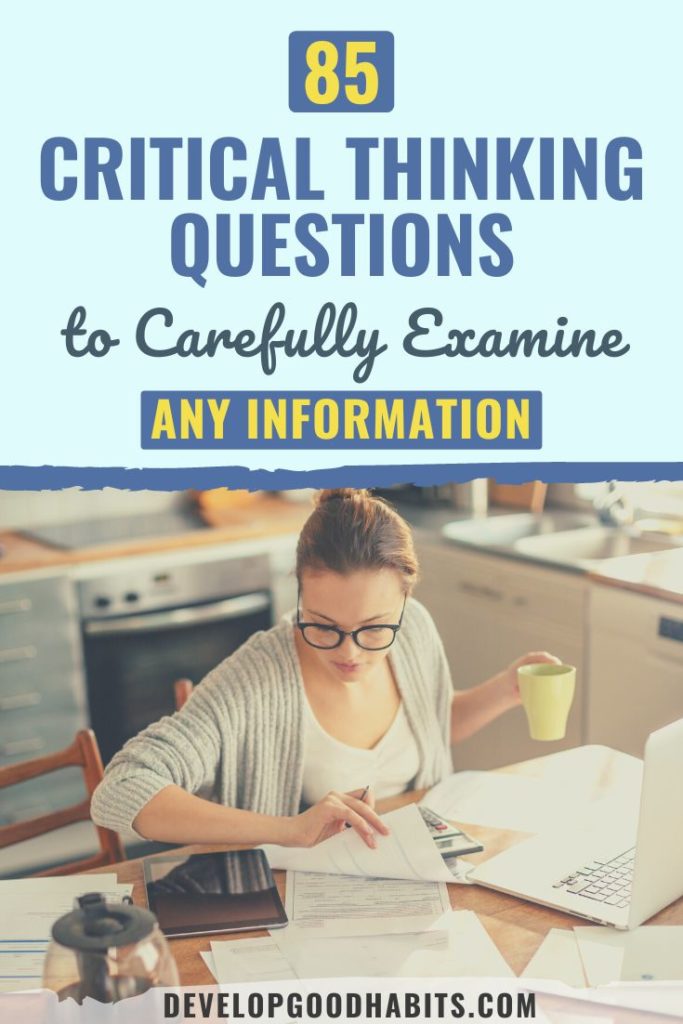
- Skip to main content
- Skip to primary site menu
Search form
Explore brown university.

Questions to Provoke Critical Thinking
Varying question stems can sustain engagement and promote critical thinking. The timing, sequence and clarity of questions you ask students can be as important as the type of question you ask. The table below is organized to help formulate questions provoking gradually higher levels of thinking.
| Thinking Skills | Purpose | Sample Action Prompts | Example Questions |
|---|---|---|---|
| Lower Levels | |||
| Remembering | memorize & recall facts | recognize, list, describe, identify, retrieve, name | What do we already know about ... ? |
| What are the principles of ... ? | |||
| How does ... tie in with what we learned before? | |||
| Understanding | interpret meaning | describe, generalize, explain, estimate, predict | Summarize ... or Explain ... |
| What will happen if ... ? | |||
| What does ... mean? | |||
| Higher Levels | |||
| Applying | apply knowledge to new situations | implement, carry out, use, apply, show, solve, hypothesize | What would happen if ... ? |
| What is a new example of ... ? | |||
| How could ... be used to ... ? | |||
| What is the counterargument for ... ? | |||
| Analyzing | break down or examine information | compare, organize, deconstruct | Why is ... important? |
| What is the difference between ... and ... ? | |||
| What are the implications of ... ? | |||
| Explain why / explain how? | |||
| What is ... analogous to? | |||
| How are ... and ... similar? | |||
| Evaluating | judge or decide according to a set of criteria | check, critique, judge, conclude, explain | How does ... affect ...? |
| Why is ... happening? | |||
| What is the best ... and why? | |||
| Do you agree or disagree with the statement ... ? What evidence is there to support your answer? | |||
| What are the strengths and weakness of ... ? | |||
| What is the nature of ... ? | |||
| Creating | combine elements into a new pattern | design, construct, plan, produce | What is the solution to the problem of ... ? |
| What do you think causes ... ? | |||
| What is another way to look at ... ? |
1 From Alison King, “Inquiring Minds Really Do Want to Know: Using Questioning to Teach Critical Thinking,” Teaching of Psychology 22 (1995): 14.
- Grades 6-12
- School Leaders
NEW: Classroom Clean-Up/Set-Up Email Course! 🧽
100+ Critical Thinking Questions for Students To Ask About Anything
Critical thinkers question everything.
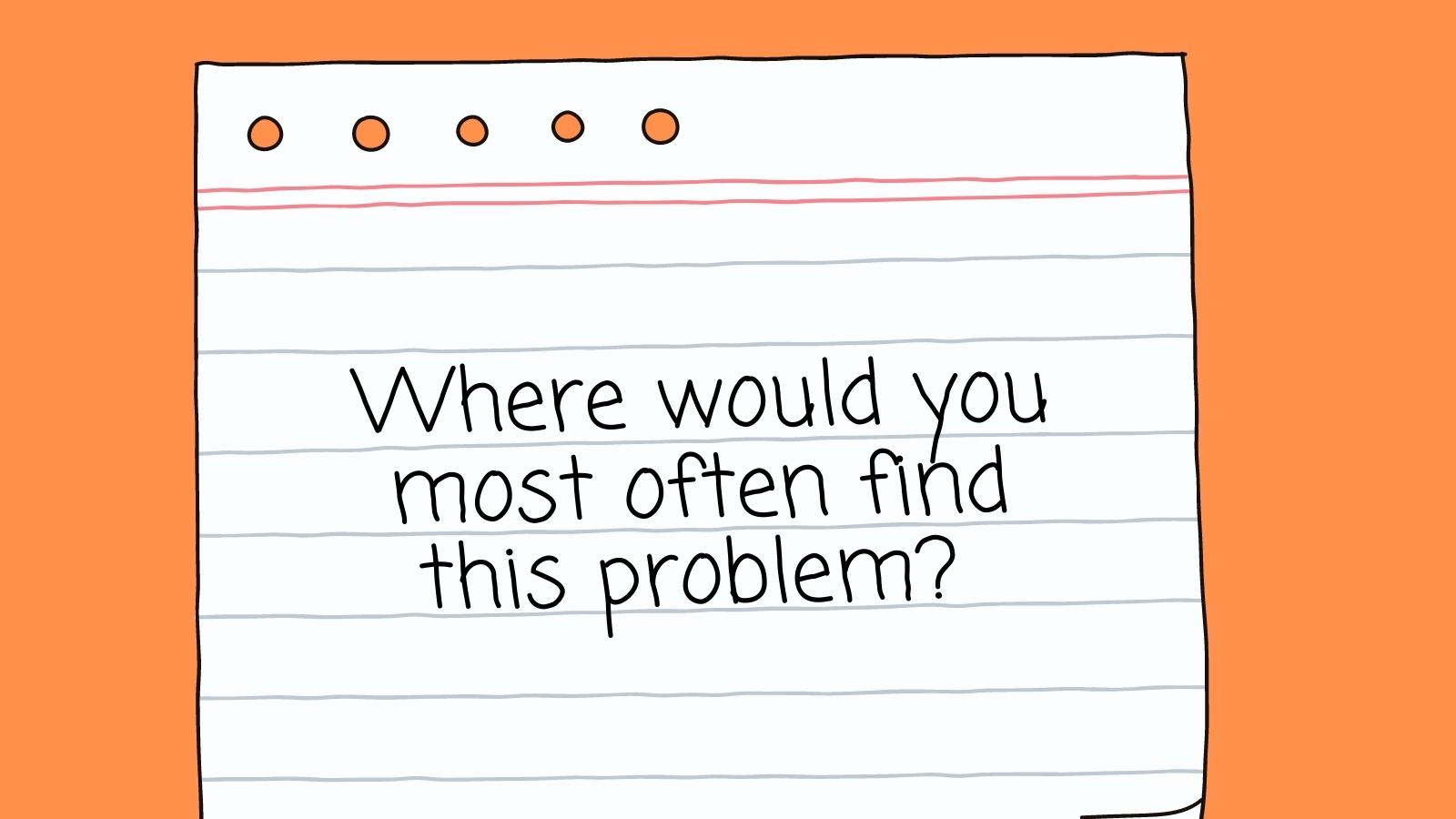
In an age of “fake news” claims and constant argument about pretty much any issue, critical thinking skills are key. Teach your students that it’s vital to ask questions about everything, but that it’s also important to ask the right sorts of questions. Students can use these critical thinking questions with fiction or nonfiction texts. They’re also useful when discussing important issues or trying to understand others’ motivations in general.
“Who” Critical Thinking Questions
Questions like these help students ponder who’s involved in a story and how the actions affect them. They’ll also consider who’s telling the tale and how reliable that narrator might be.
- Is the protagonist?
- Is the antagonist?
- Caused harm?
- Is harmed as a result?
- Was the most important character?
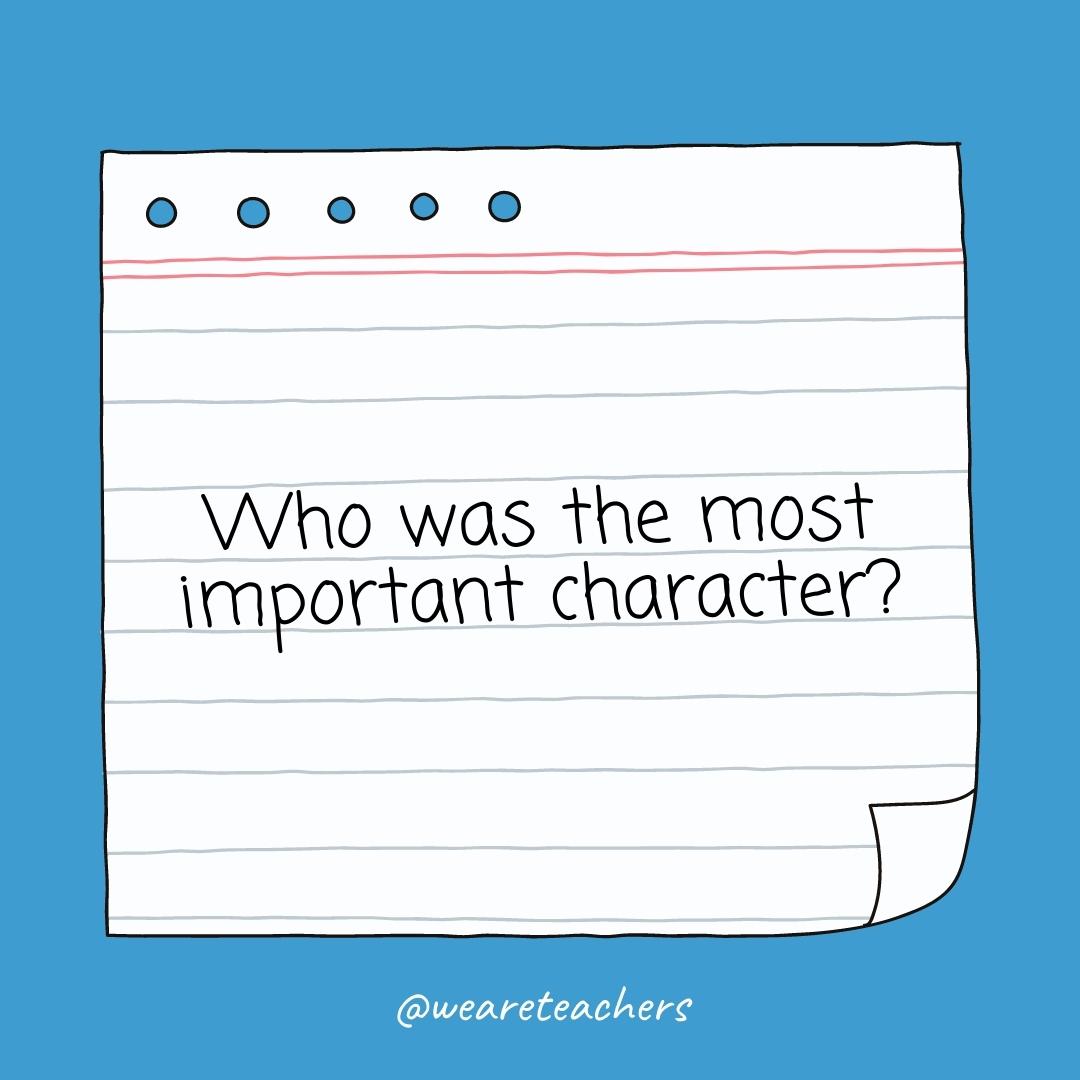
- Is responsible?
- Is most directly affected?
- Should have won?
- Will benefit?
- Would be affected by this?
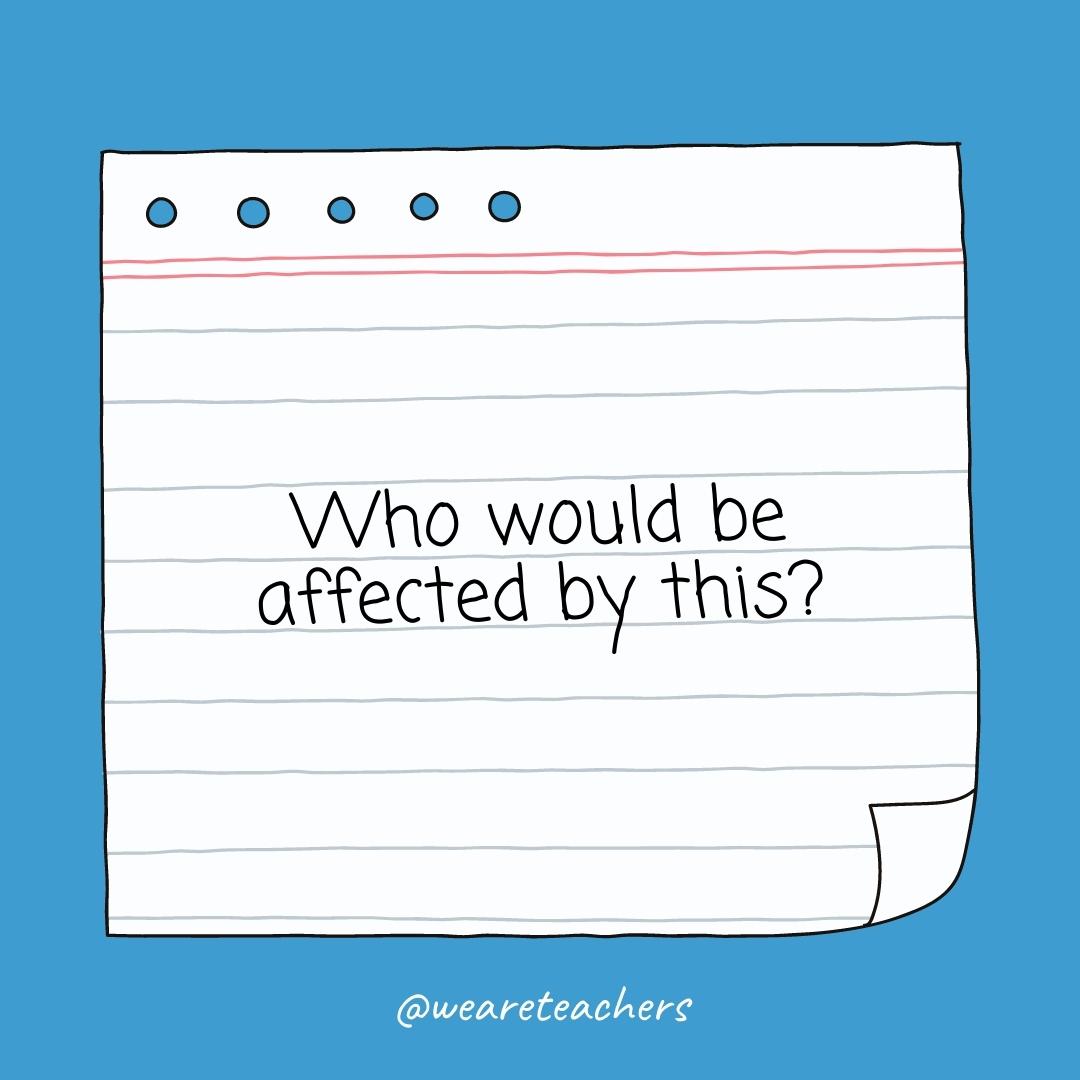
- Makes the decisions?
“What” Critical Thinking Questions
Ask questions that explore issues more deeply, including those that might not be directly answered in the text.
- Background information do I know or need to know?
- Is the main message?
- Are the defining characteristics?
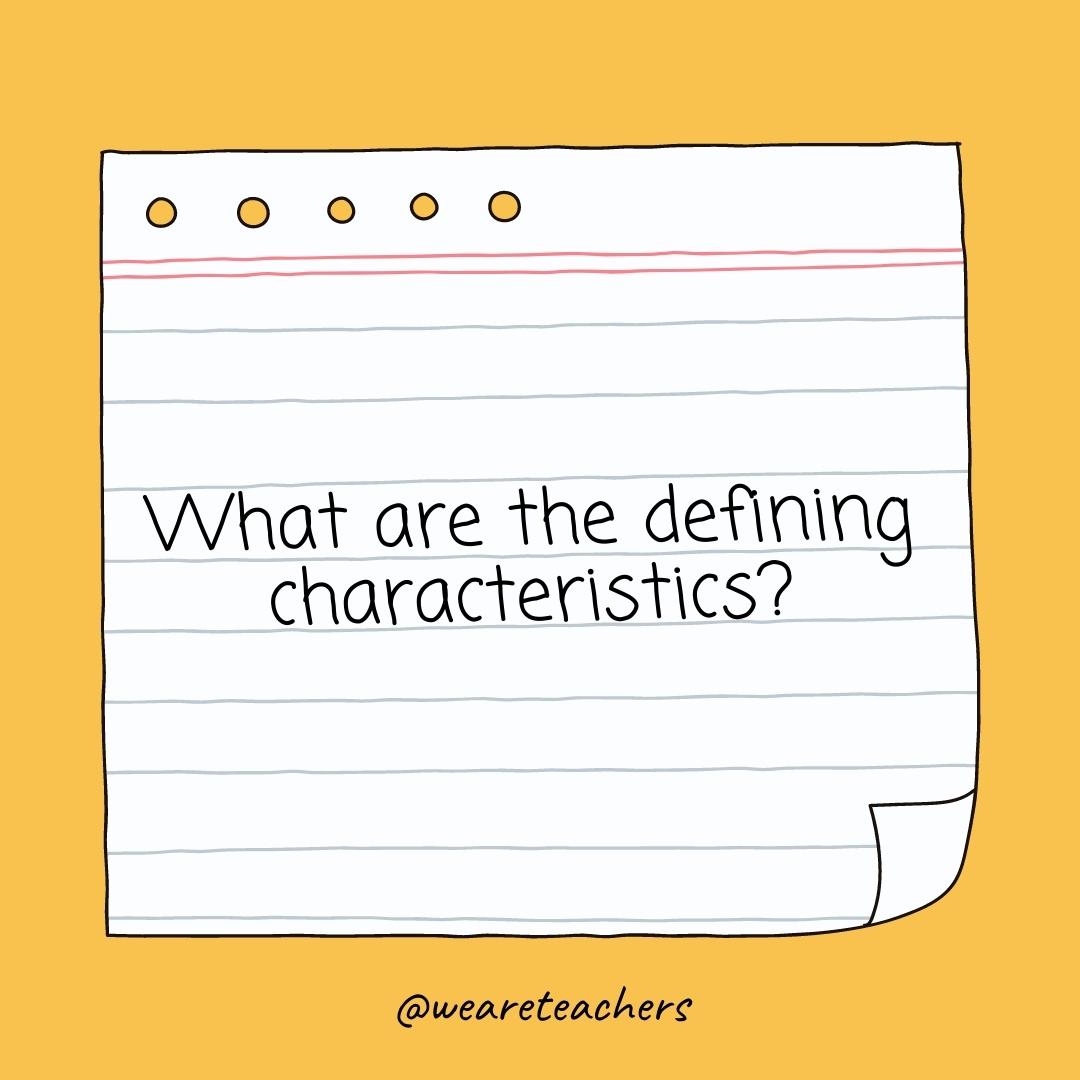
- Questions or concerns do I have?
- Don’t I understand?
- Evidence supports the author’s conclusion?
- Would it be like if … ?
- Could happen if … ?
- Other outcomes might have happened?
- Questions would you have asked?
- Would you ask the author about … ?
- Was the point of … ?
- Should have happened instead?
- Is that character’s motive?
- Else could have changed the whole story?
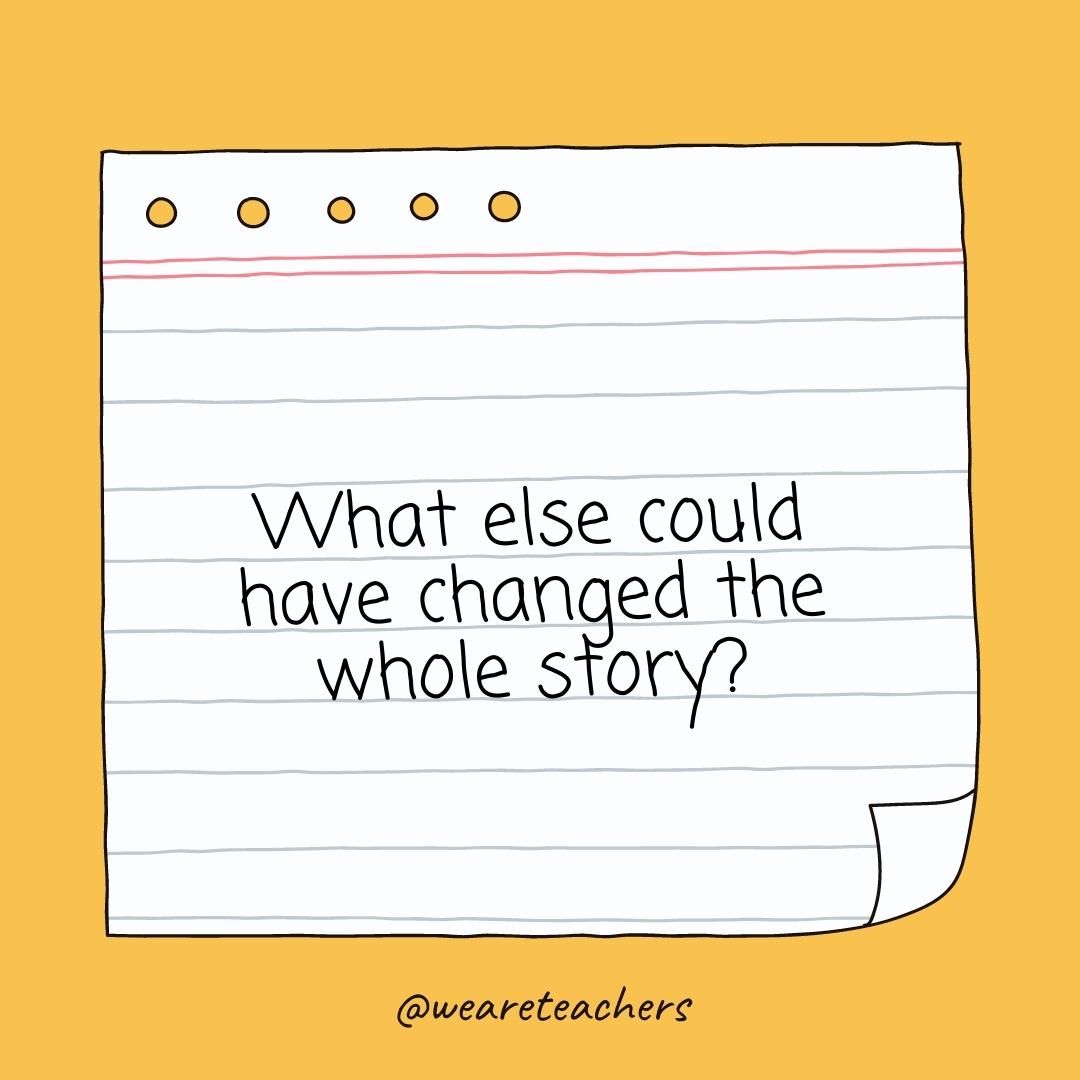
- Can you conclude?
- Would your position have been in that situation?
- Would happen if … ?
- Makes your position stronger?
- Was the turning point?
- Is the point of the question?
- Did it mean when … ?
- Is the other side of this argument?
- Was the purpose of … ?
- Does ______ mean?
- Is the problem you are trying to solve?
- Does the evidence say?
- Assumptions are you making?
- Is a better alternative?
- Are the strengths of the argument?
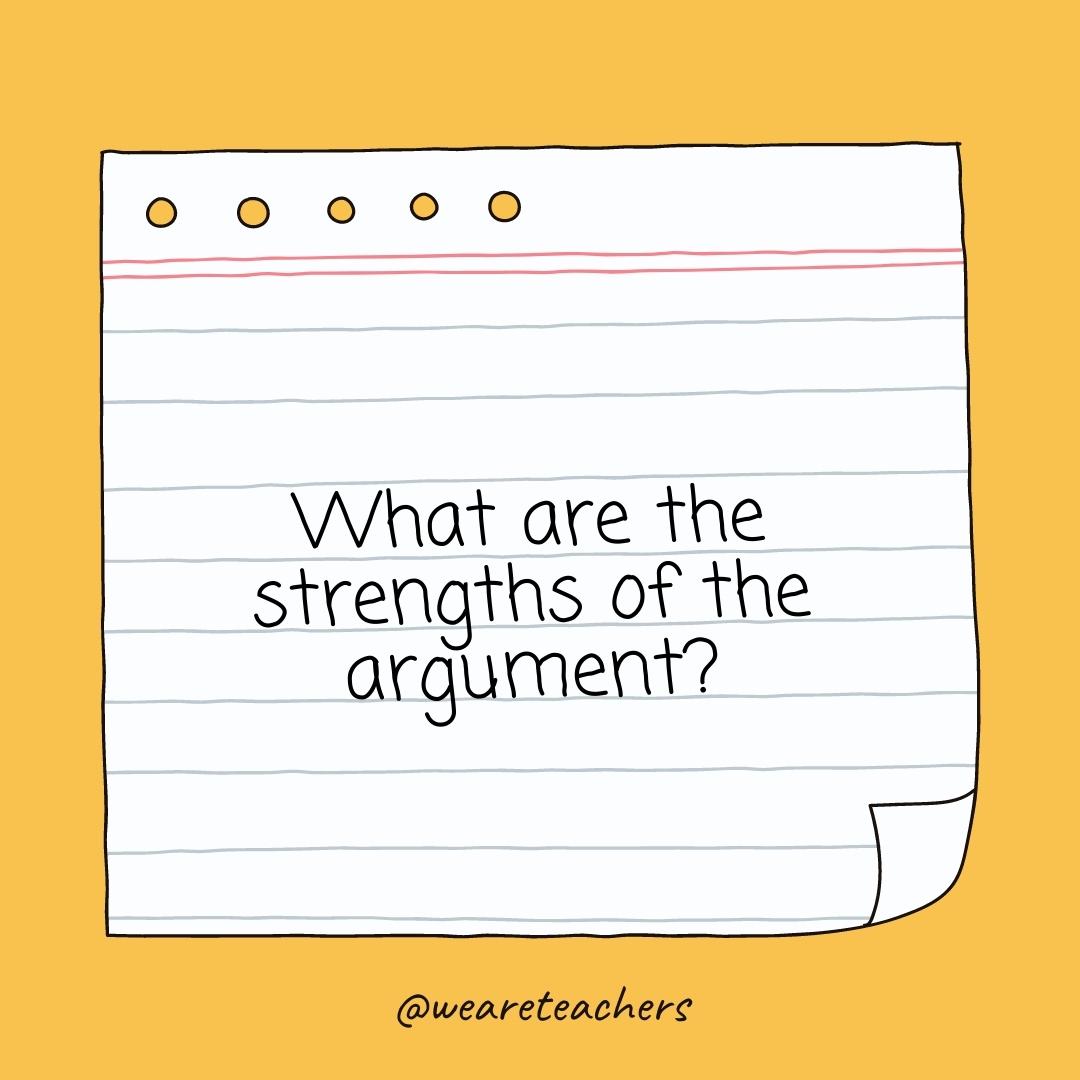
- Are the weaknesses of the argument?
- Is the difference between _______ and _______?
“Where” Critical Thinking Questions
Think about where the story is set and how it affects the actions. Plus, consider where and how you can learn more.
- Would this issue be a major problem?
- Are areas for improvement?
- Did the story change?
- Would you most often find this problem?

- Are there similar situations?
- Would you go to get answers to this problem?
- Can this be improved?
- Can you get more information?
- Will this idea take us?
“When” Critical Thinking Questions
Think about timing and the effect it has on the characters or people involved.
- Is this acceptable?
- Is this unacceptable?
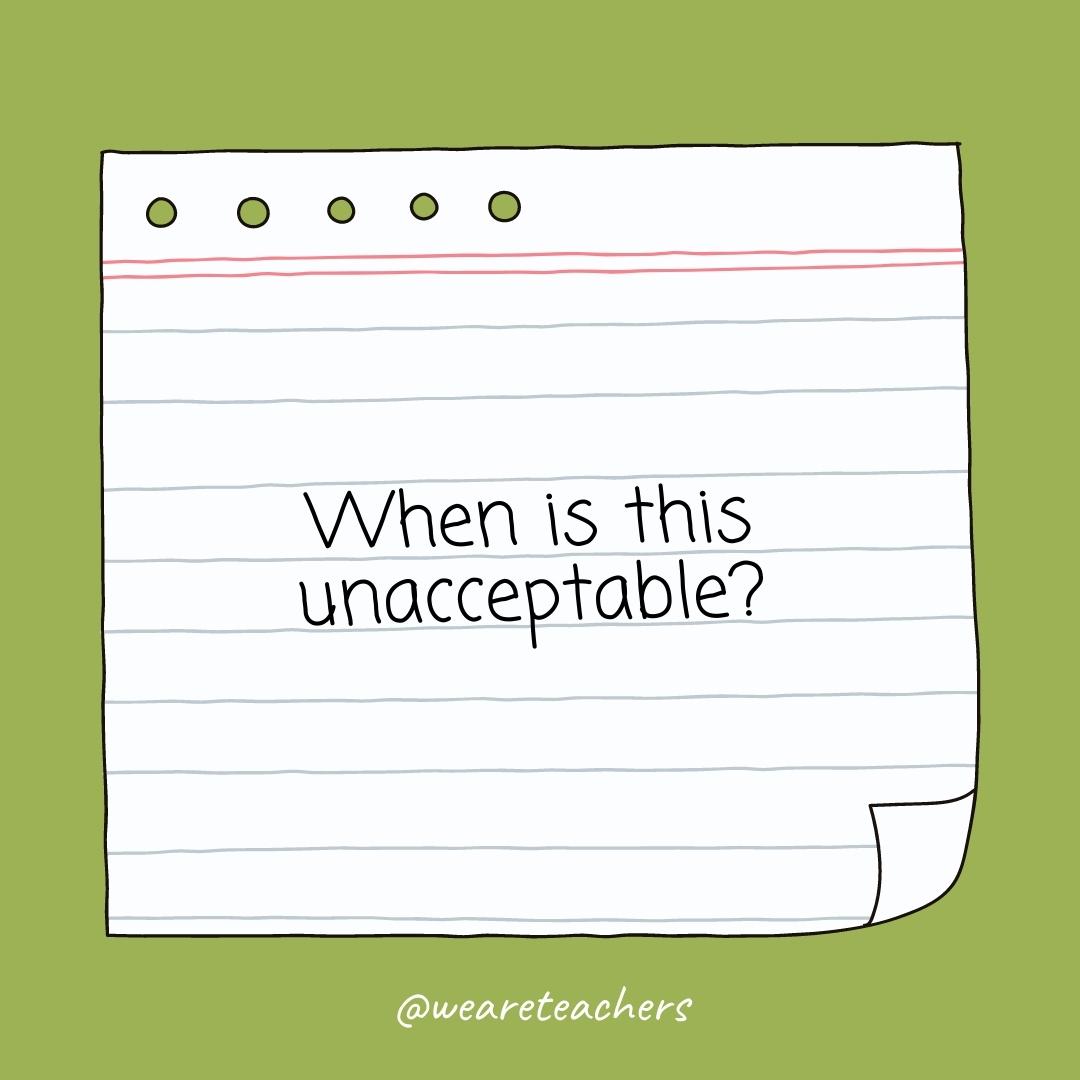
- Does this become a problem?
- Is the best time to take action?
- Will we be able to tell if it worked?
- Is it time to reassess?
- Should we ask for help?
- Is the best time to start?
- Is it time to stop?
- Would this benefit society?
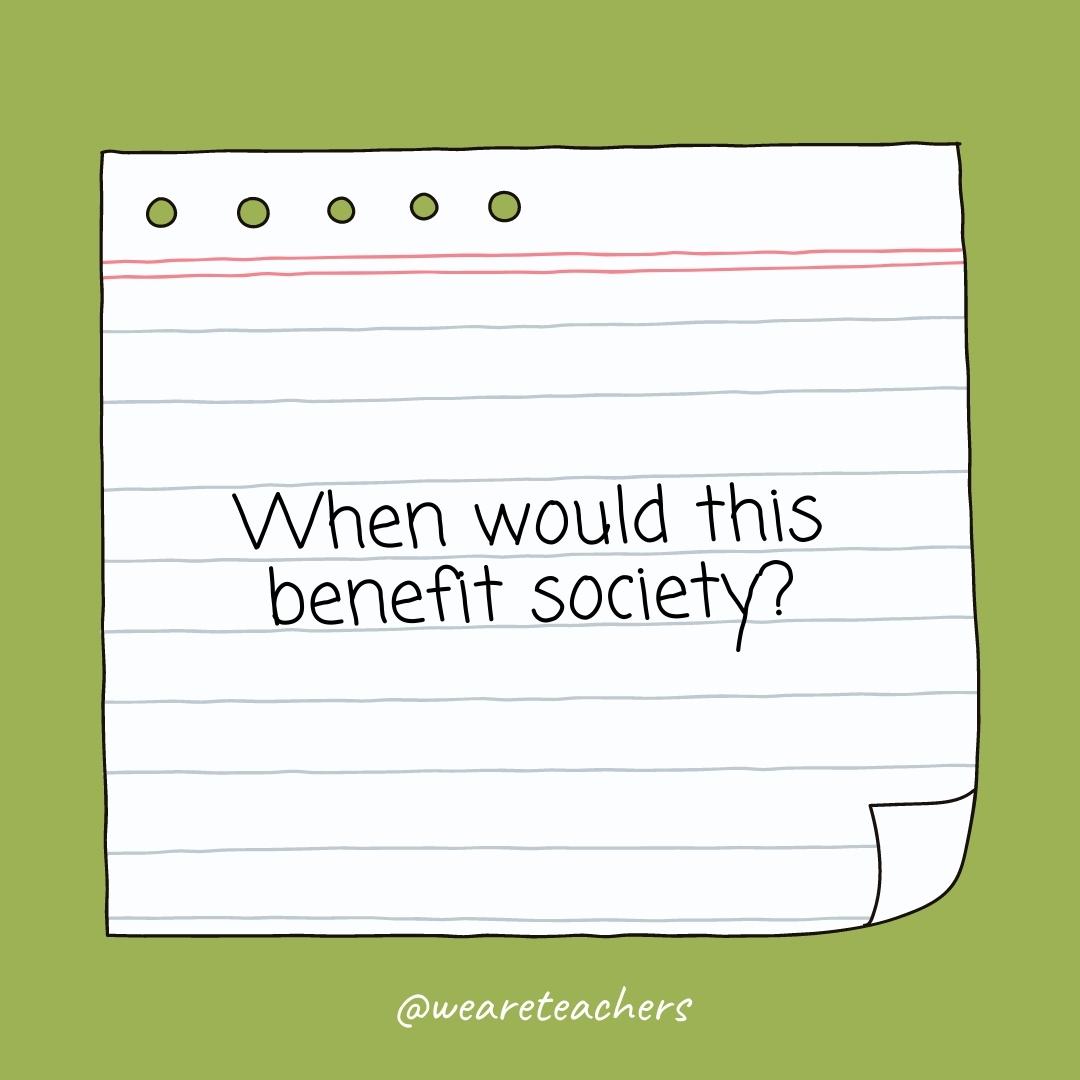
- Has this happened before?
“Why” Critical Thinking Questions
Asking “why” might be one of the most important parts of critical thinking. Exploring and understanding motivation helps develop empathy and make sense of difficult situations.
- Is _________ happening?
- Have we allowed this to happen?
- Should people care about this issue?
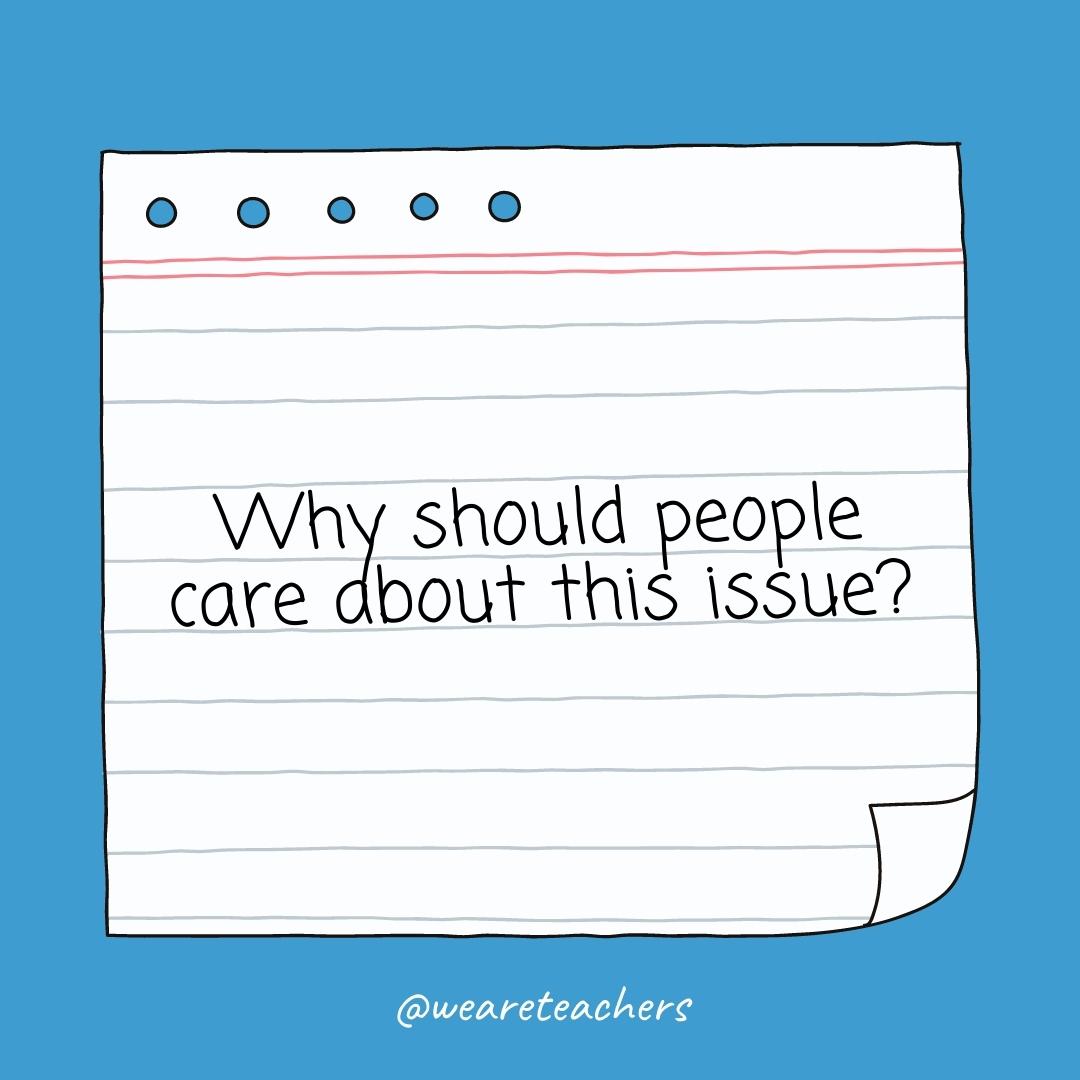
- Is this a problem?
- Did the character say … ?
- Did the character do … ?
- Is this relevant?
- Did the author write this?
- Did the author decide to … ?
- Is this important?
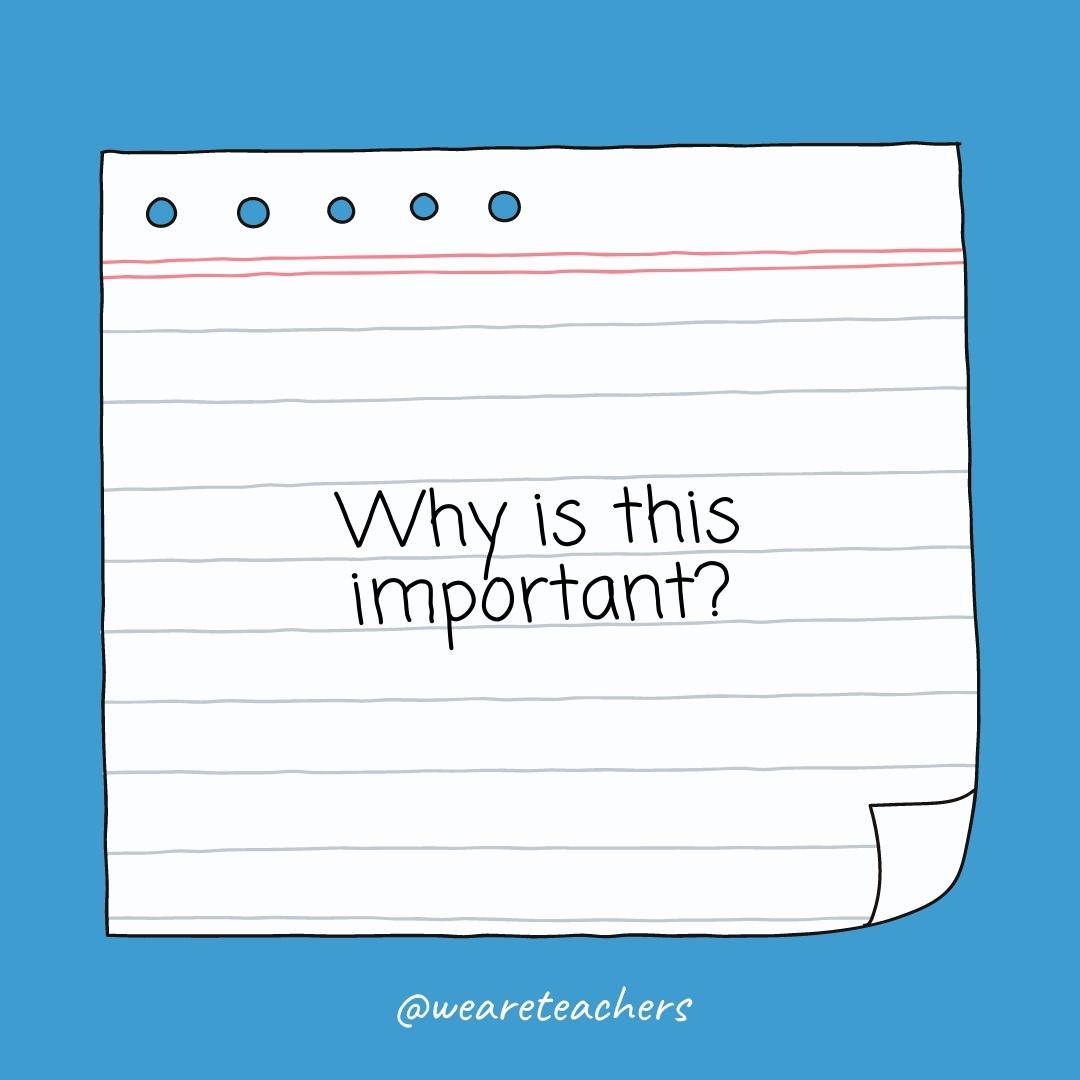
- Did that happen?
- Is it necessary?
- Do you think I (he, she, they) asked that question?
- Is that answer the best one?
- Do we need this today?
“How” Critical Thinking Questions
Use these questions to consider how things happen and whether change is possible.
- Do we know this is true?
- Does the language used affect the story?
- Would you solve … ?
- Is this different from other situations?
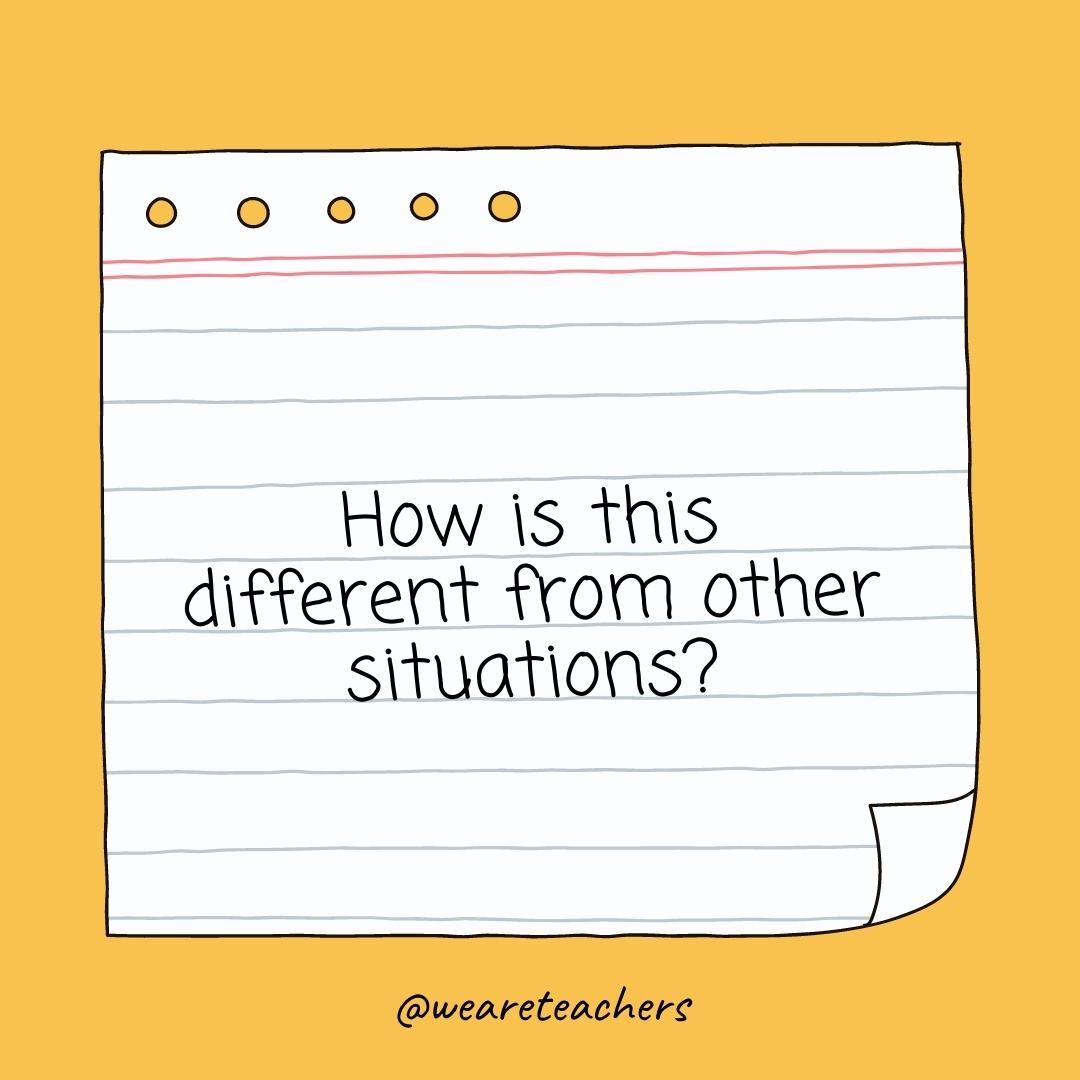
- Is this similar to … ?
- Would you use … ?
- Does the location affect the story?
- Could the story have ended differently?
- Does this work?
- Could this be harmful?
- Does this connect with what I already know?
- Else could this have been handled?
- Should they have responded?
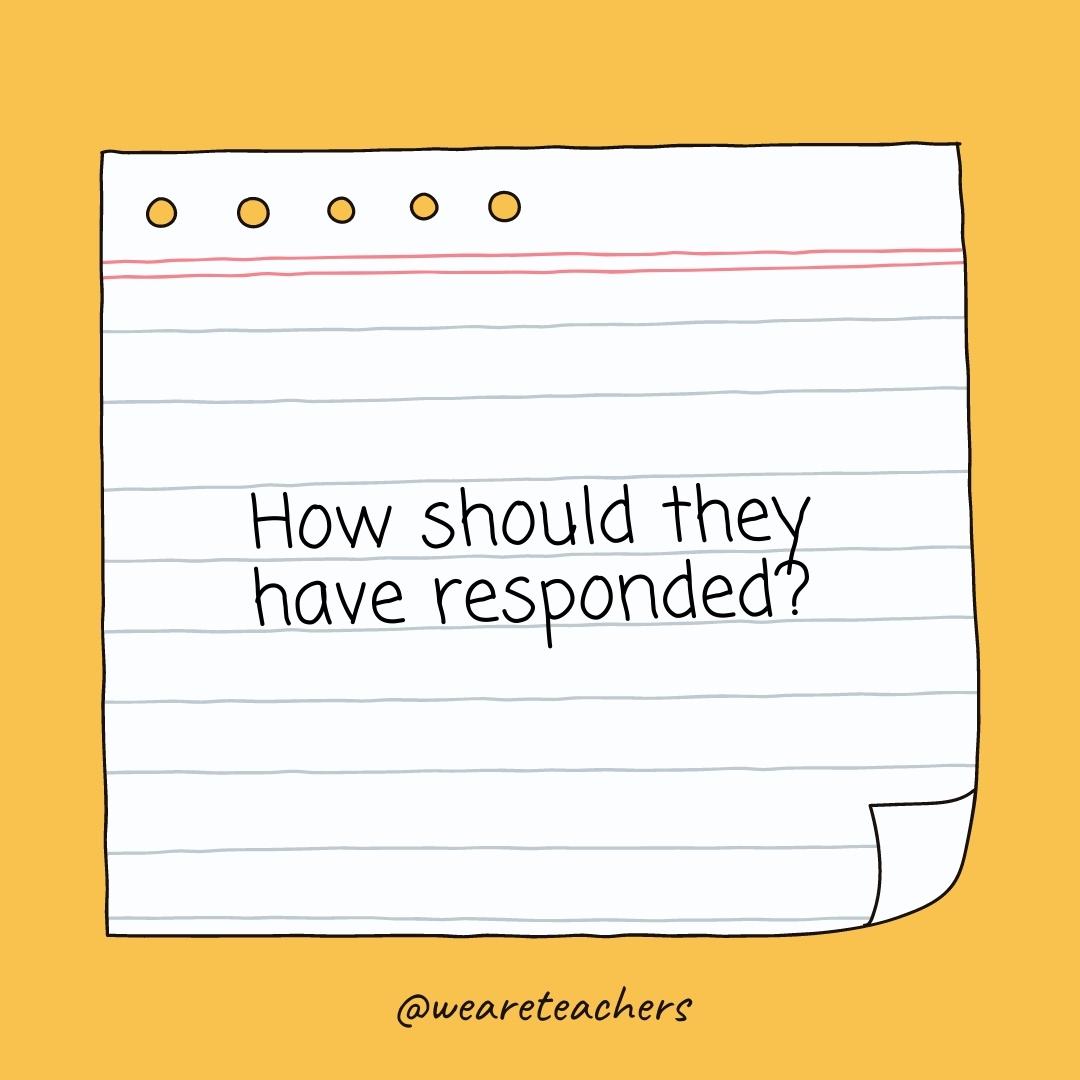
- Would you feel about … ?
- Does this change the outcome?
- Did you make that decision?
- Does this benefit you/others?
- Does this hurt you/others?
- Could this problem be avoided?
More Critical Thinking Questions
Here are more questions to help probe further and deepen understanding.
- Can you give me an example?
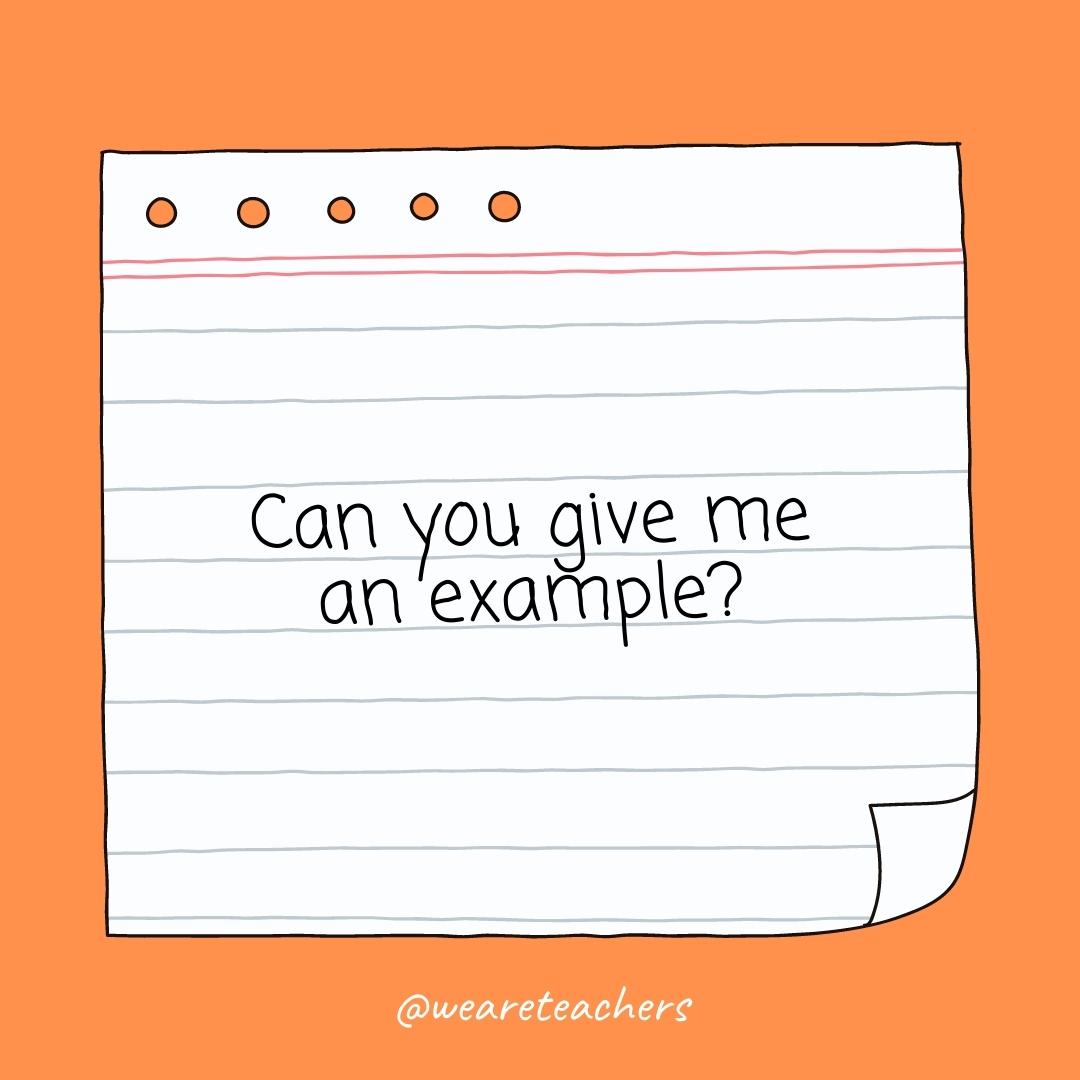
- Do you agree with … ?
- Can you compare this with … ?
- Can you defend the actions of … ?
- Could this be interpreted differently?
- Is the narrator reliable?
- Does it seem too good to be true?
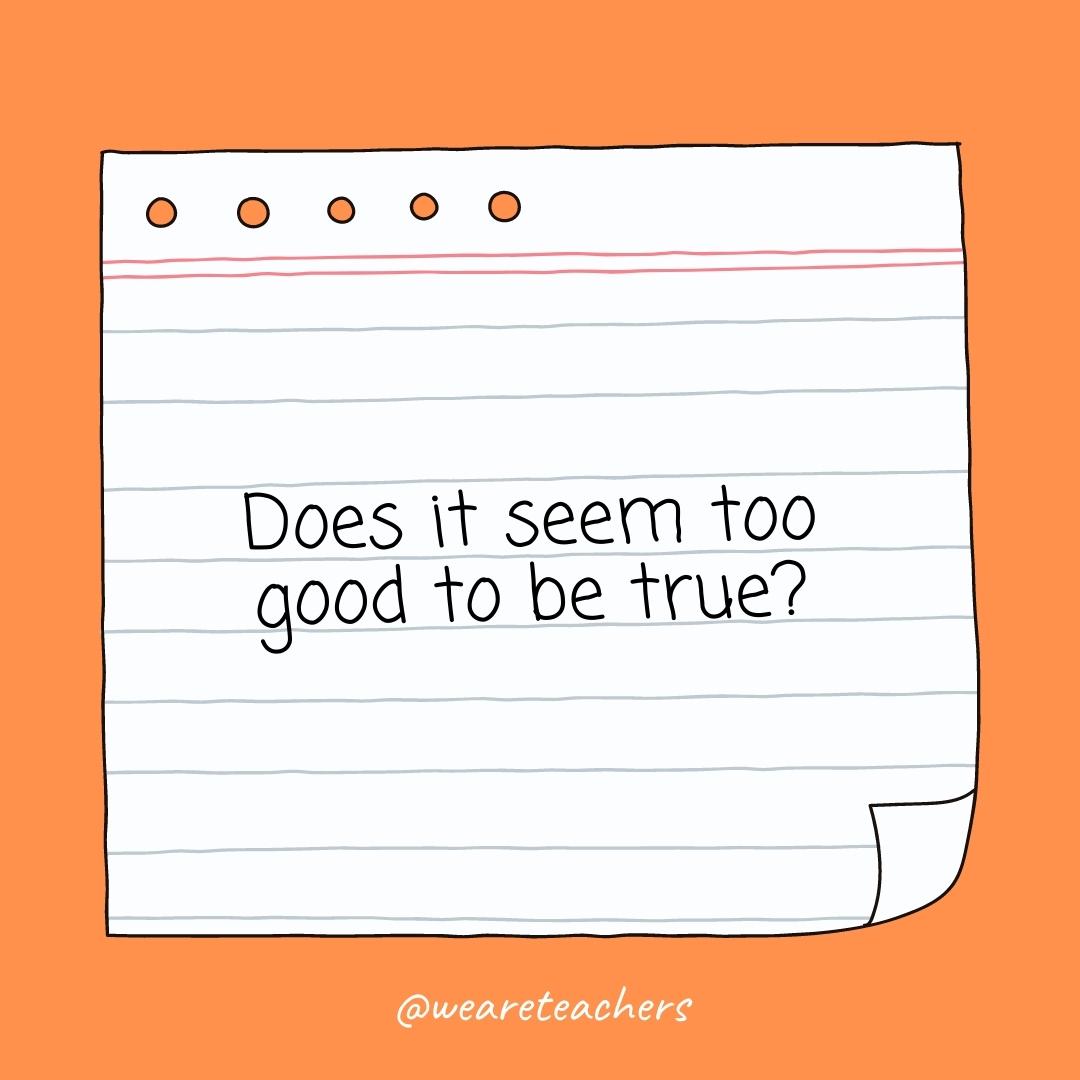
- Is ______ a fact or an opinion?
What are your favorite critical thinking questions? Come exchange ideas on the WeAreTeachers HELPLINE group on Facebook .
Plus, check out 10 tips for teaching kids to be awesome critical thinkers ., you might also like.
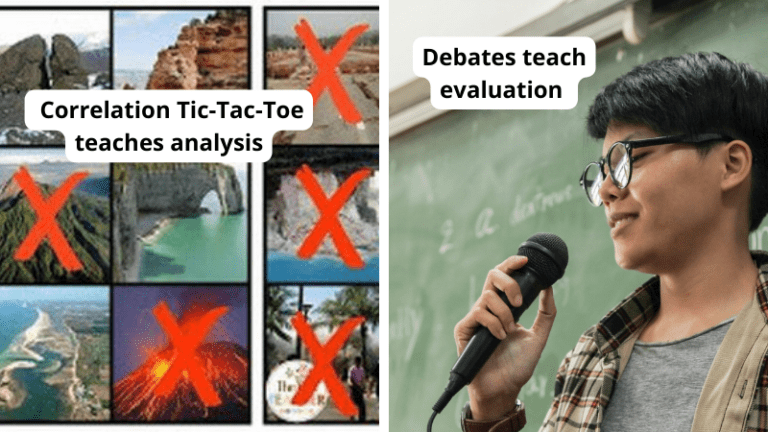
5 Critical Thinking Skills Every Kid Needs To Learn (And How To Teach Them)
Teach them to thoughtfully question the world around them. Continue Reading
Copyright © 2024. All rights reserved. 5335 Gate Parkway, Jacksonville, FL 32256

48 Critical Thinking Questions For Any Content Area
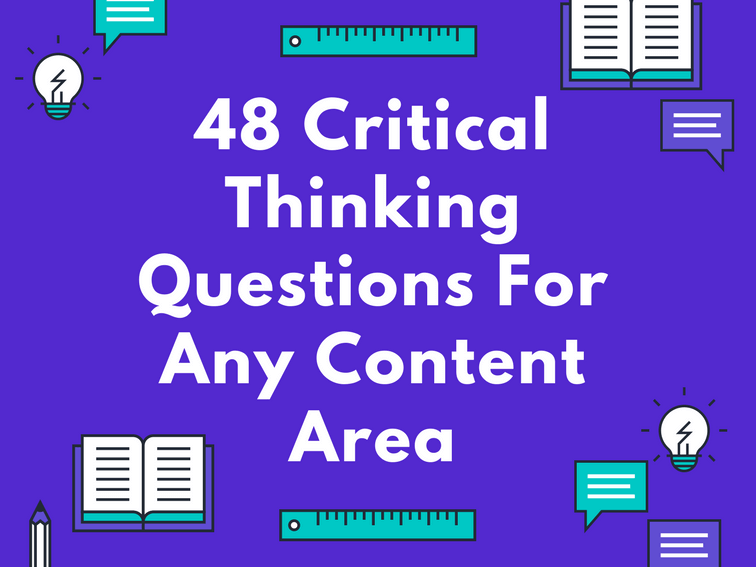
What Are Critical Thinking Questions For Any Content Area?
by TeachThought Staff
Critical thinking is the heart and soul of learning, and–in our estimation anyway–ultimately more important than any one specific content area or subject matter.
It’s also an over-used and rather nebulous phrase — how do you teach someone to think? Of course, that’s the purpose of education, but how do you effectively optimize that concept into lasting knowledge and the ability to apply it broadly?
Looking for more resources to teach critical thinking? Check out our critical thinking curricula resources on TpT.
What Is Critical Thinking?
This question is what inspires the creation of seemingly endless learning taxonomies and teaching methods: our desire to pin down a clear definition of what it means to think critically and how to introduce that skill in the classroom.
This makes critical thinking questions–well, critical. As Terry Heick explains in What Does Critical Thinking Mean?:
“To think critically about something is to claim to first circle its meaning entirely—to walk all the way around it so that you understand it in a way that’s uniquely you. The thinker works with their own thinking tools–schema. Background knowledge. Sense of identity. Meaning Making is a process as unique to that thinker as their own thumbprint. There is no template.
After circling the meaning of whatever you’re thinking critically about—navigation necessarily done with bravado and purpose—the thinker can then analyze the thing. In thinking critically, the thinker has to see its parts, its form, its function, and its context.
After this kind of survey and analysis you can come to evaluate it–bring to bear your own distinctive cognition on the thing so that you can point out flaws, underscore bias, emphasize merit—to get inside the mind of the author, designer, creator, or clockmaker and critique his work.”
A Cheat Sheet For Critical Thinking
In short, critical thinking is more than understanding something — it involves evaluation, critiquing, and a depth of knowledge that surpasses the subject itself and expands outward. It requires problem-solving, creativity, rationalization, and a refusal to accept things at face value.
It’s a willingness and ability to question everything.
The Ultimate Cheat Sheet For Digital Thinking by Global Digital Citizen Foundation is an excellent starting point for the ‘how’ behind teaching critical thinking by outlining which questions to ask.
It offers 48 critical thinking questions useful for any content area or even grade level with a little re-working/re-wording. Enjoy the list!
48 Critical Thinking Questions For Any Content Area

See Also: 28 Critical Thinking Question Stems & Response Cards
About The Author
Teachthought staff.
15 Questions that Teachers and Parents Can Ask Kids to Encourage Critical Thinking
By Maureen Leming
Each student walks across the graduation stage, diploma in one hand and a proverbial toolbox in the other. Inside the box is every skill and piece of knowledge they've learned throughout their childhood. The contents of this toolbox will be their building blocks to success beyond high school.
In addition to impressive classroom discoveries — like producing electricity from potatoes or building their own paper mache volcano — there's a vital skill every student should possess: critical thinking. They'll use this skill to assess, critique, and create, propelling them to thrive in the real world as they participate in engaging conversations and offer constructive solutions to real-world issues.
Fortunately, this valuable skill can be developed both inside and out of the classroom. Teachers and parents can encourage kids to think deeply and critically about the world by asking good questions. We'll explore why, as parents and teachers, the questions we ask our kids matter — and what we can be asking to help them excel.
How Questions Guide Young Students’ Critical Thinking
Critical thinking is about so much more than simply knowing the facts. Thinking critically involves applying reason and logic to assess arguments and come to your own conclusions. Instead of reciting facts or giving a textbook answer, critical thinking skills encourage students to move beyond knowing information and get to the heart of what they really think and believe.
15 Questions to Encourage Critical Thinking
What is one of the best ways to encourage critical thinking? By asking excellent questions!
We have compiled a list of 15 questions that you, as a teacher or parent, can ask to encourage kids to think outside the box. Let's dive in.
1. How Do You Know This?
Whether it was by word of mouth, classroom knowledge, or a news report, this question prompts students to consider whether their source of information is reputable.
2. How Would Your Perspective Be Different If You Were on the Opposing Side?
This question encourages kids to role-play from an opposing person’s viewpoint and discover a perspective outside their own so that they can better understand the broader situation. Extracurriculars like debate class — mandatory for all Hun middle school students — is a powerful way to accomplish this goal, as students must thoughtfully anticipate their opposition's arguments in order to counter them.
3. How Would You Solve This Problem?
Finding creative solutions to common problems is a valuable life skill. This question is the perfect opportunity to encourage young minds to wander!
4. Do You Agree or Disagree — and Why?
Choosing a side in any debate challenges students to consider both perspectives, weigh the arguments, and make an informed choice.
5. Why? Why? Why?
Just like when you were a young kid, ask why repeatedly to push students beyond a simple first, second, or even third answer, to get to the real depth. Be careful, though, not to ask them to the point of frustration — you want learning and exploring to be a positive experience.
6. How Could We Avoid This Problem in the Future?
Ask students to apply critical thinking by analyzing how they could prevent a certain issue from reoccurring.
7. Why Does It Matter?
Whether they're learning about a historical event or a mathematical concept, it's important to understand why the topic is relevant today.
8. What's Another Way to Look at This Issue?
It can be easy to learn one worldview and automatically believe it is the only, or the best, way. Challenging kids to think of a creative alternate perspective encourages them to think more broadly.
9. Can You Give Me an Example?
Inventing an example, or pulling from experience to share a real one, is an excellent way to apply critical thinking skills.
10. How Could It Have Ended Differently?
It takes some innovation and careful analysis to storyboard a different ending, considering "what could have been" rather than "what is."
11. When Will We Be Able to Tell If It Worked?
Kids will be pushed to consider what constitutes success and how it can be measured in scenarios where the results aren't set in stone.
12. Why did you ask that question?
Instead of answering a question at face value, this question encourages kids to think about what the merits of the question may be.
13. Who Would Be Affected by This?
Students as the next generation of leaders and game-changers. When making any decision, it's important to consider who will be impacted and how.
14. What Can This Story Teach Us About Our Own Lives?
From literature to social studies, students interact with all kinds of different stories. Help them take these narratives one step further by examining how it relates to their lives.
15. Why Is This a Problem?
Analyzing why something is a problem — rather than just accepting that it is — will help students develop strong problem-solving skills of their own.
The Hun School of Princeton Teaches Critical Thinking
At the Hun School of Princeton, our teachers ask these questions, and more, in combination with our student-centered learning approach that helps kids of all ages think critically about what they’re learning.
As a premier private school in Princeton, NJ , we aim to help students think deeply and develop well-rounded skill sets through immersive, problem-based learning .
Schedule a tour today to see our program in action!
Schedule a Tour
41+ Critical Thinking Examples (Definition + Practices)

Critical thinking is an essential skill in our information-overloaded world, where figuring out what is fact and fiction has become increasingly challenging.
But why is critical thinking essential? Put, critical thinking empowers us to make better decisions, challenge and validate our beliefs and assumptions, and understand and interact with the world more effectively and meaningfully.
Critical thinking is like using your brain's "superpowers" to make smart choices. Whether it's picking the right insurance, deciding what to do in a job, or discussing topics in school, thinking deeply helps a lot. In the next parts, we'll share real-life examples of when this superpower comes in handy and give you some fun exercises to practice it.
Critical Thinking Process Outline

Critical thinking means thinking clearly and fairly without letting personal feelings get in the way. It's like being a detective, trying to solve a mystery by using clues and thinking hard about them.
It isn't always easy to think critically, as it can take a pretty smart person to see some of the questions that aren't being answered in a certain situation. But, we can train our brains to think more like puzzle solvers, which can help develop our critical thinking skills.
Here's what it looks like step by step:
Spotting the Problem: It's like discovering a puzzle to solve. You see that there's something you need to figure out or decide.
Collecting Clues: Now, you need to gather information. Maybe you read about it, watch a video, talk to people, or do some research. It's like getting all the pieces to solve your puzzle.
Breaking It Down: This is where you look at all your clues and try to see how they fit together. You're asking questions like: Why did this happen? What could happen next?
Checking Your Clues: You want to make sure your information is good. This means seeing if what you found out is true and if you can trust where it came from.
Making a Guess: After looking at all your clues, you think about what they mean and come up with an answer. This answer is like your best guess based on what you know.
Explaining Your Thoughts: Now, you tell others how you solved the puzzle. You explain how you thought about it and how you answered.
Checking Your Work: This is like looking back and seeing if you missed anything. Did you make any mistakes? Did you let any personal feelings get in the way? This step helps make sure your thinking is clear and fair.
And remember, you might sometimes need to go back and redo some steps if you discover something new. If you realize you missed an important clue, you might have to go back and collect more information.
Critical Thinking Methods
Just like doing push-ups or running helps our bodies get stronger, there are special exercises that help our brains think better. These brain workouts push us to think harder, look at things closely, and ask many questions.
It's not always about finding the "right" answer. Instead, it's about the journey of thinking and asking "why" or "how." Doing these exercises often helps us become better thinkers and makes us curious to know more about the world.
Now, let's look at some brain workouts to help us think better:
1. "What If" Scenarios
Imagine crazy things happening, like, "What if there was no internet for a month? What would we do?" These games help us think of new and different ideas.
Pick a hot topic. Argue one side of it and then try arguing the opposite. This makes us see different viewpoints and think deeply about a topic.
3. Analyze Visual Data
Check out charts or pictures with lots of numbers and info but no explanations. What story are they telling? This helps us get better at understanding information just by looking at it.
4. Mind Mapping
Write an idea in the center and then draw lines to related ideas. It's like making a map of your thoughts. This helps us see how everything is connected.
There's lots of mind-mapping software , but it's also nice to do this by hand.
5. Weekly Diary
Every week, write about what happened, the choices you made, and what you learned. Writing helps us think about our actions and how we can do better.
6. Evaluating Information Sources
Collect stories or articles about one topic from newspapers or blogs. Which ones are trustworthy? Which ones might be a little biased? This teaches us to be smart about where we get our info.
There are many resources to help you determine if information sources are factual or not.
7. Socratic Questioning
This way of thinking is called the Socrates Method, named after an old-time thinker from Greece. It's about asking lots of questions to understand a topic. You can do this by yourself or chat with a friend.
Start with a Big Question:
"What does 'success' mean?"
Dive Deeper with More Questions:
"Why do you think of success that way?" "Do TV shows, friends, or family make you think that?" "Does everyone think about success the same way?"
"Can someone be a winner even if they aren't rich or famous?" "Can someone feel like they didn't succeed, even if everyone else thinks they did?"
Look for Real-life Examples:
"Who is someone you think is successful? Why?" "Was there a time you felt like a winner? What happened?"
Think About Other People's Views:
"How might a person from another country think about success?" "Does the idea of success change as we grow up or as our life changes?"
Think About What It Means:
"How does your idea of success shape what you want in life?" "Are there problems with only wanting to be rich or famous?"
Look Back and Think:
"After talking about this, did your idea of success change? How?" "Did you learn something new about what success means?"

8. Six Thinking Hats
Edward de Bono came up with a cool way to solve problems by thinking in six different ways, like wearing different colored hats. You can do this independently, but it might be more effective in a group so everyone can have a different hat color. Each color has its way of thinking:
White Hat (Facts): Just the facts! Ask, "What do we know? What do we need to find out?"
Red Hat (Feelings): Talk about feelings. Ask, "How do I feel about this?"
Black Hat (Careful Thinking): Be cautious. Ask, "What could go wrong?"
Yellow Hat (Positive Thinking): Look on the bright side. Ask, "What's good about this?"
Green Hat (Creative Thinking): Think of new ideas. Ask, "What's another way to look at this?"
Blue Hat (Planning): Organize the talk. Ask, "What should we do next?"
When using this method with a group:
- Explain all the hats.
- Decide which hat to wear first.
- Make sure everyone switches hats at the same time.
- Finish with the Blue Hat to plan the next steps.
9. SWOT Analysis
SWOT Analysis is like a game plan for businesses to know where they stand and where they should go. "SWOT" stands for Strengths, Weaknesses, Opportunities, and Threats.
There are a lot of SWOT templates out there for how to do this visually, but you can also think it through. It doesn't just apply to businesses but can be a good way to decide if a project you're working on is working.
Strengths: What's working well? Ask, "What are we good at?"
Weaknesses: Where can we do better? Ask, "Where can we improve?"
Opportunities: What good things might come our way? Ask, "What chances can we grab?"
Threats: What challenges might we face? Ask, "What might make things tough for us?"
Steps to do a SWOT Analysis:
- Goal: Decide what you want to find out.
- Research: Learn about your business and the world around it.
- Brainstorm: Get a group and think together. Talk about strengths, weaknesses, opportunities, and threats.
- Pick the Most Important Points: Some things might be more urgent or important than others.
- Make a Plan: Decide what to do based on your SWOT list.
- Check Again Later: Things change, so look at your SWOT again after a while to update it.
Now that you have a few tools for thinking critically, let’s get into some specific examples.
Everyday Examples
Life is a series of decisions. From the moment we wake up, we're faced with choices – some trivial, like choosing a breakfast cereal, and some more significant, like buying a home or confronting an ethical dilemma at work. While it might seem that these decisions are disparate, they all benefit from the application of critical thinking.
10. Deciding to buy something
Imagine you want a new phone. Don't just buy it because the ad looks cool. Think about what you need in a phone. Look up different phones and see what people say about them. Choose the one that's the best deal for what you want.
11. Deciding what is true
There's a lot of news everywhere. Don't believe everything right away. Think about why someone might be telling you this. Check if what you're reading or watching is true. Make up your mind after you've looked into it.
12. Deciding when you’re wrong
Sometimes, friends can have disagreements. Don't just get mad right away. Try to see where they're coming from. Talk about what's going on. Find a way to fix the problem that's fair for everyone.
13. Deciding what to eat
There's always a new diet or exercise that's popular. Don't just follow it because it's trendy. Find out if it's good for you. Ask someone who knows, like a doctor. Make choices that make you feel good and stay healthy.
14. Deciding what to do today
Everyone is busy with school, chores, and hobbies. Make a list of things you need to do. Decide which ones are most important. Plan your day so you can get things done and still have fun.
15. Making Tough Choices
Sometimes, it's hard to know what's right. Think about how each choice will affect you and others. Talk to people you trust about it. Choose what feels right in your heart and is fair to others.
16. Planning for the Future
Big decisions, like where to go to school, can be tricky. Think about what you want in the future. Look at the good and bad of each choice. Talk to people who know about it. Pick what feels best for your dreams and goals.

Job Examples
17. solving problems.
Workers brainstorm ways to fix a machine quickly without making things worse when a machine breaks at a factory.
18. Decision Making
A store manager decides which products to order more of based on what's selling best.
19. Setting Goals
A team leader helps their team decide what tasks are most important to finish this month and which can wait.
20. Evaluating Ideas
At a team meeting, everyone shares ideas for a new project. The group discusses each idea's pros and cons before picking one.
21. Handling Conflict
Two workers disagree on how to do a job. Instead of arguing, they talk calmly, listen to each other, and find a solution they both like.
22. Improving Processes
A cashier thinks of a faster way to ring up items so customers don't have to wait as long.
23. Asking Questions
Before starting a big task, an employee asks for clear instructions and checks if they have the necessary tools.
24. Checking Facts
Before presenting a report, someone double-checks all their information to make sure there are no mistakes.
25. Planning for the Future
A business owner thinks about what might happen in the next few years, like new competitors or changes in what customers want, and makes plans based on those thoughts.
26. Understanding Perspectives
A team is designing a new toy. They think about what kids and parents would both like instead of just what they think is fun.
School Examples
27. researching a topic.
For a history project, a student looks up different sources to understand an event from multiple viewpoints.
28. Debating an Issue
In a class discussion, students pick sides on a topic, like school uniforms, and share reasons to support their views.
29. Evaluating Sources
While writing an essay, a student checks if the information from a website is trustworthy or might be biased.
30. Problem Solving in Math
When stuck on a tricky math problem, a student tries different methods to find the answer instead of giving up.
31. Analyzing Literature
In English class, students discuss why a character in a book made certain choices and what those decisions reveal about them.
32. Testing a Hypothesis
For a science experiment, students guess what will happen and then conduct tests to see if they're right or wrong.
33. Giving Peer Feedback
After reading a classmate's essay, a student offers suggestions for improving it.
34. Questioning Assumptions
In a geography lesson, students consider why certain countries are called "developed" and what that label means.
35. Designing a Study
For a psychology project, students plan an experiment to understand how people's memories work and think of ways to ensure accurate results.
36. Interpreting Data
In a science class, students look at charts and graphs from a study, then discuss what the information tells them and if there are any patterns.
Critical Thinking Puzzles

Not all scenarios will have a single correct answer that can be figured out by thinking critically. Sometimes we have to think critically about ethical choices or moral behaviors.
Here are some mind games and scenarios you can solve using critical thinking. You can see the solution(s) at the end of the post.
37. The Farmer, Fox, Chicken, and Grain Problem
A farmer is at a riverbank with a fox, a chicken, and a grain bag. He needs to get all three items across the river. However, his boat can only carry himself and one of the three items at a time.
Here's the challenge:
- If the fox is left alone with the chicken, the fox will eat the chicken.
- If the chicken is left alone with the grain, the chicken will eat the grain.
How can the farmer get all three items across the river without any item being eaten?
38. The Rope, Jar, and Pebbles Problem
You are in a room with two long ropes hanging from the ceiling. Each rope is just out of arm's reach from the other, so you can't hold onto one rope and reach the other simultaneously.
Your task is to tie the two rope ends together, but you can't move the position where they hang from the ceiling.
You are given a jar full of pebbles. How do you complete the task?
39. The Two Guards Problem
Imagine there are two doors. One door leads to certain doom, and the other leads to freedom. You don't know which is which.
In front of each door stands a guard. One guard always tells the truth. The other guard always lies. You don't know which guard is which.
You can ask only one question to one of the guards. What question should you ask to find the door that leads to freedom?
40. The Hourglass Problem
You have two hourglasses. One measures 7 minutes when turned over, and the other measures 4 minutes. Using just these hourglasses, how can you time exactly 9 minutes?
41. The Lifeboat Dilemma
Imagine you're on a ship that's sinking. You get on a lifeboat, but it's already too full and might flip over.
Nearby in the water, five people are struggling: a scientist close to finding a cure for a sickness, an old couple who've been together for a long time, a mom with three kids waiting at home, and a tired teenager who helped save others but is now in danger.
You can only save one person without making the boat flip. Who would you choose?
42. The Tech Dilemma
You work at a tech company and help make a computer program to help small businesses. You're almost ready to share it with everyone, but you find out there might be a small chance it has a problem that could show users' private info.
If you decide to fix it, you must wait two more months before sharing it. But your bosses want you to share it now. What would you do?
43. The History Mystery
Dr. Amelia is a history expert. She's studying where a group of people traveled long ago. She reads old letters and documents to learn about it. But she finds some letters that tell a different story than what most people believe.
If she says this new story is true, it could change what people learn in school and what they think about history. What should she do?
The Role of Bias in Critical Thinking
Have you ever decided you don’t like someone before you even know them? Or maybe someone shared an idea with you that you immediately loved without even knowing all the details.
This experience is called bias, which occurs when you like or dislike something or someone without a good reason or knowing why. It can also take shape in certain reactions to situations, like a habit or instinct.
Bias comes from our own experiences, what friends or family tell us, or even things we are born believing. Sometimes, bias can help us stay safe, but other times it stops us from seeing the truth.
Not all bias is bad. Bias can be a mechanism for assessing our potential safety in a new situation. If we are biased to think that anything long, thin, and curled up is a snake, we might assume the rope is something to be afraid of before we know it is just a rope.
While bias might serve us in some situations (like jumping out of the way of an actual snake before we have time to process that we need to be jumping out of the way), it often harms our ability to think critically.
How Bias Gets in the Way of Good Thinking
Selective Perception: We only notice things that match our ideas and ignore the rest.
It's like only picking red candies from a mixed bowl because you think they taste the best, but they taste the same as every other candy in the bowl. It could also be when we see all the signs that our partner is cheating on us but choose to ignore them because we are happy the way we are (or at least, we think we are).
Agreeing with Yourself: This is called “ confirmation bias ” when we only listen to ideas that match our own and seek, interpret, and remember information in a way that confirms what we already think we know or believe.
An example is when someone wants to know if it is safe to vaccinate their children but already believes that vaccines are not safe, so they only look for information supporting the idea that vaccines are bad.
Thinking We Know It All: Similar to confirmation bias, this is called “overconfidence bias.” Sometimes we think our ideas are the best and don't listen to others. This can stop us from learning.
Have you ever met someone who you consider a “know it”? Probably, they have a lot of overconfidence bias because while they may know many things accurately, they can’t know everything. Still, if they act like they do, they show overconfidence bias.
There's a weird kind of bias similar to this called the Dunning Kruger Effect, and that is when someone is bad at what they do, but they believe and act like they are the best .
Following the Crowd: This is formally called “groupthink”. It's hard to speak up with a different idea if everyone agrees. But this can lead to mistakes.
An example of this we’ve all likely seen is the cool clique in primary school. There is usually one person that is the head of the group, the “coolest kid in school”, and everyone listens to them and does what they want, even if they don’t think it’s a good idea.
How to Overcome Biases
Here are a few ways to learn to think better, free from our biases (or at least aware of them!).
Know Your Biases: Realize that everyone has biases. If we know about them, we can think better.
Listen to Different People: Talking to different kinds of people can give us new ideas.
Ask Why: Always ask yourself why you believe something. Is it true, or is it just a bias?
Understand Others: Try to think about how others feel. It helps you see things in new ways.
Keep Learning: Always be curious and open to new information.

In today's world, everything changes fast, and there's so much information everywhere. This makes critical thinking super important. It helps us distinguish between what's real and what's made up. It also helps us make good choices. But thinking this way can be tough sometimes because of biases. These are like sneaky thoughts that can trick us. The good news is we can learn to see them and think better.
There are cool tools and ways we've talked about, like the "Socratic Questioning" method and the "Six Thinking Hats." These tools help us get better at thinking. These thinking skills can also help us in school, work, and everyday life.
We’ve also looked at specific scenarios where critical thinking would be helpful, such as deciding what diet to follow and checking facts.
Thinking isn't just a skill—it's a special talent we improve over time. Working on it lets us see things more clearly and understand the world better. So, keep practicing and asking questions! It'll make you a smarter thinker and help you see the world differently.
Critical Thinking Puzzles (Solutions)
The farmer, fox, chicken, and grain problem.
- The farmer first takes the chicken across the river and leaves it on the other side.
- He returns to the original side and takes the fox across the river.
- After leaving the fox on the other side, he returns the chicken to the starting side.
- He leaves the chicken on the starting side and takes the grain bag across the river.
- He leaves the grain with the fox on the other side and returns to get the chicken.
- The farmer takes the chicken across, and now all three items -- the fox, the chicken, and the grain -- are safely on the other side of the river.
The Rope, Jar, and Pebbles Problem
- Take one rope and tie the jar of pebbles to its end.
- Swing the rope with the jar in a pendulum motion.
- While the rope is swinging, grab the other rope and wait.
- As the swinging rope comes back within reach due to its pendulum motion, grab it.
- With both ropes within reach, untie the jar and tie the rope ends together.
The Two Guards Problem
The question is, "What would the other guard say is the door to doom?" Then choose the opposite door.
The Hourglass Problem
- Start both hourglasses.
- When the 4-minute hourglass runs out, turn it over.
- When the 7-minute hourglass runs out, the 4-minute hourglass will have been running for 3 minutes. Turn the 7-minute hourglass over.
- When the 4-minute hourglass runs out for the second time (a total of 8 minutes have passed), the 7-minute hourglass will run for 1 minute. Turn the 7-minute hourglass again for 1 minute to empty the hourglass (a total of 9 minutes passed).
The Boat and Weights Problem
Take the cat over first and leave it on the other side. Then, return and take the fish across next. When you get there, take the cat back with you. Leave the cat on the starting side and take the cat food across. Lastly, return to get the cat and bring it to the other side.
The Lifeboat Dilemma
There isn’t one correct answer to this problem. Here are some elements to consider:
- Moral Principles: What values guide your decision? Is it the potential greater good for humanity (the scientist)? What is the value of long-standing love and commitment (the elderly couple)? What is the future of young children who depend on their mothers? Or the selfless bravery of the teenager?
- Future Implications: Consider the future consequences of each choice. Saving the scientist might benefit millions in the future, but what moral message does it send about the value of individual lives?
- Emotional vs. Logical Thinking: While it's essential to engage empathy, it's also crucial not to let emotions cloud judgment entirely. For instance, while the teenager's bravery is commendable, does it make him more deserving of a spot on the boat than the others?
- Acknowledging Uncertainty: The scientist claims to be close to a significant breakthrough, but there's no certainty. How does this uncertainty factor into your decision?
- Personal Bias: Recognize and challenge any personal biases, such as biases towards age, profession, or familial status.
The Tech Dilemma
Again, there isn’t one correct answer to this problem. Here are some elements to consider:
- Evaluate the Risk: How severe is the potential vulnerability? Can it be easily exploited, or would it require significant expertise? Even if the circumstances are rare, what would be the consequences if the vulnerability were exploited?
- Stakeholder Considerations: Different stakeholders will have different priorities. Upper management might prioritize financial projections, the marketing team might be concerned about the product's reputation, and customers might prioritize the security of their data. How do you balance these competing interests?
- Short-Term vs. Long-Term Implications: While launching on time could meet immediate financial goals, consider the potential long-term damage to the company's reputation if the vulnerability is exploited. Would the short-term gains be worth the potential long-term costs?
- Ethical Implications : Beyond the financial and reputational aspects, there's an ethical dimension to consider. Is it right to release a product with a known vulnerability, even if the chances of it being exploited are low?
- Seek External Input: Consulting with cybersecurity experts outside your company might be beneficial. They could provide a more objective risk assessment and potential mitigation strategies.
- Communication: How will you communicate the decision, whatever it may be, both internally to your team and upper management and externally to your customers and potential users?
The History Mystery
Dr. Amelia should take the following steps:
- Verify the Letters: Before making any claims, she should check if the letters are actual and not fake. She can do this by seeing when and where they were written and if they match with other things from that time.
- Get a Second Opinion: It's always good to have someone else look at what you've found. Dr. Amelia could show the letters to other history experts and see their thoughts.
- Research More: Maybe there are more documents or letters out there that support this new story. Dr. Amelia should keep looking to see if she can find more evidence.
- Share the Findings: If Dr. Amelia believes the letters are true after all her checks, she should tell others. This can be through books, talks, or articles.
- Stay Open to Feedback: Some people might agree with Dr. Amelia, and others might not. She should listen to everyone and be ready to learn more or change her mind if new information arises.
Ultimately, Dr. Amelia's job is to find out the truth about history and share it. It's okay if this new truth differs from what people used to believe. History is about learning from the past, no matter the story.
Related posts:
- Experimenter Bias (Definition + Examples)
- Hasty Generalization Fallacy (31 Examples + Similar Names)
- Ad Hoc Fallacy (29 Examples + Other Names)
- Confirmation Bias (Examples + Definition)
- Equivocation Fallacy (26 Examples + Description)
Reference this article:
About The Author

Free Personality Test

Free Memory Test

Free IQ Test

PracticalPie.com is a participant in the Amazon Associates Program. As an Amazon Associate we earn from qualifying purchases.
Follow Us On:
Youtube Facebook Instagram X/Twitter
Psychology Resources
Developmental
Personality
Relationships
Psychologists
Serial Killers
Psychology Tests
Personality Quiz
Memory Test
Depression test
Type A/B Personality Test
© PracticalPsychology. All rights reserved
Privacy Policy | Terms of Use
283 Philosophical Questions to Spark Deep Critical Thinking
Philosophy has implications for daily life. Pick a handful of these 255 questions as a starting point for thinking critically.
Subscribe to our weekly newsletter
It can be easy to get so caught up in daily life that we forget to stop and think about our world. Thinking about philosophical questions can help you think critically.
Building a practice of thinking critically of the world will empower you to make decisions that you feel confident in—whether it’s how you vote, spend your time, or use your resources.
If you’re looking for where to start, check out this list of philosophical questions!

What is a Philosophical Question?
A philosophical question often doesn’t have a clear, straightforward answer. They are questions that usually require deep thought and sometimes don’t have answers.
Philosophical questions typically involve human nature, the origins of the universe, morality, ethics, and the afterlife.
Philosophical Questions About Behavior
Humans are complex beings, and our world is also complicated. This can make it hard to parse the good from the bad and right from wrong. Take a moment to consider some of these philosophical questions about behavior and human nature.
- What is the difference between good and bad people?
- Is it essential to be a “good person”?
- What makes people feel more attached to some people than others?
- Is tribalism, or looking out for others like you, innately good, bad, or neutral?
- If one existed apart from other humans, would they still value goodness?
- Are there moral commonalities amongst diverse people groups and cultures?
- Are individuals important, and if so, in what ways?
- Are humans more important than other animals? Why or why not?
- Are some people more important than others?
- Is the death penalty right or wrong?
- What should be the repercussions for wronging someone else?
- What is wisdom?
- Is wisdom a helpful tool?
- Why is wisdom often associated with age?
- If a person has an accident and is no longer able to contribute to society, has their value as a person decreased, increased, or stayed the same?
- Can people change?
- How does one become a “good person”?
- If someone’s personality changes, does that mean they have also changed?
- Can you ever honestly know another person?
- If someone’s intentions were good but the outcome of an action is terrible, at that moment, is the person good or bad?
- If someone does a kind deed but has a selfish motive, does that impact the goodness of the deed?
- When babies are born, are they good?
- If identical twins grew up never knowing each other, how similar and different would they be?
- Is there ever a justifiable reason to kill someone?
- Are people born with a specific personality, or is the character the result of their circumstances?
- Is lying ever a good thing?
- If you steal money but use it to save someone’s life, does that justify the theft?
- Should someone being ignorant be a valid excuse for their rudeness?
- Can we choose our emotions, or do they happen to us?
Watch our video below to learn how to start a conversation with anyone using these killer conversation starters:
Philosophy Questions About Love
“Love is a biological necessity. We cannot live without it” —Stephanie Cacioppo, neuroscientist specializing in love and loneliness
As people, we need to love and be loved. You can express love in many different ways. Use these questions to spark some critical thought on the topic of love, or check out these truth or dare questions while you’re at it.
- What is love?
- How do you know you are loved?
- How do you know that you love someone?
- Is the desire to be loved an innate human desire?
- Why do people desire love?
- Does love necessitate action, or can it exist simply as a feeling?
- In what ways are love, lust, and sexual desire different from one another?
- Is an understanding of pain necessary to appreciate love?
- Does the loss of love change one’s outlook on life?
- Can one show love without first being loved? Is love an intrinsic aspect of human nature or a reciprocated act?
- Are there different forms of love such as parental, friendship, or romantic? Or are they all diverse expressions of the same substance?
- Can romantic love for one person last forever?
- Can love ever be a bad thing?
- How does unreciprocated love affect people?
- What does falling in love mean?
- What causes someone to fall in love?
- Does love feel different to different people?
- Is love, health, or money more important?
- Can you choose to feel love for someone?
- Does being loved by more people correlate to a person’s value?
- Is there a difference in depth of love versus quantity of love?
- To love someone well, do you need to show their love how they want to be loved, or can you love them the way you naturally show love?
Pro Tip: If you’re interested in learning more about different ways to show love, read up on the five love languages .
- Is there “The one?”
- What does it mean to love yourself?
- Do you need to love yourself before you can love others?
- Is loving yourself selfish?
- Is it essential to have a friendship with your partner?
- If your partner grew up in an abusive household, are you more understanding of unhealthy behavior?
- Would you rather be respected or loved?
Fun Philosophical Questions
Philosophy can be fun! If you think philosophy is all heavily intellectual, overwhelming, abstract, or existential-crisis-inducing, take a moment to ponder if a hot dog is a taco.
- Are you currently dreaming, and how do you know?
- Do memories exist even if you forget them?
- Does grass feel pain when you step on it?
- Can trees feel pain?
- Does 1+1 always equal 2?
- Would it be ethical, unethical, or neutral if time travel were possible?
- If time travel were possible, would it be wrong to change history?
- What is the purpose of humor?
- Why are jokes funny?
- If one person doesn’t find a joke funny, does it mean they have a lousy sense of humor, or is the joke flawed?
- Are humans responsible in any way for caring for wild animals?
- Can inanimate objects be either bad or good?
- Does morality bind animals?
- Is water wet?
- Are hot dogs tacos?
- Is it wrong to visit a zoo, thereby financially supporting an establishment that isn’t ideal for the animals?
- Is it wrong to purchase fast fashion , rapidly produced clothing that uses manufacturing methods that negatively impact the environment and exploit workers?
- In a fictional world, could you have a five-sided square?
- How do we know what words mean?
- Why do some people feel scared while watching a horror movie even though they know it is not real?
- What would you say if you had five minutes to defend the human race in front of a group of aliens who were going to obliterate humanity?
- Are there any physiological changes you would make humans make us a better species?
- Should the legal age for alcohol consumption be different than it is?
- If your life expectancy suddenly increased to 500 years, would you live differently than you currently are? What about if your life expectancy decreased and you only had five more years to live?
- If immortality were possible, would you want to be immortal?
Questions from Philosophy About Human Rights
What are human rights? Whose job is it to ensure that all humans have rights? These types of questions can be multifaceted and hard. It can be easy to avoid them or think they’re someone else’s job.
However, your daily choices can have a ripple effect on other people’s lives. Whether with who you vote for or how you spend your money, how you live impacts others.
Take some time to consider what you believe human rights are if everyone is entitled to them, and whose job it is to ensure everyone has rights.
- What are human rights?
- Is autonomy a human right?
- Is liberty a human right?
- Is free speech a human right?
- What is the difference between a human right and a privilege?
- Is it the responsibility of privileged individuals or the government to bridge gaps between privileged and disadvantaged people?
- If people are spreading misinformation, should they still be allowed to continue?
- Should abortion be legal?
- At what point in human development, from a fetus to a baby, does one become a person and gain rights?
- Is war ever necessary or even reasonable?
- How can societies work to dismantle systemic racism, ableism, sexism, and other forms of discrimination?
- If two people’s opinions differ, how should they resolve their differences?
- Has technology made it easier or harder to advance human rights?
- Is it the responsibility of wealthy countries to support impoverished countries?
- Should women’s rights be a priority to men? Why or why not?
- What makes a person a person?
- If a person has lost consciousness and doctors know they will not regain it, but their organs are still functioning, are they still a person?
- Is the internet good, bad, or neutral?
- Is being able to financially support a family a human right, or is having a large family a privilege?
- Do more humans have fundamental rights in the modern world, or have we lost human rights as time has progressed?
- If you could ensure every person on the planet would have access to a single human right, which one would you choose? Would there be any repercussions?
- What rights should prisoners of war have?
- Do you think those serial killers have an equal value to other people, or do their actions impact their value?
- Is privacy a human right?
- Is technological advancement minimizing our privacy?
Philosophical Questions About Society and Government
When we look at the societies we live in, they often have good and bad elements. These questions can help you think critically about the structures in place in your country.
- Are there any innately evil governmental structures?
- What would a perfect society look like?
- How involved should governments be in caring for the individuals in their country?
- If you could create your society, what would look different from the one where you live now?
- What role should the government have in the lives of individuals?
- What makes a good leader?
- Can someone do a bad thing and still be a good person?
- Is prison the best way to protect society and correct individuals?
- Does the legal system function fairly?
- Is technology good?
- Can technology advance society in a way that is beneficial?
- Are taxes morally right?
- Should it be lawful for citizens to hold protests? What if a handful of the protestors make it violent?
- What makes people work together despite differences?
- Does societal advancement only happen with collaboration?
- In what ways can disagreements advance society?
- What makes a crime a crime?
- How should citizens who believe the laws in their country be unjust behave? Is it okay for them to ignore those laws and are still bound to do what the law asks of them?
- Is it morally wrong to abstain from voting?
- Is it wrong for governments not to have healthcare available to all citizens?
- Should things that are bad for people be banned by the government, or is it the individual’s responsibility to avoid harmful substances?
- Is there an age at which people should be answerable for their actions?
- Is it discriminatory not to allow certain people to run for government office?
- Is it okay to limit immigration if a country is worried it will lose its culture?
- Should the government regulate what food manufacturers can and can’t put in their food?
- Is the government responsible for ensuring people receive a livable wage?
- Should those who live an unhealthy lifestyle have decreased access to healthcare?
- What would the ideal government look like?
Philosophical Questions Related to Culture
Culture can be a complicated issue to wrap your head around. When you travel or talk to someone from a different background, you may immediately notice surface-layer cultural differences such as what food people eat and what type of clothing they wear.
However, as you get to know a culture better, you may realize there are deep-seated differences, perspectives, and traditions.
These questions will help you think about the differences between cultures and if there are any aspects of culture that are innately good or bad.
- What is culture?
- How does culture form?
- Is it important to be mindful of other cultures, and if so, why?
- Are some cultures better than others?
- Is morality developed within a culture, or is it intrinsic?
- Is there a wrong way to discipline children?
- In what way is a family-oriented culture better or worse than an individualistic culture?
- Are individualistic cultures intrinsically selfish?
- What is success?
- Does income play a part in how you define success?
- Does the culture you were raised in impact your outlook on life?
- If someone has recently relocated to a new country, should there be leniency for breaking minor laws they did not know about, or should they be prosecuted the same as their counterpart raised in that culture?
- If a group practices human sacrifice as part of their culture, does that make it okay? Would you be wrong to try to save the person they would sacrifice?
- Is attractiveness a cultural construct?
Philosophical Questions About Space and the Universe
Humans have long been in awe of space. Our recorded fascination with space reaches back to ancient philosophers.
“Astronomy compels the soul to look upward and leads us from this world to another.” —Plato
However, it has only been in the past 75 years that humanity has started studying space up-close—and there’s still so much we don’t know about the universe we live in. These questions can help you find new ways to think about the world around you and how that informs your day-to-day life.
- Where does the Earth come from?
- Did a deity or event start the universe?
- Does the universe’s origin affect how one lives, and if so, how?
- Does the vastness of space impact the way you perceive yourself?
- Do things about the universe imply it exists due to chance or design?
- Is it the duty of those currently alive to be ecologically responsible?
- Is the Earth the only planet inhabited by living beings?
- Is anything in the world eternal?
- Is time eternal?
- Did time, as we now perceive it starts at a specific moment?
- Will time continue to run after the human species no longer exists?
- If we find another inhabitable planet, would there be any moral implications if humans left the earth and moved there?
- Should space travel be accessible to all people?
- Is it good, bad, or neutral that humans have invested so many resources into space exploration?
- Is there a difference between faith and superstition?
- If a deity exists, would it exist within our understanding of morality?
Philosophical Questions to Ask Kids
Philosophical questions can be challenging for children. Philosophy is often large and abstract. Because they’ve been alive for less time, children typically have fewer life experiences than adults to draw on when answering philosophical questions.
However, some of these questions are ones that small children are already wondering about. You may have heard them ask what happened to their goldfish after it died or struggle with differentiating emotions like happiness and sadness.
Introducing a few of these conversations may help the children in your life realize these are conversations you are ready and willing to have any time they have questions.
- What does it mean to feel happy?
- Why are some things right and some things wrong?
- Is it necessary to be nice to people, and why?
- What is kindness?
- Is being kind and being nice the same thing?
- What is the difference between good and evil?
- What happens to pets when they die?
- What are things that you know to be certain?
- What is something that you believe and why?
- If superheroes were real, would they be more responsible for protecting people than you are or equally accountable?
- Does helping people make you feel good? Why or why not?
- What is the difference between adults and children?
- What, if anything, makes a person different from an animal?
- Is social media good, bad, or neutral?
- How do you know that you belong?
Challenging Ethical Questions to Consider
The philosophical subtopic of ethics involves weighing between challenging scenarios and deciding which option is morally right. The challenges raised within ethics can often be incredibly challenging to sort out, and they are ones you may run into in life.
Remember, even if someone sees a topic differently than you do, it’s essential to be respectful and have conversations without getting vertigo from the “dizzying heights of your moral ground.”
- Is it wrong to kill one person if it might save the lives of hundreds of others?
- Is using euthanasia to intentionally end a life to prevent further pain and suffering immoral?
- Should people be allowed to commit medically induced suicide?
- Was former President Harry Truman’s decision to drop the atomic bombs unethical? Some argue that it saved many lives by ending the war quicker. Does that change the ethics of killing civilians during a time of war?
- Is bribery ever acceptable or ethical?
- If your friend’s significant other drinks too much alcohol and flirts with you, should you tell your friend about it and probably hurt them with the knowledge, or wait and see if it was a one-time thing that won’t ever happen again?
- Is eating animals unethical or not?
- Is it ethical to test products on animals?
- If someone passed away in a car accident and their lungs could save someone’s life who would otherwise die before another donor became available, would it be wrong to use the lungs as a transplant if the person who passed was not a registered organ donor?
- Is it okay to harm one person if it means protecting others?
- Is being a billionaire in a world where people are starving unethical or do you feel that it is alright if they worked hard and earned their wealth?
- Is war ever ethical?
Questions About Religion and Morality
These are profound questions that have to do with one’s worldview. Many of these topics, such as life after death, cannot know with certainty, but they are worth thinking about anyway.
- Is it possible to not believe anything, or does everyone have beliefs?
- What happens after death?
- Is there a god?
- Is there an afterlife?
- Do people have free will?
- Is your soul reborn after you die?
- Does your worldview impact the way you make day-to-day decisions?
- Where do people come from?
- Is there an age at which people are morally responsible for their decisions?
- Is there such a thing as fate?
- Is luck a real thing?
- Does chance exist?
- Does life have meaning? If so, what is the meaning of life?
- Does having a religious experience prove the existence of a god?
- Is there absolute truth?
- Who determines right from wrong?
- Is the world progressively becoming worse?
- Why does evil exist?
Abstract Philosophical Questions
Topics like pain, suffering, beauty, and joy are a part of daily life, but how often do you stop to think about them?
Use these questions to help you do just that!
- What is beauty?
- Are pain and beauty interconnected?
- Is it a shared element between a beautiful person, experience, or memory?
- Why do people value happiness, beauty, or joy?
- If your life were to end tomorrow, would you be happy with how you had spent your time?
- What would you want it to say if someone were to write a book about you?
- What gives your life meaning and purpose?
- Can pain be a good thing?
- Does learning a valuable lesson through suffering make it worth it?
- Is it essential to care for yourself, or is it more important to care for others?
- What is “failure?”
- Does failing at something mean you’re bad at it?
- Would getting rid of negative traits like aggression in all humans have any negative consequences?
- Would removing loss, sorrow, and pain impact one’s ability to enjoy life and love?
- What is the difference between happiness and joy?
- What makes you happy?
- Can you choose to feel joy?
- What is friendship?
- Why do friendships sometimes end?
Philosophical Questions About Art, Music, and Literature
Art, music, and literature are essential ways that people express themselves and preserve culture.
“Art is the window to man’s soul. Without it, he would never be able to see beyond his immediate world; nor could the world see the man within.” —Lady Bird Johnson
Here are some questions to help you think critically about what art is and how it impacts you.
- What makes something “art?”
- Is some art better than other art?
- Does art need to make a statement or have a deeper meaning?
- Is music art?
- Should artists be held responsible for the message of their art?
- Are artists morally obligated to give trigger warnings if their art could mentally or physically negatively impact someone?
- Should there be age restrictions on specific pieces of art?
- Should public nudity be acceptable when being presented as performance art?
- Should everyone be able to interpret a piece of art as they see it, or is there a “correct” interpretation of an art piece?
- Is it morally wrong for museums to display art that depicts slavery? Why or why not?
- Should art taken as spoils of war be returned to the country it originated in?
- Is it wrong for educators to assign reading that demonstrates racism?
- Is it necessary to preserve history?
- Is it morally acceptable to enjoy art made by someone who did horrible things?
- Why do people enjoy looking at art?
- Why does music connect people?
- Should music be beautiful?
- Is it essential for art to “make a statement?”
- Would it be music if you and your friends were to hit pots and pans randomly?
- If it comes together when you’re hitting pots and pans and sounds nice, would it be music?
- If there is a room full of people talking, could that be categorized as music?
- What is the difference between “good” taste in art or music and “bad” taste?
- Can cooking be a form of art?
- What is the critical difference between a functional and artistically designed room?
- Is it possible that what one person sees as “yellow” is what someone else sees as “green,” but they’ve both learned to call it “yellow,” so they will never know?
Society, Government, and Philosophical Dilemmas
- Are there any innately evil governmental structures?
- What would a perfect society look like?
- How involved should governments be in caring for the individuals in their country?
- If you could create your society, what would look different from the one where you live now?
- What role should the government have in the lives of individuals?
- What makes a good leader?
- Can someone do a bad thing and still be a good person?
- Is prison the best way to protect society and correct individuals?
- Does the legal system function fairly?
- Is technology good?
- Can technology advance society in a way that is beneficial?
- Are taxes morally right?
- Should it be lawful for citizens to hold protests? What if a handful of the protestors make it violent?
- What makes people work together despite differences?
- Does societal advancement only happen with collaboration?
- In what ways can disagreements advance society?
- What makes a crime a crime?
- How should citizens who believe the laws in their country be unjust behave? Is it okay for them to ignore those laws and are still bound to do what the law asks of them?
- Is it morally wrong to abstain from voting?
- Is it wrong for governments not to have healthcare available to all citizens?
- Should things that are bad for people be banned by the government, or is it the individual’s responsibility to avoid harmful substances?
- Is there an age at which people should be answerable for their actions?
- Is it okay to limit immigration if a country is worried it will lose its culture?
- Should the government regulate what food manufacturers can and can’t put in their food?
- Is the government responsible for ensuring people receive a livable wage?
- Should those who live an unhealthy lifestyle have decreased access to healthcare?
- What would the ideal government look like?
Final Thoughts: Talk Philosophy with Other People
When it comes to challenging topics like those raised by philosophy, it can be helpful to talk through them with others. Others can help raise perspectives that you may not have considered yourself.
Philosophical questions can also make for interesting conversations with people you already know relatively well. Just remember to be respectful of people who have different viewpoints!
Here are some ways you can use these questions:
- Over dinner with a few friends . How would your friends react if you asked about beauty’s nature or the purpose of life? It might be unexpected, but give it a try the next time you see them! Philosophy might not be the best topic if you’re with a big crowd of friends, but it can make for an exciting conversation with a group of four or five.
- With your significant other . How you perceive the world informs how you spend your money, what you believe about raising a family, and how you use your free time. It can be stressful, but deal-breaker conversations are essential if you want a relationship to become serious.
- With a son, daughter, niece, nephew, or another child in your life . Children have big questions about the world but may not know how to find the words for those questions. Try asking the children in your life an occasional philosophical question to help them begin to strengthen their critical thinking muscles.
If you’re hosting a dinner party and want to talk about something a little less serious, consider using one of these 257 questions .
Popular Guides
How to deal with difficult people at work.
Do you have a difficult boss? Colleague? Client? Learn how to transform your difficult relationship. I’ll show you my science-based approach to building a strong, productive relationship with even the most difficult people.
Related Articles
Science of People offers over 1000+ articles on people skills and nonverbal behavior.
Get our latest insights and advice delivered to your inbox.
It’s a privilege to be in your inbox. We promise only to send the good stuff.
85 Fun Critical Thinking Questions for Kids & Teens

Have you ever thought about using fun questions to practice critical thinking?
Students may need a little guidance to think their way through questions that lack straightforward answers.
But it is that process that is important!
How the Right Questions Encourage Critical Thinking
Every parent knows how natural it is for children to ask questions.
It should be encouraged. After all, asking questions helps with critical thinking.
As they grow older, however, training them to answer questions can be equally beneficial.
Posing questions that encourage kids to analyze, compare, and evaluate information can help them develop their ability to think critically about tough topics in the future.
Of course, critical thinking questions for kids need to be age-appropriate—even better if you can mix a little fun into it!
That’s what I hope to help you with today. I’ve organized the questions below into three different ages groups:
- Upper elementary
- Middle school
- High school
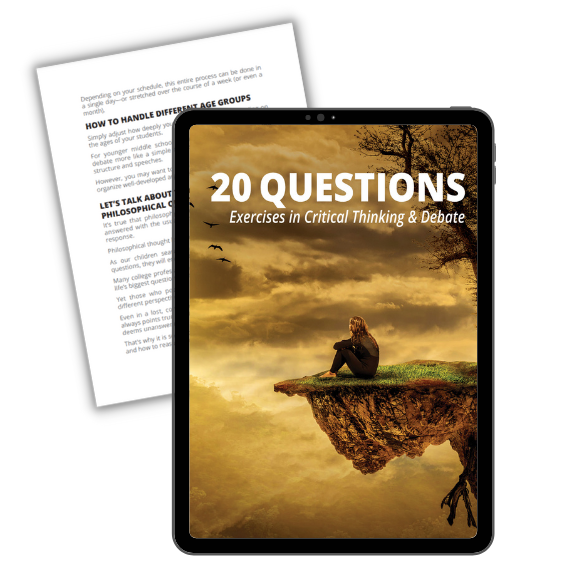
Get a Question-Based Critical Thinking Exercise—Free!
Introduce critical thinking gently & easily with thought-provoking exercises.
Upper Elementary
Students in upper elementary grades can be reluctant to put themselves out there, especially with answers that seem weird.
In some cases, such hesitancy is actually fear of differing from their peers (and a barrier to critical thinking ).
But that’s exactly why it’s important to practice answering ambiguous questions.
We want our children to stand firm for their beliefs—not cave to peer pressure.
Additionally, students may feel uneasy about answering serious questions, uncertain of tackling “big” problems.
However, with careful use of creative questions for kids, it’s possible to engage even the most reluctant children in this age group.
The idea is to simply get them interested in the conversation and questions asked.
If you have an especially reserved student, try starting with the funny critical thinking questions.
Humor is a natural icebreaker that can make critical thinking questions more lighthearted and enjoyable.
Of course, most younger kids just like to be silly, so playing upon that can keep them active and engaged.
With that said, here are some great questions to get you started:
1. Someone gives you a penguin. You can’t sell it or give it away. What do you do with it?
2. What would it be like if people could fly?
3. If animals could talk, what question would you ask?
4. If you were ice cream, what kind would you be and why?
5. Do you want to travel back in time? If yes, how far back would you go? If no, why not?
6. What could you invent that would help your family?
7. If you could stay up all night, what would you do?
8. What does the man on the moon do during the day?
9. What makes something weird or normal?
10. Can you describe the tastes “salty” and “sweet” without using those words?
11. What does it feel like to ride a rollercoaster?
12. What makes a joke funny?
13. What two items would you take if you knew you would be stranded on an island and why?
14. Do you have a favorite way of laughing?
15. What noise makes you cringe and cover your ears? Why?
16. If you could be the parent for the day, what would you do?
17. If you could jump into your favorite movie and change the outcome, which one would you pick and why?
18. If you could be invisible for a day, what would you do?
19. What makes a day “perfect”?
20. If you owned a store, what kind of products would you sell?
21. If your parents were your age, would you be friends with them?
22. Would you still like your favorite food if it tasted the same as always, but now had an awful smell?
23. What would you do if you forgot to put your shoes on before leaving home?
24. Who would you be if you were a cartoon character?
25. How many hot dogs do you think you could eat in one sitting?
26. If you could breathe under water, what would you explore?
27. At what age do you think you stop being a kid?
28. If you had springs in your legs, what would you be able to do?
29. Can you describe the color blue to someone if they’re blind?
Middle School
At this point, students start to acquire more complex skills and are able to form their own conclusions based on the information they’re given.
However, we can’t expect deep philosophical debates with 12 and 13 year olds.
That said, as parent-teachers, we can certainly begin using more challenging questions to help them examine and rationalize their thought processes.
Browse the fun critical thinking questions below for students in this age range.
You might be surprised to see how receptive middle school kids can be to such thought-provoking (yet still fun) questions .
30. What would happen if it really did rain cats and dogs?
31. What does it mean to be lucky?
32. If you woke up in the middle of a dream, where would you be?
33. Is it ever okay to lie? Why or why not?
34. If you were solely responsible for creating laws, what one law would you make?
35. What makes a person a good friend?
36. What do you think is the most important skill you can take into adulthood?
37. If you had to give up lunch or dinner, which would you choose? Why?
38. How much money would you need to be considered rich?
39. If you knew you wouldn’t get caught, would you cheat on a test?
40. If you could live anywhere in the world, where would that be?
41. What is your greatest strength? How is that an asset?
42. If you had an opportunity to visit the International Space Station, would you do it?
43. Is it better to keep the peace or speak your mind?
44. Imagine yourself as your favorite animal. How would you spend your day?
45. Would you be friends with someone who didn’t have the same values as you?
46. How much screen time do you think is too much?
47. Can you describe your favorite color without naming it?
48. If you suddenly became blind, would you see things differently?
49. Would you ever go skydiving?
50. Describe the time you were the happiest in your life. Why did this make you happy?
51. If you had a million dollars, what would you do?
52. If you had to move to a new city, would you change how you present yourself to others?
53. What do you need to do in order to be famous?
54. If you could rewrite the ending of your favorite book or movie, what changes would you make?
55. How would you tackle a huge goal?
56. How would you sell ice to an eskimo in Alaska successfully?
57. What makes you unique?
High School
Critical thinking takes on an entirely different role once students reach high school.
At this age, they have a greater sense of right and wrong (and what makes things so) as well as a better understanding of the world’s challenges.
Guiding teens to delve deeper and contemplate such things is an important part of developing their reasoning and critical thinking skills.

Whether it’s fun questions about hypothetical superpowers or tough critical thinking questions about life, older teens typically have what it takes to think their way to a logical conclusion .
Of course, use your discernment as you choose discussion topics, but here are some questions to help get you started:
58. How can you avoid [common problem] in the future?
59. Do you think it’s okay to take a life in order to save 5, 10, 20 or more people?
60. If you could go back and give your younger self advice, what would it be?
61. Is it better to give or receive a gift?
62. How important is it to be financially secure? Why?
63. If it was up to you, what one rule would you change in your family?
64. What would you do if a group of friends wanted to do something that you thought was a bad idea?
65. How do you know that something is a fact rather than an opinion?
66. What would it take to get you to change your mind?
67. What’s the most important thing in your life?
68. If money were of no concern, what job would you choose and why?
69. How do you know if you’re happy?
70. Do you think euthanasia is moral?
71. What is something you can do today that you weren’t able to do a year ago?
72. Is social media a good thing or not?
73. Is it right to keep animals in a zoo?
74. How does your attitude affect your abilities?
75. What would you do if you found out a friend was doing something dangerous?
76. If you could have any superpower, what would it be? Why?
77. What will life on Earth look like in 50 years?
78. Which is more important, ending world hunger or global warming?
79. Is it a good idea to lower the voting age to 16? Why or why not?
80. If the electrical power went out today, how would you cook if using wood wasn’t an option?
81. If you could magically transport yourself to any other place, where would that be and why?
82. When should teenagers be able to stay out all night?
83. Does the number zero actually exist?
84. What defines a generous person?
85. Does an influential person influence everyone?
Feel free to print out these fun critical thinking questions and incorporate them into your homeschool week!

will your children recognize truth?
About the author.
Jordan Mitchell

- Practice Tests
- Predictive Index
- Firefighter
- Hogan Assessments
- Leadership Assessment
- Ramsay Technician Assessments
- Watson-Glaser
- Raven's Progressive Matrix
- NEO Personality Inventory
- Texas Success Initiative
- TSA Prep Booster™ Course
- TSA Practice Test
- TSA Written Skills Assessment
- TSA CBT X-Ray Object Recognition Test
- TSA Connect the Dots
- SHL Assessment Prep Course
- Practice Test & Answers
- SHL Practice Tests
- SHL Test Answers
- SHL Inductive Reasoning Test
- SHL Numerical Reasoning Test
- SHL Verbal Reasoning Test
- SHL Verify G+ Test
- SHL Mechanical Comprehension Test
- SHL Situational Judgment Test
- SHL OPQ Personality Test
- Predictive Index Master (Cognitive & Behavioral)
- Predictive Index Cognitive Assessment
- Predictive Index Behavioral Assessment
- Predictive Index Practice Test
- Predictive Index Results
- Caliper Course
- Caliper Test Prep With Real Practice Test
- USPS Postal Exam
- Postal Exam 474
- Postal Exam 475
- Postal Exam 476
- Postal Exam 477
- USPS Postal Exam Prep
- Pass the 2024 Postal Exam With Practice Tests
- Virtual Entry Assessment (VEA)
- General Police Prep Course
- Police Situational Judgement Test
- Police Psychological Exam Course
- Massachusetts State Police Exam
- Pennsylvania Police Exam
- Philadelphia Police Exam
- Nassau County Police Exam Course
- Suffolk County Police Exam
- Correctional Officer Exam
- MTA Police Exam
- New York State Police Exam Prep Course
- School Safety Agent Course
- Police Officer NYPD Exam
- Police Fitness Prep Course
- Exam Formats
- EB Jacobs Law Enforcement Aptitude Battery
- CJBAT Study Guide
- DELPOE Police Exam
- Texas LEVEL Test With Expert Guides
- PELLETB Course
- FBI Test Phase 1 (Special Agent Exam): Guide with Practice Test [2024]
- Police Test Preparation Suite
- Pass a Polygraph Test (Lie Detector): Expert Tips & Questions – 2024
- Firefighter Test
- FDNY Firefighter Prep Course
- Firefighter Psych Test
- NFSI Firefighter Prep Course
- FCTC Firefighter Prep Course
- Firefighter Aptitude and Character Test
- FireTeam Prep Course
- Master Course
- Hogan Assessments Master Course
- Personality Courses
- Hogan Personality Inventory (HPI)
- Hogan Development Survey (HDS)
- Hogan Motives, Values & Preferences Inventory (MVPI)
- Busines Reasoning Course
- Hogan Business Reasoning Inventory (HBRI)
- Leadership Assessment Test
- GardaWorld Pre Board Primer
- Bennett Mechanical Comprehension Test II (BMCT-II) Success Prep Course
- Beat the 2024 BMCT With Industry Expert Guides & Realistic Practice Tests
- 911 Dispatcher
- Exam Format
- Criticall Dispatcher
- Criticall Dispatcher Test
- Criteria Cognitive Aptitude Test - CCAT Course
- Universal Cognitive Aptitude Test - UCAT Course
- CCAT Practice Test
- Criteria Pre-employment Testing: Personality, Aptitude & Skill Tests
- Korn Ferry Course
- Ace the 2024 Korn Ferry Assessment With Practice Test & Expert Guides
- Ramsay Electrical Assessment
- Ramsay Maintenance Assessment
- Ramsay Mechanical Assessment
- Ramsay Multicraft Assessment
- Ramsay Electrical Practice Test
- Ramsay Maintenance Practice Test
- Ramsay Mechanical Practice Test
- Ramsay Multicraft Practice Test
- Ramsay Test Prep
- AFOQT Study Guide
- ASTB Study Guide
- SIFT Study Guide
- Watson-Glaser Critical Thinking Course
- Beat the Watson Glaser and Upgrade Your Career
- Take on the Watson Glaser and Secure your Future Career
- Raven's Advanced Progressive Matrices
- Texas Success Initiative Course
- TSI Practice Test 2024: Math, Reading & Writing
- TSI Reading Practice Test: 15 Q&A with Explanations
- Pass our Free TSI Math Practice Test (2024 Update)
- Take our Free TSI Writing Practice Test (2024)
- How it Works
Critical Thinking Test: Sample Questions with Explanations (2024)
Employers value and seek candidates who demonstrate advanced critical thinking skills. They often administer critical thinking tests as part of their hiring process. Critical thinking tests can be very difficult for those who don’t prepare. A great way to start practicing is by taking our critical thinking free practice test.
What Does The Critical Thinking Test Include?
The Critical Thinking Test assesses your capacity to think critically and form logical conclusions when given written information. Critical thinking tests are generally used in job recruitment processes, in the legal sector. These tests measure the analytical critical thinking abilities of a candidate.
Why Is Critical Thinking Useful?
Critical thinking is put into action in various stages of decision-making and problem-solving tasks:
- Identify the problem
- Choose suitable information to find the solution
- Identify the assumptions that are implied and written in the text
- Form hypotheses and choose the most suitable and credible answers
- Form well-founded conclusions and determine the soundness of inferences
What is Watson Glaser Test and what Critical Thinking Skills it Measures?
The most common type of critical thinking test is the Watson-Glaser Critical Thinking Appraisal (W-GCTA). Typically used by legal and financial organizations, as well as management businesses, a Watson Glaser test is created to assess candidates’ critical thinking skills.
The test consists of 10 questions to be answered in 10 minutes approx (although there is no timer on the test itself). Our test is slightly harder than the real thing, to make it sufficiently challenging practice.
You need to get 70% correct to pass the test. Don’t forget to first check out the test techniques section further down this page beforehand.
Questions 25
Pass percentage 70%.
The test is broken down into five central areas:
- Assumptions
- Interpretation
Critical Thinking Course
- 1 BONUS Interview Prep Video Guide Buy this Course: Get full access to all lessons, practice tests and guides.
The Five Critical Thinking Skills Explained
1. recognition of assumption.
You’ll be presented with a statement. The statement is then followed by several proposed assumptions. When answering, you must work out if an assumption was made or if an assumption was not made in the statement. An assumption is a proclamation that an individual takes for granted. This section of the tests measures your ability to withhold from forming assumptions about things that are not necessarily correct.
- 1: Assumption Made
- 2: Assumption Not Made
Although the passage does state that Charlie’s fundraising team is doing its best so that the charity event can meet its goal, nowhere did it state that their team is leading the event.
2. Evaluation of Arguments
You will be presented with an argument. You will then be asked to decide whether the argument is strong or weak. An argument is considered strong if it directly connects to the statement provided, and is believed to be significant.
No, participation awards should not be given in every competition because studies have shown that this would cause the participants to put in less effort because they will get a prize no matter what the outcome is.
- 1: Strong Argument
- 2: Weak Argument
This is a strong argument as it provides evidence as to why participation awards should not be given in every competition
3. Deductions
In deduction questions, you will need to form conclusions based solely on the information provided in the question and not based on your knowledge. You will be given a small passage of information and you will need to evaluate a list of deductions made based on that passage. If the conclusion cannot be formed for the information provided, then the conclusion does not follow. The answer must be entirely founded on the statements made and not on conclusions drawn from your knowledge.
In a surprise party for Donna, Edna arrived after Felix and Gary did. Kelly arrived before Felix and Gary did.
- 1: Conclusion Follows
- 2: Conclusion Does not Follow
For questions like this, jot down the clues to help you out. Use initials as a quick reference.
K | F&G | E
Looking at the simple diagram, “K”, which stands for “Kelly,” arrived before Edna “E” did. The answer is A.
4. Interpretation
In these questions, you are given a passage of information followed by a list of possible conclusions. You will need to interpret the information in the paragraph and determine whether or not each conclusion follows, based solely on the information given.
A number of students were given the following advice:
“The use of powerful words is a technique, which makes you a better writer. Your choice of words is very important in molding the way people interaction with the article. You should use powerful words to spice up your article. Power words should be used liberally to enhance the flavor of what you write! ”
In the fourth sentence, it is stated, “Power words should be used liberally to enhance the flavor of what you write!”
Thus, if you were to write an essay, using powerful words can give more flavor to it.
5. Inferences
An inference is a conclusion made from observed or supposed facts and details. It is information that is not apparent in the information provided but rather is extracted from it. In this section, you will be provided with a passage of information about a specific scene or event. A list of possible inferences will then be given, and you will need to decide if they are ‘true’, ‘false’, ‘possibly true’, ‘possibly false’, or whether it is not possible to say based on the information provided.
With the advancement of technology, the need for more infrastructure has never been higher. According to the plan of the current U.S. Administration, it aims to put a $1 trillion investment on improving infrastructure, a portion of which will include priority projects and technologies that can strengthen its economic competitiveness such as transportation, 5G wireless communication technology, rural broadband technologies, advanced manufacturing technologies, and even artificial intelligence.
It stated that it expects to work with Congress to develop a comprehensive infrastructure package, which is expected to have a budget of $200 billion for certain priorities.
- 2: Probably True
- 3: Not Enough Information
- 4: Probably False
Although it was mentioned in the passage that the U.S. government is to allocate $200 billion on certain priorities, it did not specify if these certain priorities were for ‘transportation, 5G wireless communication technology, rural broadband technologies, advanced manufacturing technologies, and artificial intelligence’ or if the aforementioned priorities will have a different allocation.
What we can be sure of, however, is that at least a portion of the $1 trillion infrastructure budget will be used on the mentioned priorities regardless, meaning that there is a chance that $200 billion will be used on those aforementioned areas.
Improve Your Score with Prepterminal’s Critical Thinking Course
The Critical Thinking test is difficult, but not impossible to overcome with practice. At PrepTerminal our psychometric test experts have developed a critical thinking preparatory test to provide you with the material you need to practice for your critical thinking test. Prepare with us to increase your chance of successfully overcoming this hurdle in the recruitment process.
Prepterminal’s preparatory critical thinking course features a structured study course along with critical thinking practice tests to help you improve your exam score. Our course includes video and text-based information presented in a clear and easy-to-understand manner so you can follow along at your own pace with ease.

Created by: Matt
Psychometric tutor, prepterminal test expert, 414 students, 4.7 , 73 reviews.
Have a language expert improve your writing
Run a free plagiarism check in 10 minutes, generate accurate citations for free.
- Knowledge Base
- Working with sources
- What Is Critical Thinking? | Definition & Examples
What Is Critical Thinking? | Definition & Examples
Published on May 30, 2022 by Eoghan Ryan . Revised on May 31, 2023.
Critical thinking is the ability to effectively analyze information and form a judgment .
To think critically, you must be aware of your own biases and assumptions when encountering information, and apply consistent standards when evaluating sources .
Critical thinking skills help you to:
- Identify credible sources
- Evaluate and respond to arguments
- Assess alternative viewpoints
- Test hypotheses against relevant criteria
Table of contents
Why is critical thinking important, critical thinking examples, how to think critically, other interesting articles, frequently asked questions about critical thinking.
Critical thinking is important for making judgments about sources of information and forming your own arguments. It emphasizes a rational, objective, and self-aware approach that can help you to identify credible sources and strengthen your conclusions.
Critical thinking is important in all disciplines and throughout all stages of the research process . The types of evidence used in the sciences and in the humanities may differ, but critical thinking skills are relevant to both.
In academic writing , critical thinking can help you to determine whether a source:
- Is free from research bias
- Provides evidence to support its research findings
- Considers alternative viewpoints
Outside of academia, critical thinking goes hand in hand with information literacy to help you form opinions rationally and engage independently and critically with popular media.
Prevent plagiarism. Run a free check.
Critical thinking can help you to identify reliable sources of information that you can cite in your research paper . It can also guide your own research methods and inform your own arguments.
Outside of academia, critical thinking can help you to be aware of both your own and others’ biases and assumptions.
Academic examples
However, when you compare the findings of the study with other current research, you determine that the results seem improbable. You analyze the paper again, consulting the sources it cites.
You notice that the research was funded by the pharmaceutical company that created the treatment. Because of this, you view its results skeptically and determine that more independent research is necessary to confirm or refute them. Example: Poor critical thinking in an academic context You’re researching a paper on the impact wireless technology has had on developing countries that previously did not have large-scale communications infrastructure. You read an article that seems to confirm your hypothesis: the impact is mainly positive. Rather than evaluating the research methodology, you accept the findings uncritically.
Nonacademic examples
However, you decide to compare this review article with consumer reviews on a different site. You find that these reviews are not as positive. Some customers have had problems installing the alarm, and some have noted that it activates for no apparent reason.
You revisit the original review article. You notice that the words “sponsored content” appear in small print under the article title. Based on this, you conclude that the review is advertising and is therefore not an unbiased source. Example: Poor critical thinking in a nonacademic context You support a candidate in an upcoming election. You visit an online news site affiliated with their political party and read an article that criticizes their opponent. The article claims that the opponent is inexperienced in politics. You accept this without evidence, because it fits your preconceptions about the opponent.
There is no single way to think critically. How you engage with information will depend on the type of source you’re using and the information you need.
However, you can engage with sources in a systematic and critical way by asking certain questions when you encounter information. Like the CRAAP test , these questions focus on the currency , relevance , authority , accuracy , and purpose of a source of information.
When encountering information, ask:
- Who is the author? Are they an expert in their field?
- What do they say? Is their argument clear? Can you summarize it?
- When did they say this? Is the source current?
- Where is the information published? Is it an academic article? Is it peer-reviewed ?
- Why did the author publish it? What is their motivation?
- How do they make their argument? Is it backed up by evidence? Does it rely on opinion, speculation, or appeals to emotion ? Do they address alternative arguments?
Critical thinking also involves being aware of your own biases, not only those of others. When you make an argument or draw your own conclusions, you can ask similar questions about your own writing:
- Am I only considering evidence that supports my preconceptions?
- Is my argument expressed clearly and backed up with credible sources?
- Would I be convinced by this argument coming from someone else?
If you want to know more about ChatGPT, AI tools , citation , and plagiarism , make sure to check out some of our other articles with explanations and examples.
- ChatGPT vs human editor
- ChatGPT citations
- Is ChatGPT trustworthy?
- Using ChatGPT for your studies
- What is ChatGPT?
- Chicago style
- Paraphrasing
Plagiarism
- Types of plagiarism
- Self-plagiarism
- Avoiding plagiarism
- Academic integrity
- Consequences of plagiarism
- Common knowledge
Don't submit your assignments before you do this
The academic proofreading tool has been trained on 1000s of academic texts. Making it the most accurate and reliable proofreading tool for students. Free citation check included.

Try for free
Critical thinking refers to the ability to evaluate information and to be aware of biases or assumptions, including your own.
Like information literacy , it involves evaluating arguments, identifying and solving problems in an objective and systematic way, and clearly communicating your ideas.
Critical thinking skills include the ability to:
You can assess information and arguments critically by asking certain questions about the source. You can use the CRAAP test , focusing on the currency , relevance , authority , accuracy , and purpose of a source of information.
Ask questions such as:
- Who is the author? Are they an expert?
- How do they make their argument? Is it backed up by evidence?
A credible source should pass the CRAAP test and follow these guidelines:
- The information should be up to date and current.
- The author and publication should be a trusted authority on the subject you are researching.
- The sources the author cited should be easy to find, clear, and unbiased.
- For a web source, the URL and layout should signify that it is trustworthy.
Information literacy refers to a broad range of skills, including the ability to find, evaluate, and use sources of information effectively.
Being information literate means that you:
- Know how to find credible sources
- Use relevant sources to inform your research
- Understand what constitutes plagiarism
- Know how to cite your sources correctly
Confirmation bias is the tendency to search, interpret, and recall information in a way that aligns with our pre-existing values, opinions, or beliefs. It refers to the ability to recollect information best when it amplifies what we already believe. Relatedly, we tend to forget information that contradicts our opinions.
Although selective recall is a component of confirmation bias, it should not be confused with recall bias.
On the other hand, recall bias refers to the differences in the ability between study participants to recall past events when self-reporting is used. This difference in accuracy or completeness of recollection is not related to beliefs or opinions. Rather, recall bias relates to other factors, such as the length of the recall period, age, and the characteristics of the disease under investigation.
Cite this Scribbr article
If you want to cite this source, you can copy and paste the citation or click the “Cite this Scribbr article” button to automatically add the citation to our free Citation Generator.
Ryan, E. (2023, May 31). What Is Critical Thinking? | Definition & Examples. Scribbr. Retrieved June 7, 2024, from https://www.scribbr.com/working-with-sources/critical-thinking/
Is this article helpful?

Eoghan Ryan
Other students also liked, student guide: information literacy | meaning & examples, what are credible sources & how to spot them | examples, applying the craap test & evaluating sources, "i thought ai proofreading was useless but..".
I've been using Scribbr for years now and I know it's a service that won't disappoint. It does a good job spotting mistakes”
- SUGGESTED TOPICS
- The Magazine
- Newsletters
- Managing Yourself
- Managing Teams
- Work-life Balance
- The Big Idea
- Data & Visuals
- Reading Lists
- Case Selections
- HBR Learning
- Topic Feeds
- Account Settings
- Email Preferences
Critical Thinking Is About Asking Better Questions
- John Coleman

Six practices to sharpen your inquiry.
Critical thinking is the ability to analyze and effectively break down an issue in order to make a decision or find a solution. At the heart of critical thinking is the ability to formulate deep, different, and effective questions. For effective questioning, start by holding your hypotheses loosely. Be willing to fundamentally reconsider your initial conclusions — and do so without defensiveness. Second, listen more than you talk through active listening. Third, leave your queries open-ended, and avoid yes-or-no questions. Fourth, consider the counterintuitive to avoid falling into groupthink. Fifth, take the time to stew in a problem, rather than making decisions unnecessarily quickly. Last, ask thoughtful, even difficult, follow-ups.
Are you tackling a new and difficult problem at work? Recently promoted and trying to both understand your new role and bring a fresh perspective? Or are you new to the workforce and seeking ways to meaningfully contribute alongside your more experienced colleagues? If so, critical thinking — the ability to analyze and effectively break down an issue in order to make a decision or find a solution — will be core to your success. And at the heart of critical thinking is the ability to formulate deep, different, and effective questions.
- JC John Coleman is the author of the HBR Guide to Crafting Your Purpose . Subscribe to his free newsletter, On Purpose , follow him on Twitter @johnwcoleman, or contact him at johnwilliamcoleman.com.
Partner Center
What is the Critical Thinking Test?
Critical thinking practice test, take a free practice critical thinking test, practice critical thinking test.
Updated November 16, 2023

The Critical Thinking Test is a comprehensive evaluation designed to assess individuals' cognitive capacities and analytical prowess.
This formal examination, often referred to as the critical thinking assessment, is a benchmark for those aiming to demonstrate their proficiency in discernment and problem-solving.
In addition, this evaluative tool meticulously gauges a range of skills, including logical reasoning, analytical thinking, and the ability to evaluate and synthesize information.
This article will embark on an exploration of the Critical Thinking Test, elucidating its intricacies and elucidating its paramount importance. We will dissect the essential skills it measures and clarify its significance in gauging one's intellectual aptitude.
We will examine examples of critical thinking questions, illuminating the challenging scenarios that candidates encounter prompting them to navigate the complexities of thought with finesse.
Before going ahead to take the critical thinking test, let's delve into the realm of preparation. This segment serves as a crucible for honing the skills assessed in the actual examination, offering candidates a chance to refine their analytical blades before facing the real challenge. Here are some skills that will help you with the critical thinking assessment: Logical Reasoning: The practice test meticulously evaluates your ability to deduce conclusions from given information, assess the validity of arguments, and recognize patterns in logic. Analytical Thinking: Prepare to dissect complex scenarios, identify key components, and synthesize information to draw insightful conclusions—a fundamental aspect of the critical thinking assessment. Problem-Solving Proficiency: Navigate through intricate problems that mirror real-world challenges, honing your capacity to approach issues systematically and derive effective solutions. What to Expect: The Critical Thinking Practice Test is crafted to mirror the format and complexity of the actual examination. Expect a series of scenarios, each accompanied by a set of questions that demand thoughtful analysis and logical deduction. These scenarios span diverse fields, from business and science to everyday scenarios, ensuring a comprehensive evaluation of your critical thinking skills. Examples of Critical Thinking Questions Scenario: In a business context, analyze the potential impacts of a proposed strategy on both short-term profitability and long-term sustainability. Question: What factors would you consider in determining the viability of the proposed strategy, and how might it affect the company's overall success? Scenario: Evaluate conflicting scientific studies on a pressing environmental issue.
Question: Identify the key methodologies and data points in each study. How would you reconcile the disparities to form an informed, unbiased conclusion?
Why Practice Matters
Engaging in the Critical Thinking Practice Test familiarizes you with the test format and cultivates a mindset geared towards agile and astute reasoning. This preparatory phase allows you to refine your cognitive toolkit, ensuring you approach the assessment with confidence and finesse.
We'll navigate through specific examples as we proceed, offering insights into effective strategies for tackling critical thinking questions. Prepare to embark on a journey of intellectual sharpening, where each practice question refines your analytical prowess for the challenges ahead.
This is a practice critical thinking test.
The test consists of three questions .
After you have answered all the questions, you will be shown the correct answers and given full explanations.
Make sure you read and fully understand each question before answering. Work quickly, but don't rush. You cannot afford to make mistakes on a real test .
If you get a question wrong, make sure you find out why and learn how to answer this type of question in the future.
Six friends are seated in a restaurant across a rectangular table. There are three chairs on each side. Adam and Dorky do not have anyone sitting to their right and Clyde and Benjamin do not have anyone sitting to their left. Adam and Benjamin are not sitting on the same side of the table.
If Ethan is not sitting next to Dorky, who is seated immediately to the left of Felix?
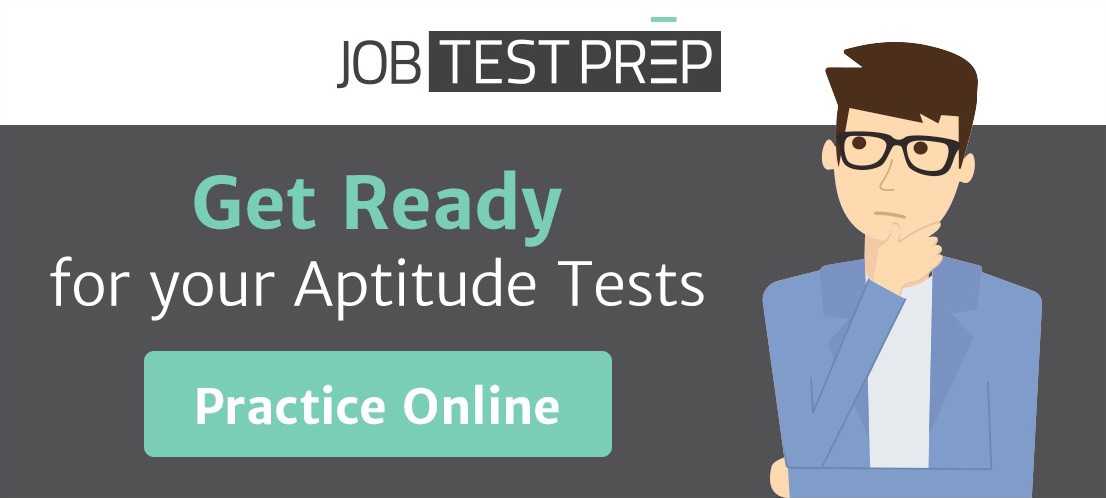
You might also be interested in these other PRT articles:
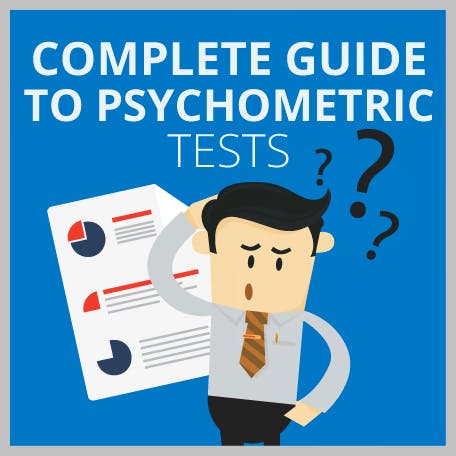

- LEARNING SKILLS
- Study Skills
- Critical Thinking
Search SkillsYouNeed:
Learning Skills:
- A - Z List of Learning Skills
- What is Learning?
- Learning Approaches
- Learning Styles
- 8 Types of Learning Styles
- Understanding Your Preferences to Aid Learning
- Lifelong Learning
- Decisions to Make Before Applying to University
- Top Tips for Surviving Student Life
- Living Online: Education and Learning
- 8 Ways to Embrace Technology-Based Learning Approaches
Critical Thinking Skills
- Critical Thinking and Fake News
- Understanding and Addressing Conspiracy Theories
- Critical Analysis
- Top Tips for Study
- Staying Motivated When Studying
- Student Budgeting and Economic Skills
- Getting Organised for Study
- Finding Time to Study
- Sources of Information
- Assessing Internet Information
- Using Apps to Support Study
- What is Theory?
- Styles of Writing
- Effective Reading
- Critical Reading
- Note-Taking from Reading
- Note-Taking for Verbal Exchanges
- Planning an Essay
- How to Write an Essay
- The Do’s and Don’ts of Essay Writing
- How to Write a Report
- Academic Referencing
- Assignment Finishing Touches
- Reflecting on Marked Work
- 6 Skills You Learn in School That You Use in Real Life
- Top 10 Tips on How to Study While Working
- Exam Skills
- Writing a Dissertation or Thesis
- Research Methods
- Teaching, Coaching, Mentoring and Counselling
- Employability Skills for Graduates
Subscribe to our FREE newsletter and start improving your life in just 5 minutes a day.
You'll get our 5 free 'One Minute Life Skills' and our weekly newsletter.
We'll never share your email address and you can unsubscribe at any time.
What is Critical Thinking?
Critical thinking is the ability to think clearly and rationally, understanding the logical connection between ideas. Critical thinking has been the subject of much debate and thought since the time of early Greek philosophers such as Plato and Socrates and has continued to be a subject of discussion into the modern age, for example the ability to recognise fake news .
Critical thinking might be described as the ability to engage in reflective and independent thinking.
In essence, critical thinking requires you to use your ability to reason. It is about being an active learner rather than a passive recipient of information.
Critical thinkers rigorously question ideas and assumptions rather than accepting them at face value. They will always seek to determine whether the ideas, arguments and findings represent the entire picture and are open to finding that they do not.
Critical thinkers will identify, analyse and solve problems systematically rather than by intuition or instinct.
Someone with critical thinking skills can:
Understand the links between ideas.
Determine the importance and relevance of arguments and ideas.
Recognise, build and appraise arguments.
Identify inconsistencies and errors in reasoning.
Approach problems in a consistent and systematic way.
Reflect on the justification of their own assumptions, beliefs and values.
Critical thinking is thinking about things in certain ways so as to arrive at the best possible solution in the circumstances that the thinker is aware of. In more everyday language, it is a way of thinking about whatever is presently occupying your mind so that you come to the best possible conclusion.
Critical Thinking is:
A way of thinking about particular things at a particular time; it is not the accumulation of facts and knowledge or something that you can learn once and then use in that form forever, such as the nine times table you learn and use in school.
The Skills We Need for Critical Thinking
The skills that we need in order to be able to think critically are varied and include observation, analysis, interpretation, reflection, evaluation, inference, explanation, problem solving, and decision making.
Specifically we need to be able to:
Think about a topic or issue in an objective and critical way.
Identify the different arguments there are in relation to a particular issue.
Evaluate a point of view to determine how strong or valid it is.
Recognise any weaknesses or negative points that there are in the evidence or argument.
Notice what implications there might be behind a statement or argument.
Provide structured reasoning and support for an argument that we wish to make.
The Critical Thinking Process
You should be aware that none of us think critically all the time.
Sometimes we think in almost any way but critically, for example when our self-control is affected by anger, grief or joy or when we are feeling just plain ‘bloody minded’.
On the other hand, the good news is that, since our critical thinking ability varies according to our current mindset, most of the time we can learn to improve our critical thinking ability by developing certain routine activities and applying them to all problems that present themselves.
Once you understand the theory of critical thinking, improving your critical thinking skills takes persistence and practice.
Try this simple exercise to help you to start thinking critically.
Think of something that someone has recently told you. Then ask yourself the following questions:
Who said it?
Someone you know? Someone in a position of authority or power? Does it matter who told you this?
What did they say?
Did they give facts or opinions? Did they provide all the facts? Did they leave anything out?
Where did they say it?
Was it in public or in private? Did other people have a chance to respond an provide an alternative account?
When did they say it?
Was it before, during or after an important event? Is timing important?
Why did they say it?
Did they explain the reasoning behind their opinion? Were they trying to make someone look good or bad?
How did they say it?
Were they happy or sad, angry or indifferent? Did they write it or say it? Could you understand what was said?
What are you Aiming to Achieve?
One of the most important aspects of critical thinking is to decide what you are aiming to achieve and then make a decision based on a range of possibilities.
Once you have clarified that aim for yourself you should use it as the starting point in all future situations requiring thought and, possibly, further decision making. Where needed, make your workmates, family or those around you aware of your intention to pursue this goal. You must then discipline yourself to keep on track until changing circumstances mean you have to revisit the start of the decision making process.
However, there are things that get in the way of simple decision making. We all carry with us a range of likes and dislikes, learnt behaviours and personal preferences developed throughout our lives; they are the hallmarks of being human. A major contribution to ensuring we think critically is to be aware of these personal characteristics, preferences and biases and make allowance for them when considering possible next steps, whether they are at the pre-action consideration stage or as part of a rethink caused by unexpected or unforeseen impediments to continued progress.
The more clearly we are aware of ourselves, our strengths and weaknesses, the more likely our critical thinking will be productive.
The Benefit of Foresight
Perhaps the most important element of thinking critically is foresight.
Almost all decisions we make and implement don’t prove disastrous if we find reasons to abandon them. However, our decision making will be infinitely better and more likely to lead to success if, when we reach a tentative conclusion, we pause and consider the impact on the people and activities around us.
The elements needing consideration are generally numerous and varied. In many cases, consideration of one element from a different perspective will reveal potential dangers in pursuing our decision.
For instance, moving a business activity to a new location may improve potential output considerably but it may also lead to the loss of skilled workers if the distance moved is too great. Which of these is the more important consideration? Is there some way of lessening the conflict?
These are the sort of problems that may arise from incomplete critical thinking, a demonstration perhaps of the critical importance of good critical thinking.
Further Reading from Skills You Need

The Skills You Need Guide for Students

Develop the skills you need to make the most of your time as a student.
Our eBooks are ideal for students at all stages of education, school, college and university. They are full of easy-to-follow practical information that will help you to learn more effectively and get better grades.
In Summary:
Critical thinking is aimed at achieving the best possible outcomes in any situation. In order to achieve this it must involve gathering and evaluating information from as many different sources possible.
Critical thinking requires a clear, often uncomfortable, assessment of your personal strengths, weaknesses and preferences and their possible impact on decisions you may make.
Critical thinking requires the development and use of foresight as far as this is possible. As Doris Day sang, “the future’s not ours to see”.
Implementing the decisions made arising from critical thinking must take into account an assessment of possible outcomes and ways of avoiding potentially negative outcomes, or at least lessening their impact.
- Critical thinking involves reviewing the results of the application of decisions made and implementing change where possible.
It might be thought that we are overextending our demands on critical thinking in expecting that it can help to construct focused meaning rather than examining the information given and the knowledge we have acquired to see if we can, if necessary, construct a meaning that will be acceptable and useful.
After all, almost no information we have available to us, either externally or internally, carries any guarantee of its life or appropriateness. Neat step-by-step instructions may provide some sort of trellis on which our basic understanding of critical thinking can blossom but it doesn’t and cannot provide any assurance of certainty, utility or longevity.
Continue to: Critical Thinking and Fake News Critical Reading
See also: Analytical Skills Understanding and Addressing Conspiracy Theories Introduction to Neuro-Linguistic Programming (NLP)

Work Life is Atlassian’s flagship publication dedicated to unleashing the potential of every team through real-life advice, inspiring stories, and thoughtful perspectives from leaders around the world.

Contributing Writer
Work Futurist

Senior Quantitative Researcher, People Insights
Principal Writer

How to build critical thinking skills for better decision-making
It’s simple in theory, but tougher in practice – here are five tips to get you started.
Get stories like this in your inbox
Have you heard the riddle about two coins that equal thirty cents, but one of them is not a nickel? What about the one where a surgeon says they can’t operate on their own son?
Those brain teasers tap into your critical thinking skills. But your ability to think critically isn’t just helpful for solving those random puzzles – it plays a big role in your career.
An impressive 81% of employers say critical thinking carries a lot of weight when they’re evaluating job candidates. It ranks as the top competency companies consider when hiring recent graduates (even ahead of communication ). Plus, once you’re hired, several studies show that critical thinking skills are highly correlated with better job performance.
So what exactly are critical thinking skills? And even more importantly, how do you build and improve them?
What is critical thinking?
Critical thinking is the ability to evaluate facts and information, remain objective, and make a sound decision about how to move forward.
Does that sound like how you approach every decision or problem? Not so fast. Critical thinking seems simple in theory but is much tougher in practice, which helps explain why 65% of employers say their organization has a need for more critical thinking.
In reality, critical thinking doesn’t come naturally to a lot of us. In order to do it well, you need to:
- Remain open-minded and inquisitive, rather than relying on assumptions or jumping to conclusions
- Ask questions and dig deep, rather than accepting information at face value
- Keep your own biases and perceptions in check to stay as objective as possible
- Rely on your emotional intelligence to fill in the blanks and gain a more well-rounded understanding of a situation
So, critical thinking isn’t just being intelligent or analytical. In many ways, it requires you to step outside of yourself, let go of your own preconceived notions, and approach a problem or situation with curiosity and fairness.
It’s a challenge, but it’s well worth it. Critical thinking skills will help you connect ideas, make reasonable decisions, and solve complex problems.
7 critical thinking skills to help you dig deeper
Critical thinking is often labeled as a skill itself (you’ll see it bulleted as a desired trait in a variety of job descriptions). But it’s better to think of critical thinking less as a distinct skill and more as a collection or category of skills.
To think critically, you’ll need to tap into a bunch of your other soft skills. Here are seven of the most important.
Open-mindedness
It’s important to kick off the critical thinking process with the idea that anything is possible. The more you’re able to set aside your own suspicions, beliefs, and agenda, the better prepared you are to approach the situation with the level of inquisitiveness you need.
That means not closing yourself off to any possibilities and allowing yourself the space to pull on every thread – yes, even the ones that seem totally implausible.
As Christopher Dwyer, Ph.D. writes in a piece for Psychology Today , “Even if an idea appears foolish, sometimes its consideration can lead to an intelligent, critically considered conclusion.” He goes on to compare the critical thinking process to brainstorming . Sometimes the “bad” ideas are what lay the foundation for the good ones.
Open-mindedness is challenging because it requires more effort and mental bandwidth than sticking with your own perceptions. Approaching problems or situations with true impartiality often means:
- Practicing self-regulation : Giving yourself a pause between when you feel something and when you actually react or take action.
- Challenging your own biases: Acknowledging your biases and seeking feedback are two powerful ways to get a broader understanding.
Critical thinking example
In a team meeting, your boss mentioned that your company newsletter signups have been decreasing and she wants to figure out why.
At first, you feel offended and defensive – it feels like she’s blaming you for the dip in subscribers. You recognize and rationalize that emotion before thinking about potential causes. You have a hunch about what’s happening, but you will explore all possibilities and contributions from your team members.
Observation
Observation is, of course, your ability to notice and process the details all around you (even the subtle or seemingly inconsequential ones). Critical thinking demands that you’re flexible and willing to go beyond surface-level information, and solid observation skills help you do that.
Your observations help you pick up on clues from a variety of sources and experiences, all of which help you draw a final conclusion. After all, sometimes it’s the most minuscule realization that leads you to the strongest conclusion.
Over the next week or so, you keep a close eye on your company’s website and newsletter analytics to see if numbers are in fact declining or if your boss’s concerns were just a fluke.
Critical thinking hinges on objectivity. And, to be objective, you need to base your judgments on the facts – which you collect through research. You’ll lean on your research skills to gather as much information as possible that’s relevant to your problem or situation.
Keep in mind that this isn’t just about the quantity of information – quality matters too. You want to find data and details from a variety of trusted sources to drill past the surface and build a deeper understanding of what’s happening.
You dig into your email and website analytics to identify trends in bounce rates, time on page, conversions, and more. You also review recent newsletters and email promotions to understand what customers have received, look through current customer feedback, and connect with your customer support team to learn what they’re hearing in their conversations with customers.
The critical thinking process is sort of like a treasure hunt – you’ll find some nuggets that are fundamental for your final conclusion and some that might be interesting but aren’t pertinent to the problem at hand.
That’s why you need analytical skills. They’re what help you separate the wheat from the chaff, prioritize information, identify trends or themes, and draw conclusions based on the most relevant and influential facts.
It’s easy to confuse analytical thinking with critical thinking itself, and it’s true there is a lot of overlap between the two. But analytical thinking is just a piece of critical thinking. It focuses strictly on the facts and data, while critical thinking incorporates other factors like emotions, opinions, and experiences.
As you analyze your research, you notice that one specific webpage has contributed to a significant decline in newsletter signups. While all of the other sources have stayed fairly steady with regard to conversions, that one has sharply decreased.
You decide to move on from your other hypotheses about newsletter quality and dig deeper into the analytics.
One of the traps of critical thinking is that it’s easy to feel like you’re never done. There’s always more information you could collect and more rabbit holes you could fall down.
But at some point, you need to accept that you’ve done your due diligence and make a decision about how to move forward. That’s where inference comes in. It’s your ability to look at the evidence and facts available to you and draw an informed conclusion based on those.
When you’re so focused on staying objective and pursuing all possibilities, inference can feel like the antithesis of critical thinking. But ultimately, it’s your inference skills that allow you to move out of the thinking process and onto the action steps.
You dig deeper into the analytics for the page that hasn’t been converting and notice that the sharp drop-off happened around the same time you switched email providers.
After looking more into the backend, you realize that the signup form on that page isn’t correctly connected to your newsletter platform. It seems like anybody who has signed up on that page hasn’t been fed to your email list.
Communication

3 ways to improve your communication skills at work
If and when you identify a solution or answer, you can’t keep it close to the vest. You’ll need to use your communication skills to share your findings with the relevant stakeholders – like your boss, team members, or anybody who needs to be involved in the next steps.
Your analysis skills will come in handy here too, as they’ll help you determine what information other people need to know so you can avoid bogging them down with unnecessary details.
In your next team meeting, you pull up the analytics and show your team the sharp drop-off as well as the missing connection between that page and your email platform. You ask the web team to reinstall and double-check that connection and you also ask a member of the marketing team to draft an apology email to the subscribers who were missed.
Problem-solving
Critical thinking and problem-solving are two more terms that are frequently confused. After all, when you think critically, you’re often doing so with the objective of solving a problem.
The best way to understand how problem-solving and critical thinking differ is to think of problem-solving as much more narrow. You’re focused on finding a solution.
In contrast, you can use critical thinking for a variety of use cases beyond solving a problem – like answering questions or identifying opportunities for improvement. Even so, within the critical thinking process, you’ll flex your problem-solving skills when it comes time to take action.
Once the fix is implemented, you monitor the analytics to see if subscribers continue to increase. If not (or if they increase at a slower rate than you anticipated), you’ll roll out some other tests like changing the CTA language or the placement of the subscribe form on the page.
5 ways to improve your critical thinking skills

Beyond the buzzwords: Why interpersonal skills matter at work
Think critically about critical thinking and you’ll quickly realize that it’s not as instinctive as you’d like it to be. Fortunately, your critical thinking skills are learned competencies and not inherent gifts – and that means you can improve them. Here’s how:
- Practice active listening: Active listening helps you process and understand what other people share. That’s crucial as you aim to be open-minded and inquisitive.
- Ask open-ended questions: If your critical thinking process involves collecting feedback and opinions from others, ask open-ended questions (meaning, questions that can’t be answered with “yes” or “no”). Doing so will give you more valuable information and also prevent your own biases from influencing people’s input.
- Scrutinize your sources: Figuring out what to trust and prioritize is crucial for critical thinking. Boosting your media literacy and asking more questions will help you be more discerning about what to factor in. It’s hard to strike a balance between skepticism and open-mindedness, but approaching information with questions (rather than unquestioning trust) will help you draw better conclusions.
- Play a game: Remember those riddles we mentioned at the beginning? As trivial as they might seem, games and exercises like those can help you boost your critical thinking skills. There are plenty of critical thinking exercises you can do individually or as a team .
- Give yourself time: Research shows that rushed decisions are often regrettable ones. That’s likely because critical thinking takes time – you can’t do it under the wire. So, for big decisions or hairy problems, give yourself enough time and breathing room to work through the process. It’s hard enough to think critically without a countdown ticking in your brain.
Critical thinking really is critical
The ability to think critically is important, but it doesn’t come naturally to most of us. It’s just easier to stick with biases, assumptions, and surface-level information.
But that route often leads you to rash judgments, shaky conclusions, and disappointing decisions. So here’s a conclusion we can draw without any more noodling: Even if it is more demanding on your mental resources, critical thinking is well worth the effort.
Advice, stories, and expertise about work life today.
Get 25% off all test packages.
Get 25% off all test packages!
Click below to get 25% off all test packages.
Critical Thinking Tests
- 228 questions
Critical thinking tests, sometimes known as critical reasoning tests, are often used by employers. They evaluate how a candidate makes logical deductions after scrutinising the evidence provided, while avoiding fallacies or non-factual opinions. Critical thinking tests can form part of an assessment day, or be used as a screening test before an interview.
What is a critical thinking test?
A critical thinking test assesses your ability to use a range of logical skills to evaluate given information and make a judgement. The test is presented in such a way that candidates are expected to quickly scrutinise the evidence presented and decide on the strength of the arguments.
Critical thinking tests show potential employers that you do not just accept data and can avoid subconscious bias and opinions – instead, you can find logical connections between ideas and find alternative interpretations.
This test is usually timed, so quick, clear, logical thinking will help candidates get the best marks. Critical thinking tests are designed to be challenging, and often used as part of the application process for upper-management-level roles.
What does critical thinking mean?
Critical thinking is the intellectual skill set that ensures you can process and consider information, challenge and analyse data, and then reach a conclusion that can be defended and justified.
In the most simple terms, critical reasoning skills will make sure that you are not simply accepting information at face value with little or no supporting evidence.
It also means that you are less likely to be swayed by ‘false news’ or opinions that cannot be backed with facts – which is important in high-level jobs that require logical thinking.
For more information about logical thinking, please see our article all about logical reasoning .
Which professions use critical thinking tests, and why?
Typically, critical thinking tests are taken as part of the application process for jobs that require advanced skills in judgement, analysis and decision making. The higher the position, the more likely that you will need to demonstrate reliable critical reasoning and good logic.
The legal sector is the main industry that uses critical thinking assessments – making decisions based on facts, without opinion and intuition, is vital in legal matters.
A candidate for a legal role needs to demonstrate their intellectual skills in problem-solving without pre-existing knowledge or subconscious bias – and the critical thinking test is a simple and effective way to screen candidates.
Another industry that uses critical thinking tests as part of the recruitment process is banking. In a similar way to the legal sector, those that work in banking are required to make decisions without allowing emotion, intuition or opinion to cloud coherent analysis and conclusions.
Critical thinking tests also sometimes comprise part of the recruitment assessment for graduate and management positions across numerous industries.
The format of the test: which skills are tested?
The test itself, no matter the publisher, is multiple choice.
As a rule, the questions present a paragraph of information for a scenario that may include numerical data. There will then be a statement and a number of possible answers.
The critical thinking test is timed, so decisions need to be made quickly and accurately; in most tests there is a little less than a minute for each question. Having experience of the test structure and what each question is looking for will make the experience smoother for you.
There are typically five separate sections in a critical thinking test, and each section may have multiple questions.
Inference questions assess your ability to judge whether a statement is true, false, or impossible to determine based on the given data and scenario. You usually have five possible answers: absolutely true, absolutely false, possibly true, possibly false, or not possible to determine.
Assumptions
In this section, you are being assessed on your ability to avoid taking things for granted. Each question gives a scenario including data, and you need to evaluate whether there are any assumptions present.
Here you are given a scenario and a number of deductions that may be applicable. You need to assess the given deductions to see which is the logical conclusion – does it follow?
Interpretation
In the interpretation stage, you need to read and analyse a paragraph of information, then interpret a set of possible conclusions, to see which one is correct. You are looking for the conclusion that follows beyond reasonable doubt.
Evaluation of Arguments
In this section, you are given a scenario and a set of arguments that can be for or against. You need to determine which are strong arguments and which are weak, in terms of the information that you have. This decision is made based on the way they address the scenario and how relevant they are to the content.
How best to prepare for a critical thinking test
The best way to prepare for any type of aptitude test is to practice, and critical thinking tests are no different.
Taking practice tests, as mentioned above, will give you confidence as it makes you better understand the structure, layout and timing of the real tests, so you can concentrate on the actual scenarios and questions.
Practice tests should be timed. This will help you get used to working through the scenarios and assessing the conclusions under time constraints – which is a good way to make sure that you perform quickly as well as accurately.
In some thinking skills assessments , a timer will be built in, but you might need to time yourself.
Consistent practice will also enable you to pinpoint any areas of the critical thinking test that require improvement. Our tests offer explanations for each answer, similar to the examples provided above.
Publishers of critical thinking tests
The watson glaser critical thinking test.
The Watson-Glaser Critical Thinking Appraisal (W-GCTA) is the most popular and widely used critical thinking test. This test has been in development for 85 years and is published by TalentLens .
The W-GCTA is seen as a successful tool for assessing cognitive abilities, allowing recruiting managers to predict job success, find good managers and identify future leaders. It is available in multiple languages including English, French and Spanish.
The test itself can be used as part of an assessment day or as a screening assessment before an interview. It consists of 40 questions on the 5 sections mentioned above, and is timed at 30 minutes. Click here for more information on Watson Glaser tests .
SHL critical reasoning test
SHL is a major aptitude test publisher, which offers critical thinking as part of its testing battery for pre-employment checks.
SHL tests cover all kinds of behavioural and aptitude tests, from logic to inference, verbal to numerical – and with a number of test batteries available online, they are one of the most popular choices for recruiters.
Cornell critical thinking test
The Cornell critical thinking test was made to test students and first developed in 1985. It is an American system that helps teachers, parents and administrators to confidently predict future performance for college admission, gifted and advanced placement programs, and even career success.
Prepare yourself for leading employers

5 Example critical thinking practice questions with answers
In this section, you need to deduce whether the inferred statement is true, false or impossible to deduce.
The UK Government has published data that shows 82% of people under the age of 30 are not homeowners. A charity that helps homeless people has published data that shows 48% of people that are considered homeless are under 30.
The lack of affordable housing on the sales market is the reason so many under-30s are homeless.
- Definitely True
- Probably True
- Impossible to Deduce
- Probably False
- Definitely False
The information given does not infer the conclusion given, so it is impossible to deduce if the inference is correct – there is just not enough information to judge the inference as correct.
The removal of the five-substitution rule in British football will benefit clubs with a smaller roster.
Clubs with more money would prefer the five-substitute rule to continue.
- Assumption Made
Assumption Not Made
This is an example of a fallacy that could cause confusion for a candidate – it encourages you to bring in any pre-existing knowledge of football clubs.
It would be easy to assume the assumption has been made when you consider that the more money a club has, the more players they should have on the roster. However, the statement does not make the assumption that the clubs with more money would prefer to continue with the five-substitute rule.
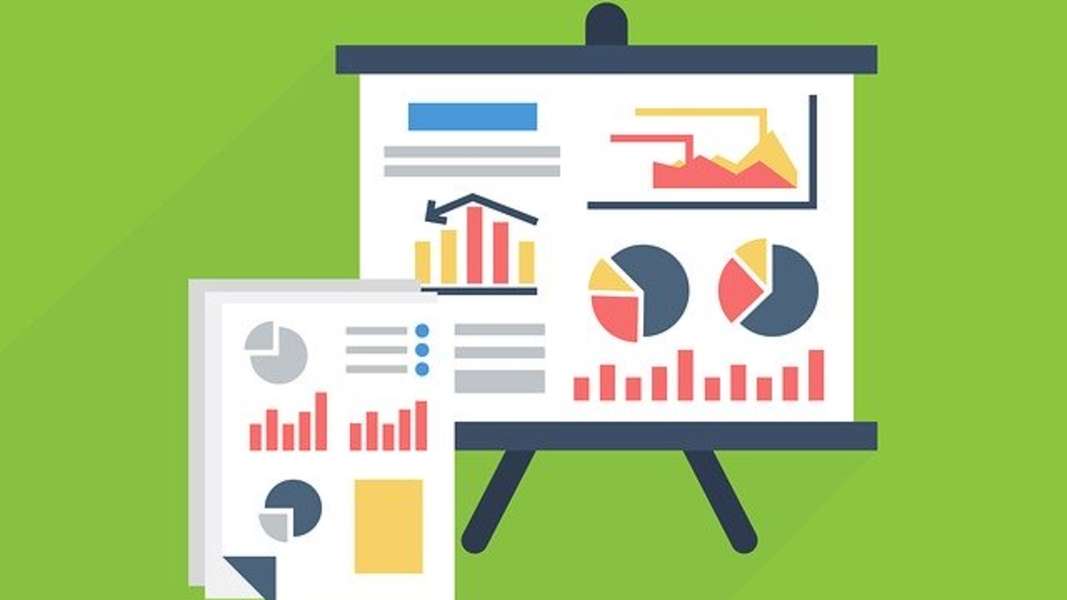
All boys love football. Football is a sport, therefore:
- All boys love all sports
- Girls do not love football
- Boys are more likely to choose to play football than any other sport
In this section we are looking for the conclusion that follows the logic of the statement. In this example, we cannot deduce that girls do not love football, because there is not enough information to support that.
In the same way the conclusion that all boys love all sports does not follow – we are not given enough information to make that assumption. So, the conclusion that follows is 3: boys are more likely to choose football than any other sport because all boys like football.
The British Museum has a range of artefacts on display, including the largest privately owned collection of WWII weaponry.
There is a larger privately owned collection of WWII weaponry in the USA.
- Conclusion Follows
Conclusion Does Not Follow
The fact that the collection is in the British Museum does not make a difference to the fact it is the largest private collection – so there cannot be a larger collection elsewhere.
The Department for Education should lower standards in examinations to make it fairer for less able students.
- Yes – top grades are too hard for lower-income students
- No – less fortunate students are not capable of higher standards
- Yes – making the standards lower will benefit all students
- No – private school students will suffer if grade standards are lower
- The strongest argument is the right answer, not the one that you might personally believe.
In this case, we need to assess which argument is most relevant to the statement. Both 1 and 4 refer to students in particular situations, which isn’t relevant to the statement. The same can be said about 2, so the strongest argument is 3, since it is relevant and addresses the statement given.
Sample Critical Thinking Tests question Test your knowledge!
What implication can be drawn from the information in the passage?
A company’s internal audit revealed that departments with access to advanced analytics tools reported higher levels of strategic decision-making. These departments also showed a higher rate of reaching their quarterly objectives.
- Strategic decision-making has no link to the achievement of quarterly objectives.
- Access to advanced analytics does not influence a department's ability to make strategic decisions.
- Advanced analytics tools are the sole reason for departments reaching their quarterly objectives.
- Departments without access to advanced analytics tools are unable to make strategic decisions.
- Advanced analytics tools may facilitate better strategic decision-making, which can lead to the achievement of objectives.
After reading the passage below, what conclusion is best supported by the information provided?
- Job satisfaction increases when employees start their day earlier.
- Starting early may lead to more efficient task completion and less job-related stress.
- Workers who start their day later are more efficient at completing tasks.
- There is a direct correlation between job satisfaction and starting work early.
- The study concludes that job-related stress is unaffected by the start time of the workday.
Based on the passage below, which of the following assumptions is implicit?
- Inter-departmental cooperation is the sole factor influencing project completion rates.
- The increase in project completion rates is due entirely to the specialized team-building module.
- Team-building exercises have no effect on inter-departmental cooperation.
- The specialized team-building module may contribute to improvements in inter-departmental cooperation.
- Departments that have not undergone the training will experience a decrease in project completion rates.
What is the flaw in the argument presented in the passage below?
- The assumption that a casual dress code is suitable for all company types.
- High-tech companies have a casual dress code to increase employee productivity specifically.
- The argument correctly suggests that a casual dress code will increase employee morale in every company.
- Morale and productivity cannot be affected by a company's dress code.
- A casual dress code is more important than other factors in determining a company's success.
Which statement is an inference that can be drawn from the passage below?
- Telecommuting employees are less productive than on-site workers.
- The reduction in operational costs is directly caused by the increase in telecommuting employees.
- Telecommuting may have contributed to the decrease in operational costs.
- Operational costs are unaffected by employee work locations.
- The number of telecommuting employees has no impact on operational costs.
Start your success journey
Access one of our Watson Glaser tests for FREE.
The tests were well suited to the job that I’ve applied for. They are easy to do and loads of them.
Sophie used Practice Aptitude Tests to help pass her aptitude tests for Deloitte.

Hire better talent
At Neuroworx we help companies build perfect teams

Critical Thinking Tests Tips
The most important factor in your success will be practice. If you have taken some practice tests, not only will you start to recognise the way questions are worded and become familiar with what each question is looking for, you will also be able to find out whether there are any parts that you need extra practice with.
It is important to find out which test you will be taking, as some generic critical thinking practice tests might not help if you are taking specific publisher tests (see the section below).
2 Fact vs fallacy
Practice questions can also help you recognise the difference between fact and fallacy in the test. A fallacy is simply an error or something misleading in the scenario paragraph that encourages you to choose an invalid argument. This might be a presumption or a misconception, but if it isn’t spotted it can make finding the right answer impossible.
3 Ignore what you already know
There is no need for pre-existing knowledge to be brought into the test, so no research is needed. In fact, it is important that you ignore any subconscious bias when you are considering the questions – you need logic and facts to get the correct answer, not intuition or instinct.
4 Read everything carefully
Read all the given information thoroughly. This might sound straightforward, but knowing that the test is timed can encourage candidates to skip content and risk misunderstanding the content or miss crucial details.
During the test itself, you will receive instructions that will help you to understand what is being asked of you on each section. There is likely to be an example question and answer, so ensure you take the time to read them fully.
5 Stay aware of the time you've taken
This test is usually timed, so don’t spend too long on a question. If you feel it is going to take too much time, leave it and come back to it at the end (if you have time). Critical thinking tests are complex by design, so they do have quite generous time limits.
For further advice, check out our full set of tips for critical thinking tests .
Prepare for your Watson Glaser Test
Immediate access. Cancel anytime.
- 30 Numerical reasoning tests
- 30 Verbal reasoning tests
- 30 Diagrammatic reasoning tests
- 30 Situational judgement tests
- 34 Publisher packages e.g. Watson Glaser
- 252 Employer packages e.g. HSBC
- 99 Extra packages e.g Mechanical
- Dashboard performance tracking
- Full solutions and explanations
- Tips, tricks, guides and resources
- Access to free tests
- Basic performance tracking
- Solutions & explanations
- Tips and resources
Critical Thinking Tests FAQs
What are the basics of critical thinking.
In essence, critical thinking is the intellectual process of considering information on its merits, and reaching an analysis or conclusion from that information that can be defended and rationalised with evidence.
How do you know if you have good critical thinking skills?
You are likely to be someone with good critical thinking skills if you can build winning arguments; pick holes in someone’s theory if it’s inconsistent with known facts; reflect on the biases inherent in your own experiences and assumptions; and look at problems using a systematic methodology.
Reviews of our Watson Glaser tests
What our customers say about our Watson Glaser tests
Jozef Bailey
United Kingdom
April 05, 2022
Doesn't cover all aspects of Watson-Glaser tests but useful
The WGCTA uses more categories to assess critical thinking, but this was useful for the inference section.
April 01, 2022
Just practicing for an interview
Good information and liked that it had a countdown clock, to give you that real feel in the test situation.
Jerico Kadhir
March 31, 2022
Aptitude test
It was OK, I didn't understand personally whether or not the "cannot say" option was acceptable or not in a lot of the questions, as it may have been a trick option.
Salvarina Viknesuari
March 15, 2022
I like the test because the platform is simple and engaging while the test itself is different than most of the Watson Glaser tests I've taken.
Alexis Sheridan
March 02, 2022
Some of the ratios were harder than I thought!
I like how clear the design and layout is - makes things very easy (even if the content itself is not!)
Cyril Lekgetho
February 17, 2022
Mental arithmetic
I enjoyed the fact that there were multiple questions pertaining to one passage of information, rather than multiple passages. However I would've appreciated a more varied question type.
Madupoju Manish
February 16, 2022
Analytics are the best questions
I like the test because of its time schedule. The way the questions are prepared makes it easy to crack the original test.
Chelsea Franklin
February 02, 2022
Interesting
I haven't done something like this for ages. Very good for the brain - although I certainly experienced some fog whilst doing it.
January 04, 2022
Population/exchange rates were the hardest
Great test as it felt a bit time pressured. Very different types of questions in terms of difficulty.
faezeh tavakoli
January 02, 2022
More attention to detail + be more time conscious
It was asking about daily stuff we all deal with, but as an assessment it's scrutinising how we approach these problems.
By using our website you agree with our Cookie Policy.
Critical thinking definition

Critical thinking, as described by Oxford Languages, is the objective analysis and evaluation of an issue in order to form a judgement.
Active and skillful approach, evaluation, assessment, synthesis, and/or evaluation of information obtained from, or made by, observation, knowledge, reflection, acumen or conversation, as a guide to belief and action, requires the critical thinking process, which is why it's often used in education and academics.
Some even may view it as a backbone of modern thought.
However, it's a skill, and skills must be trained and encouraged to be used at its full potential.
People turn up to various approaches in improving their critical thinking, like:
- Developing technical and problem-solving skills
- Engaging in more active listening
- Actively questioning their assumptions and beliefs
- Seeking out more diversity of thought
- Opening up their curiosity in an intellectual way etc.
Is critical thinking useful in writing?
Critical thinking can help in planning your paper and making it more concise, but it's not obvious at first. We carefully pinpointed some the questions you should ask yourself when boosting critical thinking in writing:
- What information should be included?
- Which information resources should the author look to?
- What degree of technical knowledge should the report assume its audience has?
- What is the most effective way to show information?
- How should the report be organized?
- How should it be designed?
- What tone and level of language difficulty should the document have?
Usage of critical thinking comes down not only to the outline of your paper, it also begs the question: How can we use critical thinking solving problems in our writing's topic?
Let's say, you have a Powerpoint on how critical thinking can reduce poverty in the United States. You'll primarily have to define critical thinking for the viewers, as well as use a lot of critical thinking questions and synonyms to get them to be familiar with your methods and start the thinking process behind it.
Are there any services that can help me use more critical thinking?
We understand that it's difficult to learn how to use critical thinking more effectively in just one article, but our service is here to help.
We are a team specializing in writing essays and other assignments for college students and all other types of customers who need a helping hand in its making. We cover a great range of topics, offer perfect quality work, always deliver on time and aim to leave our customers completely satisfied with what they ordered.
The ordering process is fully online, and it goes as follows:
- Select the topic and the deadline of your essay.
- Provide us with any details, requirements, statements that should be emphasized or particular parts of the essay writing process you struggle with.
- Leave the email address, where your completed order will be sent to.
- Select your prefered payment type, sit back and relax!
With lots of experience on the market, professionally degreed essay writers , online 24/7 customer support and incredibly low prices, you won't find a service offering a better deal than ours.
Translate this page from English...
*Machine translated pages not guaranteed for accuracy. Click Here for our professional translations.
Defining Critical Thinking
|
| ||
|
Foundation for Critical Thinking Press, 2008)
Teacher’s College, Columbia University, 1941) | ||
| | ||
Explore Jobs
- Jobs Near Me
- Remote Jobs
- Full Time Jobs
- Part Time Jobs
- Entry Level Jobs
- Work From Home Jobs
Find Specific Jobs
- $15 Per Hour Jobs
- $20 Per Hour Jobs
- Hiring Immediately Jobs
- High School Jobs
- H1b Visa Jobs
Explore Careers
- Business And Financial
- Architecture And Engineering
- Computer And Mathematical
Explore Professions
- What They Do
- Certifications
- Demographics
Best Companies
- Health Care
- Fortune 500
Explore Companies
- CEO And Executies
- Resume Builder
- Career Advice
- Explore Majors
- Questions And Answers
- Interview Questions
The Most Important Logical Thinking Skills (With Examples)
- Logical Skills
- Promotional Skills
- Bookkeeping Skills
- Typing Skills
- Sales Skills
- Science And Math Skills
- Physical Strength And Dexterity Skills
- Customer Service Skills
- Instructional Skills
- Logical-Thinking Skills
- Mechanical Skills
- Memorization Skills
- Motivational Skills
- Artistic Talent
Find a Job You Really Want In
Logical thinking skills like critical-thinking, research, and creative thinking are valuable assets in the workplace. These skills are sought after by many employers, who want employees that take into account facts and data before deciding on an important course of action. This is because such solutions will ensure the organization’s processes can continue to operate efficiently.
So, if you’re a job seeker or employee looking to explore and brush up on your logical thinking skills, you’re in luck. This article will cover examples of logical thinking skills in the workplace, as well as what you can do to showcase those skills on your resume and in interviews.
Key Takeaways:
Logical thinking is problem solving based on reasoning that follows a strictly structured progression of analysis.
Critical thinking, research, creativity, mathematics, reading, active listening, and organization are all important logical thinking skills in the workplace.
Logical thinking provides objectivity for decision making that multiple people can accept.
Deduction follows valid premises to reach a logical conclusion.
It can be very helpful to demonstrate logical thinking skills at a job interview.
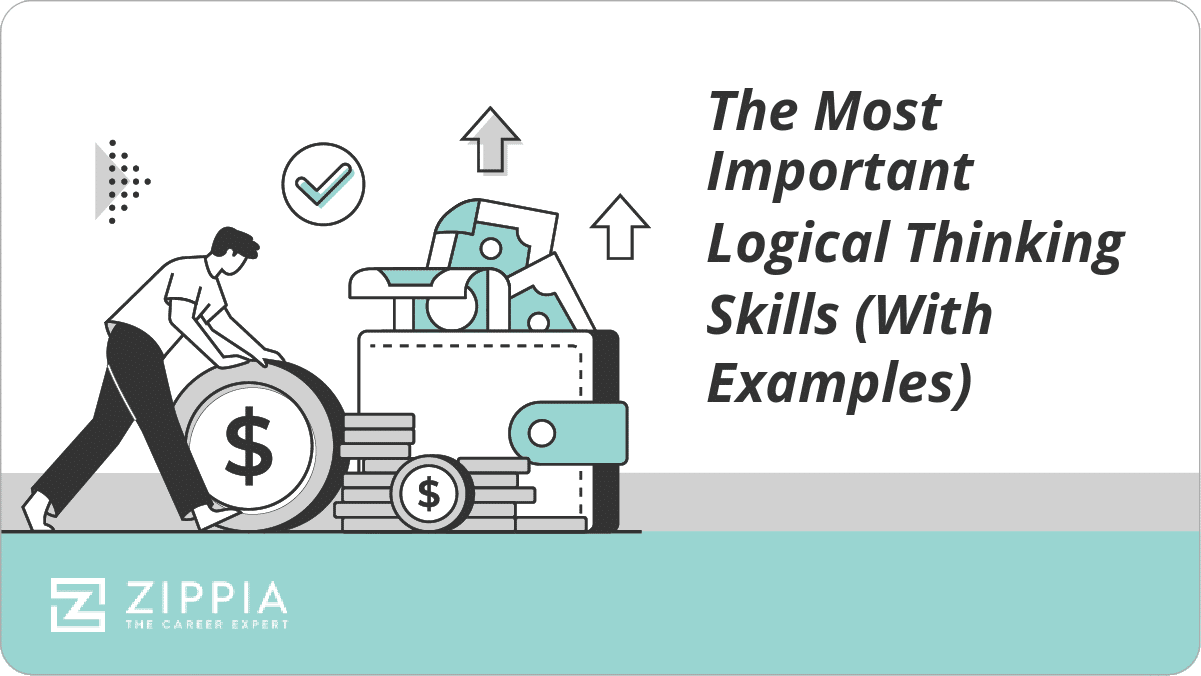
What is logical thinking?
10 examples of logical thinking skills, examples of logical thinking in the workplace, what is deductive reasoning, logical thinking in a job interview, logical thinking skills faq, final thoughts.
- Sign Up For More Advice and Jobs
Logical thinking is the ability to reason out an issue after observing and analyzing it from all angles . You can then form a conclusion that makes the most sense. It also includes the ability to take note of reactions and feedback to aid in the formation of the conclusion.
Logical thinking skills enable you to present your justification for the actions you take, the strategies you use, and the decisions you make. You can easily stand in front of your clients, peers, and supervisors and defend your product, service, and course of action if the necessity arises.
Logical thinking is an excellent way of solving complex problems. You can break the problem into smaller parts; solve them individually in a sequence, then present the complete solution. However, it is not infallible.
So, when a problem in the workplace feels overwhelming, you may want to think about it logically first.
Logical thinking skills are a skill set that enables you to reason logically when solving problems. They enable you to provide well-reasoned answers to any issues that arise. They also empower you to make decisions that most people will consider rational.
Critical-thinking skills. If you are a critical thinker, then you can analyze and evaluate a problem before making judgments. You need to improve your critical thinking process to become a logical thinker.
Your critical thinking skills will improve your ability to solve problems. You will be the go-to employee concerning crises. People can rely on you to be reasonable whenever an issue arises instead of letting biases rule you.
Research skills. If you are a good researcher , then you can search and locate data that can be useful when presenting information on your preferred subject.
The more relevant information you have about a particular subject, the more accurate your conclusions are likely to be. The sources you use must be reputable and relevant.
For this reason, your ability to ferret out information will affect how well you can reason logically.
Creative thinking skills. If you are a creative thinker , then you can find innovative solutions to problems.
You are the kind of person that can think outside the box when brainstorming ideas and potential solutions. Your thinking is not rigid. Instead, you tend to look at issues in ways other people have not thought of before.
While logical thinking is based on data and facts, that doesn’t mean it is rigid. You can creatively find ways of sourcing that data or experimenting so that you can form logical conclusions. Your strategic thinking skills will also help enable you to analyze reactions or collect feedback .
Mathematical skills. If you are skilled in mathematics , then you can work well with numbers and represent mathematical ideas using visual symbols. Your brain must be able to compute information.
Business is a numbers game. That means you must have some knowledge of mathematics. You must be able to perform basic mathematical tasks involving addition, subtractions, divisions, multiplications, etc.
So, to become a logical thinker, you must be comfortable working with numbers. You will encounter them in many business-related complex problems. And your ability to understand them will determine whether you can reach an accurate logical conclusion that helps your organization.
Reading skills. If you are a good reader , then you can make sense of the letters and symbols that you see. Your ability to read will determine your competency concerning your logical thinking and reasoning skills.
And that skill set will come in handy when you are presented with different sets of work-related statements from which you are meant to conclude. Such statements may be part of your company policy, technical manual, etc.
Active listening skills. Active listening is an important communication skill to have. If you are an active listener, then you can hear, understand what is being said, remember it, and respond to it if necessary.
Not all instructions are written. You may need to listen to someone to get the information you need to solve problems before you write it down. In that case, your active listening skills will determine how well you can remember the information so that you can use it to reason things out logically.
Information ordering skills. If you have information ordering skills, then you can arrange things based on a specified order following the set rules or conditions. These things may include mathematical operations, words, pictures, etc.
Different organizations have different business processes. The workflow in one organization will be not similar to that of another organization even if both belong to the same industry.
Your ability to order information will depend on an organization’s culture . And it will have a major impact on how you can think and reason concerning solutions to your company problems.
If you follow the wrong order, then no matter how good your problem-solving techniques are your conclusions may be wrong for your organization.
Persuasion skills. Logical thinking can be useful when persuading others, especially in the workplace.
For example, lets say one of your co-workers wants to take a project in an impulsive direction, which will increase the budget. However, after you do your research, you realize a budget increase would be impossible.
You can then use your logical thinking skills to explain the situation to your co-worker , including details facts and numbers, which will help dissuade them from making an uninformed decision.
Decision making skills. Decision making skills go hand and hand with logical thinking, as being able to think logically about solutions and research topics will make it far easier to make informed decisions.
After all, no one likes making a decision that feels like a shot in the dark, so knowing crucial information about the options aviable to you, and thinking about them logically, can improve your confidence around decision making.
Confidence skills. Confidence that stems from an emotional and irrational place will always be fragile, but when you have more knowledge available to you through logical thinking, you can be more confident in your confidence skills.
For instance, if an employee asked you to answer an important question, you will have a lot more confidence in your answer if you can think logically about it, as opposed to having an air of uncertainty.
To improve your logic skills, it would be wise to practice how to solve problems based on facts and data. Below are examples of logical thinking in the workplace that will help you understand this kind of reasoning so that you can improve your thinking:
The human resource department in your organization has determined that leadership skills are important for anyone looking to go into a senior management position. So, it decides that it needs proof of leadership before hiring anyone internally. To find the right person for the senior management position , every candidate must undertake a project that involves a team of five. Whoever leads the winning team will get the senior managerial position.
This example shows a logical conclusion that is reached by your organization’s human resource department. In this case, your HR department has utilized logical thinking to determine the best internal candidate for the senior manager position.
It could be summarized as follows:
Statement 1: People with excellent leadership skills that produce winning teams make great senior managers. Statement 2: Candidate A is an excellent leader that has produced a winning team. Conclusion: Candidate A will make an excellent senior manager .
A marketing company researches working women on behalf of one of their clients – a robotics company. They find out that these women feel overwhelmed with responsibilities at home and in the workplace. As a result, they do not have enough time to clean, take care of their children, and stay productive in the workplace. A robotics company uses this research to create a robot cleaner that can be operated remotely . Then they advertise this cleaner specifically to working women with the tag line, “Working women can do it all with a little bit of help.” As a result of this marketing campaign, their revenues double within a year.
This example shows a logical conclusion reached by a robotics company after receiving the results of marketing research on working women. In this case, logical thinking has enabled the company to come up with a new marketing strategy for their cleaning product.
Statement 1: Working women struggle to keep their homes clean. Statement 2: Robot cleaners can take over cleaning duties for women who struggle to keep their homes clean. Conclusion: Robot cleaner can help working women keep their homes clean.
CalcX. Inc. has created a customer survey concerning its new finance software. The goal of the survey is to determine what customers like best about the software. After reading through over 100 customer reviews and ratings, it emerges that 60% of customers love the new user interface because it’s easy to navigate. CalcX. Inc. then decides to improve its marketing strategy. It decides to train every salesperson to talk about the easy navigation feature and how superior it is to the competition. So, every time a client objects to the price, the sales rep could admit that it is expensive, but the excellent user interface makes up for the price. At the end of the year, it emerges that this strategy has improved sales revenues by 10%.
The above example shows how logical thinking has helped CalcX. Sell more software and improve its bottom line.
Statement 1: If the majority of customers like a particular software feature, then sales reps should use it to overcome objections and increase revenues. Statement 2: 60% of the surveyed customers like the user interface of the new software, and; they think it makes navigation easier. Conclusion: The sales reps should market the new software’s user interface and the fact that it is easy to navigate to improve the company’s bottom line.
A political candidate hires a focus group to discuss hot-button issues they feel strongly about. It emerges that the group is torn on sexual reproductive health issues, but most support the issue of internal security . However, nearly everyone is opposed to the lower wages being paid due to the current economic crisis. Based on the results of this research, the candidate decides to focus on improving the economy and security mechanisms in the country. He also decides to let go of the sexual productive health issues because it would potentially cause him to lose some support.
In this case, the political candidate has made logical conclusions on what topics he should use to campaign for his seat with minimal controversies so that he doesn’t lose many votes.
This situation could be summarized as follows:
Statement 1: Most people find sexual reproductive health issues controversial and cannot agree. Statement 2: Most people feel that the internal security of the country is in jeopardy and something should be done about it. Statement 3: Most people want higher wages and an improved economy. Statement 4: Political candidates who want to win must avoid controversy and speak up on things that matter to people. Conclusion: To win, political candidates must focus on higher wages, an improved economy, and the internal security of the country while avoiding sexual reproductive health matters.
Deductive reasoning is an aspect of logical reasoning. It is a top-down reasoning approach that enables you to form a specific logical conclusion based on generalities. Therefore, you can use one or more statements, usually referred to as premises, to conclude something.
For example:
Statement 1: All mothers are women Statement 2: Daisy is a mother. Conclusion: Daisy is a woman.
Based on the above examples, all mothers are classified as women, and since Daisy is a mother, then it’s logical to deduce that she is a woman too.
It’s worth noting though, that deductive reasoning does not always produce an accurate conclusion based on reality.
Statement 1: All caregivers in this room are nurses. Statement 2: This dog, Tom, is a caregiver . Conclusion: This dog, Tom, is a nurse .
From the above example, we have deduced that Tom, the dog, is a nurse simply because the first statement stated that all caregivers are nurses. And yet, in reality, we know that dogs cannot be nurses. They do not have the mental capacity to become engaged in the profession.
For this reason, you must bear in mind that an argument can be validly based on the conditions but it can also be unsound if some statements are based on a fallacy.
Since logical thinking is so important in the workplace, most job interviewers will want to see you demonstrate this skill at the job interview. It is very important to keep in mind your logical thinking skills when you talk about yourself at the interview.
There are many ways in which an interviewer may ask you to demonstrate your logical thinking skills. For example:
You may have to solve an example problem. If the interviewer provides you a problem similar to one you might find at your job, make sure to critically analyze the problem to deduce a solution.
You may be asked about a previous problem or conflict you had to solve. This classic question provides you the opportunity to show your skills in action, so make sure to highlight the objectivity and logic of your problem solving.
Show your logic when talking about yourself. When given the opportunity to talk about yourself, highlight how logic comes into play in your decision making. This could be in how you picked the job position, why you choose your career or education, or what it is about yourself that makes you a great candidate.
Why is it important to think logically?
It’s important to think logically because it allows you to analyze a situation and come up with a logical solution. It allows for you to reason through the important decisions and solve problems with a better understanding of what needs to be done. This is necessary for developing a strong career.
Why is logic important?
Logic is important because it helps develop critical thinking skills. Critical thinking skills are important because they help you analyze and evaluate a problem before you make a decision. It also helps you improve your problem-solving skills to allow you to make better decisions.
How do you improve your logical thinking skills?
When improving your logical thinking skills make sure you spend time on a creative hobby and practice questioning. Creative hobbies can help reduce stress levels, and lower stress leads to having an easier time focusing on tasks and making logical thinking. Creative hobbies can include things like drawing, painting, and writing.
Another way to improve your logical thinking is to start asking questions about things. Asking questions allows for you to discover new things and learn about new topics you may not have thought about before.
What are logical thinking skills you need to succeed at work?
There are many logical thinking skills you need to succeed in the workplace. Our top four picks include:
Observation
Active Listening
Problem-solving
Logical thinking skills are valuable skills to have. You need to develop them so that you can become an asset to any organization that hires you. Be sure to include them in your resume and cover letter .
And if you make it to the interview, also ensure that you highlight these skills. You can do all this by highlighting the career accomplishments that required you to use logical thinking in the workplace.
It’s Your Yale – Consider Critical Thinking Skills to Articulate Your Work Quality
How useful was this post?
Click on a star to rate it!
Average rating / 5. Vote count:
No votes so far! Be the first to rate this post.

Roger Raber has been a content writer at Zippia for over a year and has authored several hundred articles. Having retired after 28 years of teaching writing and research at both the high school and college levels, Roger enjoys providing career details that help inform people who are curious about a new job or career. Roger holds a BA in English from Cleveland State University and a MA from Marygrove college.
Recent Job Searches
- Registered Nurse Jobs Resume Location
- Truck Driver Jobs Resume Location
- Call Center Representative Jobs Resume Location
- Customer Service Representative Jobs Resume
- Delivery Driver Jobs Resume Location
- Warehouse Worker Jobs Resume Location
- Account Executive Jobs Resume Location
- Sales Associate Jobs Resume Location
- Licensed Practical Nurse Jobs Resume Location
- Company Driver Jobs Resume
Related posts
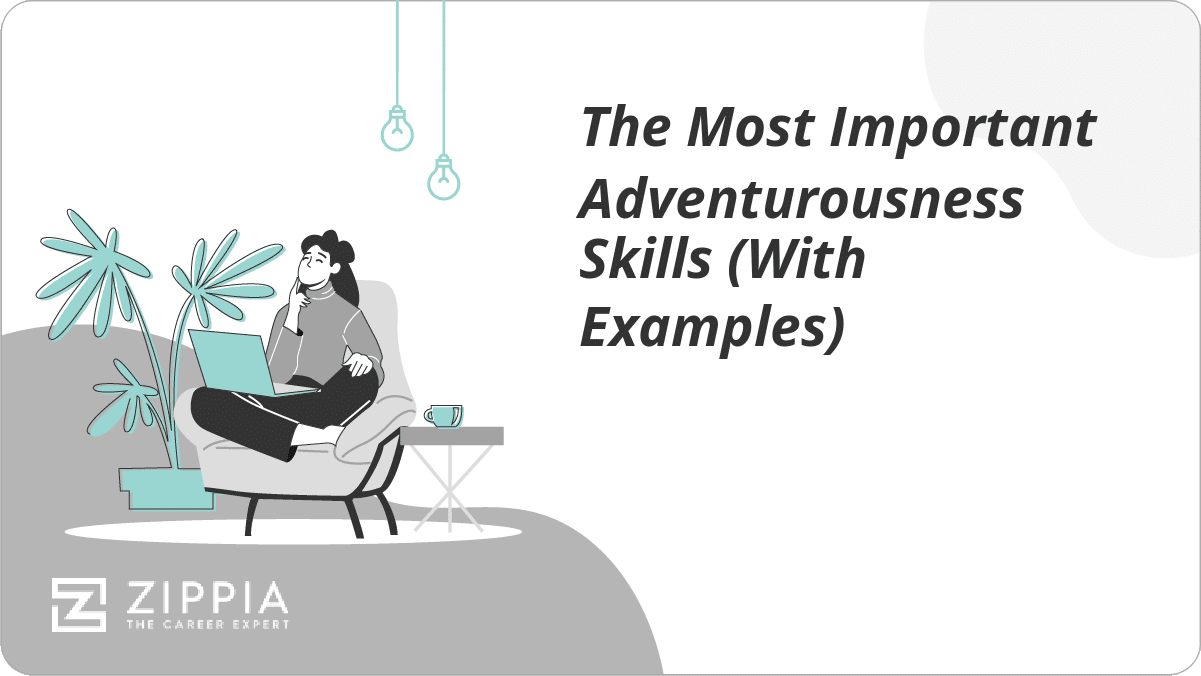
The Most Important Adventurousness Skills (With Examples)
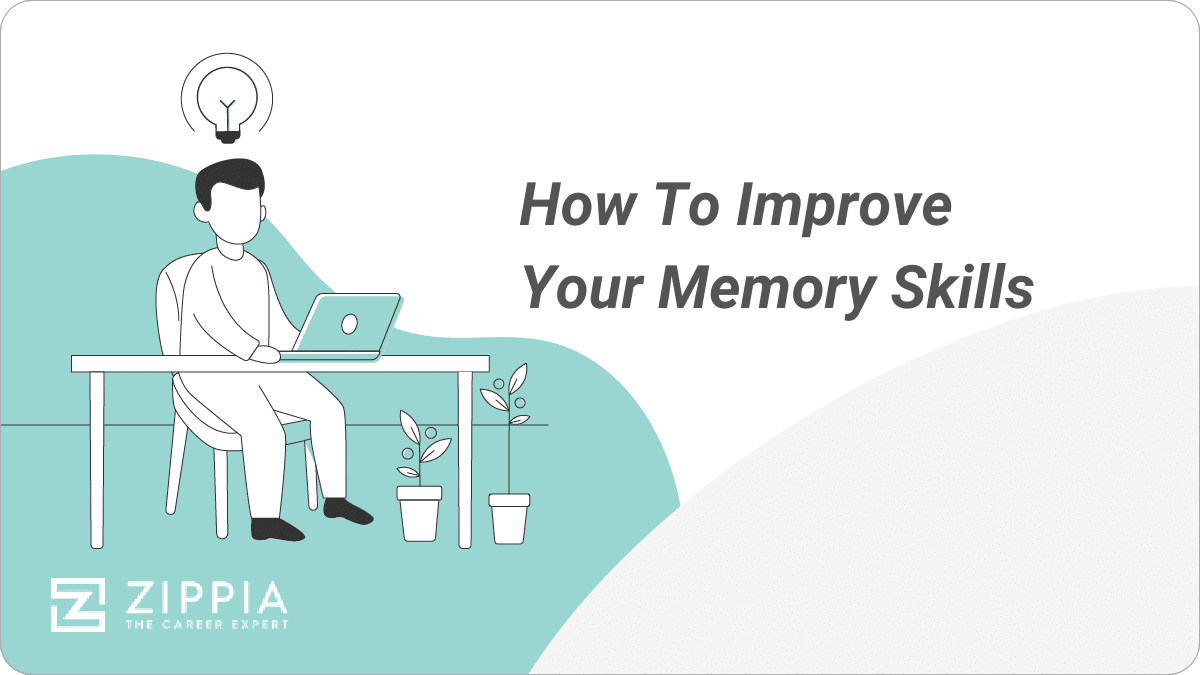
How To Improve Your Memory Skills

How To Include Spatial Orientation Skills In Your Resume

What Are Compassion Skills? (With Examples)
- Career Advice >
- Resume Skills >
- Defined Skills >
- Logical Thinking Skills
Students' critical thinking skills using HOTS-based assessment on pH calculation
- Yuliana, Ika Farida
- Faizah, Fina
- Fatayah, Fatayah
- Priyasmika, Rendy
One of the Indonesian government's efforts to meet the 21st-century skills of students is to implement the curriculum of 2013. According to the Ministry of Education and Culture, the HOTS writing guidebook states that, in the context of 21 st -century learning, students must learn and master essential skills, including critical thinking, problem- solving, creative and innovative thinking, collaborating and communicating effectively, which are higher order thinking skills. Familiarising students to think critically makes students able to analyse a problem that occurs in society so that they can produce an idea or way to solve these problems. This research is qualitative research with the type of case study research and uses the analysis method of Miles and Huberman. The research subjects in this study were students last XI A and XI B MA Fathul Hidayah Pangean, with a total of 42 students. The results showed that the critical thinking skills of MA Fathul Hidayah Pangean students in classes XI A and XI B were 42 students classified as low, with an average percentage of 26,80%. Judging from the 5 aspects of critical thinking as a whole, it is relatively low. This is because students are not used to solving HOTS-based questions, so even though in mastering the pH calculation material, they can understand the material shown by excellent learning outcomes with a percentage of 82,7%, when faced with HOTS questions, student learning outcomes become 44,3% with medium criteria. This resulted in students' critical thinking skills being still low.
- CHEMISTRY EDUCATION

COMMENTS
Your critical thinking skills involve gathering complete information, understanding and defining terms, questioning the methods by which we get facts, questioning the conclusions, and looking for hidden assumptions and biases. Additionally, we can't expect to find all of the answers, and we need to take the time to examine the big picture of ...
Questions to Provoke Critical Thinking. Varying question stems can sustain engagement and promote critical thinking. The timing, sequence and clarity of questions you ask students can be as important as the type of question you ask. The table below is organized to help formulate questions provoking gradually higher levels of thinking.
In an age of "fake news" claims and constant argument about pretty much any issue, critical thinking skills are key. Teach your students that it's vital to ask questions about everything, but that it's also important to ask the right sorts of questions. Students can use these critical thinking questions with fiction or nonfiction texts.
The Ultimate Cheat Sheet For Digital Thinking by Global Digital Citizen Foundation is an excellent starting point for the 'how' behind teaching critical thinking by outlining which questions to ask. It offers 48 critical thinking questions useful for any content area or even grade level with a little re-working/re-wording. Enjoy the list!
Thinking critically involves applying reason and logic to assess arguments and come to your own conclusions. Instead of reciting facts or giving a textbook answer, critical thinking skills encourage students to move beyond knowing information and get to the heart of what they really think and believe. 15 Questions to Encourage Critical Thinking ...
There are many resources to help you determine if information sources are factual or not. 7. Socratic Questioning. This way of thinking is called the Socrates Method, named after an old-time thinker from Greece. It's about asking lots of questions to understand a topic.
It makes you a well-rounded individual, one who has looked at all of their options and possible solutions before making a choice. According to the University of the People in California, having critical thinking skills is important because they are [ 1 ]: Universal. Crucial for the economy. Essential for improving language and presentation skills.
Philosophy Questions About Love. "Love is a biological necessity. We cannot live without it". —Stephanie Cacioppo, neuroscientist specializing in love and loneliness. As people, we need to love and be loved. You can express love in many different ways. Use these questions to spark some critical thought on the topic of love, or check out ...
Humor is a natural icebreaker that can make critical thinking questions more lighthearted and enjoyable. Of course, most younger kids just like to be silly, so playing upon that can keep them active and engaged. With that said, here are some great questions to get you started: 1. Someone gives you a penguin.
Critical thinking is the discipline of rigorously and skillfully using information, experience, observation, and reasoning to guide your decisions, actions, and beliefs. You'll need to actively question every step of your thinking process to do it well. Collecting, analyzing and evaluating information is an important skill in life, and a highly ...
The Five Critical Thinking Skills Explained. 1. Recognition of Assumption. You'll be presented with a statement. The statement is then followed by several proposed assumptions. When answering, you must work out if an assumption was made or if an assumption was not made in the statement.
Critical thinking is the ability to effectively analyze information and form a judgment. To think critically, you must be aware of your own biases and assumptions when encountering information, and apply consistent standards when evaluating sources. Critical thinking skills help you to: Identify credible sources. Evaluate and respond to arguments.
Critical Thinking Is About Asking Better Questions. Summary. Critical thinking is the ability to analyze and effectively break down an issue in order to make a decision or find a solution. At the ...
Here are some skills that will help you with the critical thinking assessment: Logical Reasoning: The practice test meticulously evaluates your ability to deduce conclusions from given information, assess the validity of arguments, and recognize patterns in logic. ... Examples of Critical Thinking Questions Scenario: In a business context ...
Critical thinking involves asking questions, gathering information, removing preconceived notions, and communicating clearly about that which you're analyzing. Critical thinking allows you to more clearly approach any subject to learn and understand it better. ... Critical thinking skills allow you to make reasonable decisions in the moment ...
The Power of Questions for Critical Thinking. What Socrates discovered some 2,500 years ago was the power of questions to make others think. ... Toolkit, we've been asked a number of times if people can do the development exercises themselves to build their own critical thinking skills. The answer is, unequivocally, yes. And the same is true ...
Critical thinking might be described as the ability to engage in reflective and independent thinking. In essence, critical thinking requires you to use your ability to reason. It is about being an active learner rather than a passive recipient of information. Critical thinkers rigorously question ideas and assumptions rather than accepting them ...
Ask questions and dig deep, rather than accepting information at face value. Keep your own biases and perceptions in check to stay as objective as possible. Rely on your emotional intelligence to fill in the blanks and gain a more well-rounded understanding of a situation. So, critical thinking isn't just being intelligent or analytical.
Critical thinking is a kind of thinking in which you question, analyse, interpret , evaluate and make a judgement about what you read, hear, say, or write. The term critical comes from the Greek word kritikos meaning "able to judge or discern". Good critical thinking is about making reliable judgements based on reliable information.
A sign of strong critical thinking is the ability to maintain your use of logic and reasoning to make the right choice, even within time constraints. Answer this question with a situation where a quick decision resulted in a positive outcome. Example: "One time, my manager had to leave the office an hour before a scheduled presentation.
20 tests. 228 questions. Critical thinking tests, sometimes known as critical reasoning tests, are often used by employers. They evaluate how a candidate makes logical deductions after scrutinising the evidence provided, while avoiding fallacies or non-factual opinions. Critical thinking tests can form part of an assessment day, or be used as a ...
Critical thinking skills examples. There are six main skills you can develop to successfully analyze facts and situations and come up with logical conclusions: 1. Analytical thinking. Being able to properly analyze information is the most important aspect of critical thinking. This implies gathering information and interpreting it, but also ...
Top 5 critical thinking skills. Here are five common and impactful critical thinking skills you might consider highlighting on your resume or in an interview: 1. Observation. Observational skills are the starting point for critical thinking. People who are observant can quickly sense and identify a new problem.
Critical thinking, as described by Oxford Languages, is the objective analysis and evaluation of an issue in order to form a judgement. Active and skillful approach, evaluation, assessment, synthesis, and/or evaluation of information obtained from, or made by, observation, knowledge, reflection, acumen or conversation, as a guide to belief and action, requires the critical thinking process ...
Critical thinking is, in short, self-directed, self-disciplined, self-monitored, and self-corrective thinking. It presupposes assent to rigorous standards of excellence and mindful command of their use. It entails effective communication and problem solving abilities and a commitment to overcome our native egocentrism and sociocentrism.
Key Takeaways: Logical thinking is problem solving based on reasoning that follows a strictly structured progression of analysis. Critical thinking, research, creativity, mathematics, reading, active listening, and organization are all important logical thinking skills in the workplace. Logical thinking provides objectivity for decision making ...
This study has two parts: phase I designed activities to support all students' learning preferences, and phase II used open-ended questions and activities based on these preferences to develop students' mathematical critical thinking skills in polynomials at all performance levels (i.e., high-achieving, fair-achieving, and low-achieving students).
PBL can foster the use of problem-solving skills, critical thinking skills, and communication skills, which are needed in the 21st century. This research study was centered around three research questions. The first question asked about the impact PBL has on students' science achievement. The second question asked how does PBL impact students ...
One of the Indonesian government's efforts to meet the 21st-century skills of students is to implement the curriculum of 2013. According to the Ministry of Education and Culture, the HOTS writing guidebook states that, in the context of 21 st -century learning, students must learn and master essential skills, including critical thinking, problem- solving, creative and innovative thinking ...